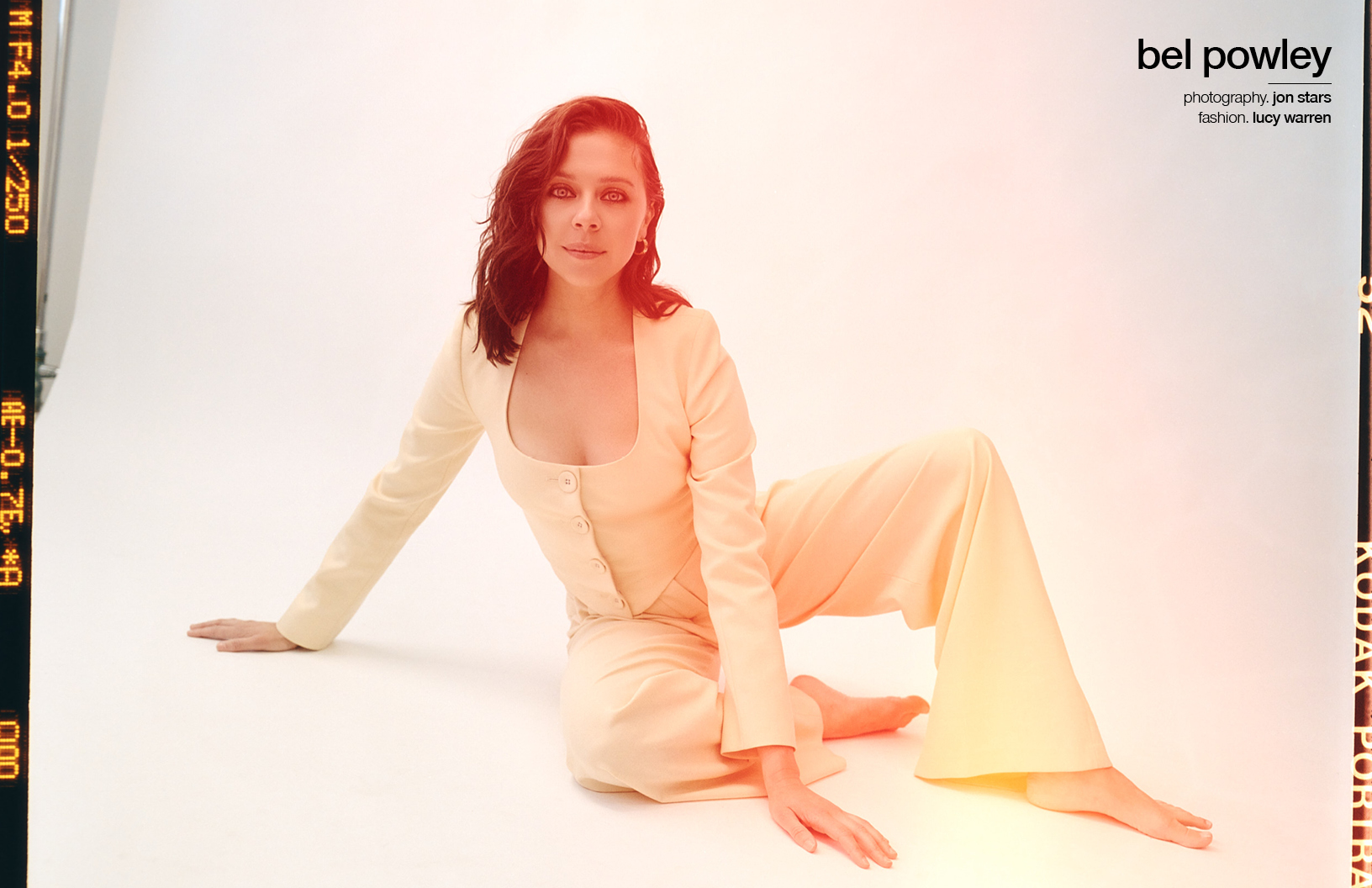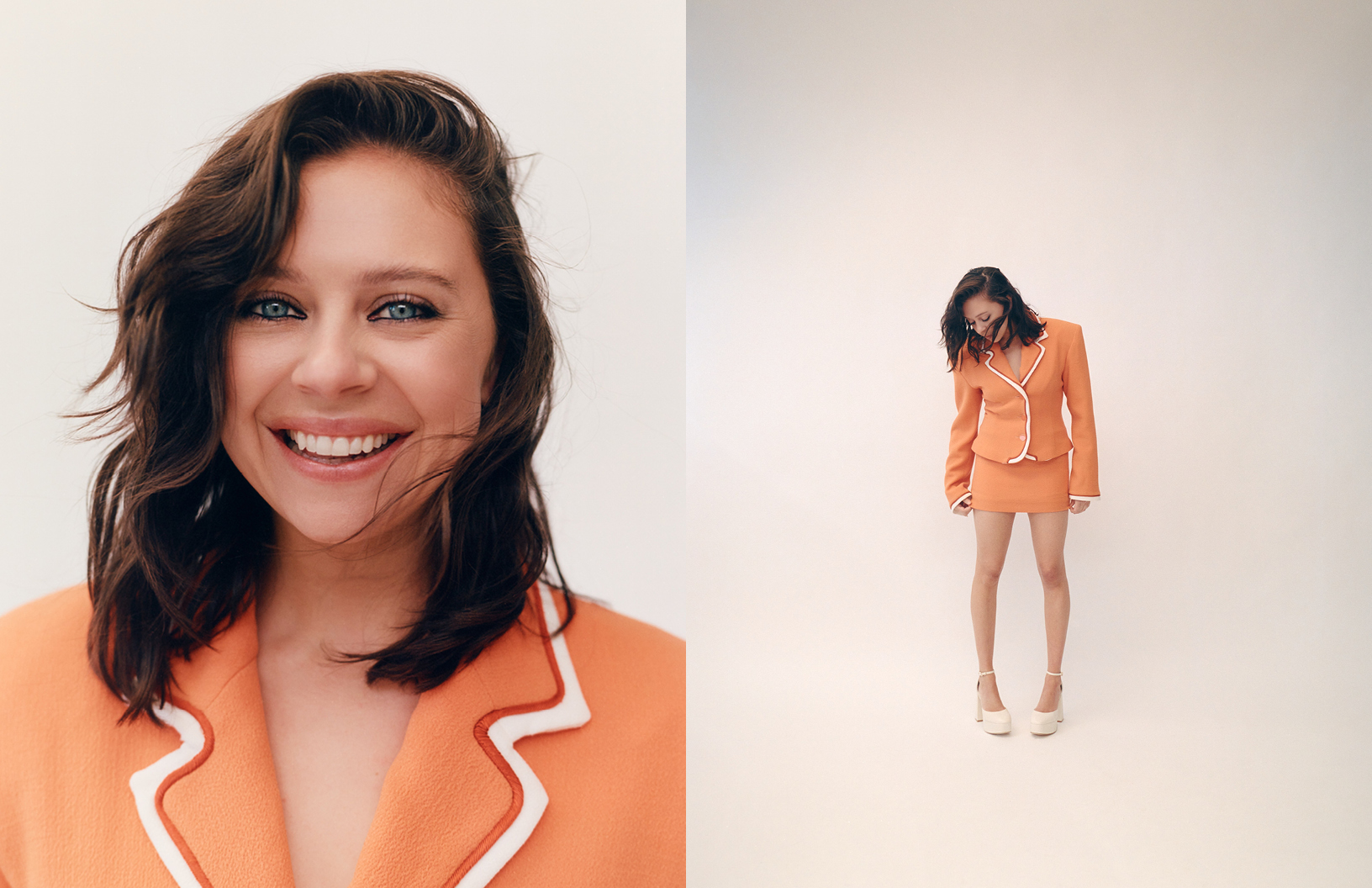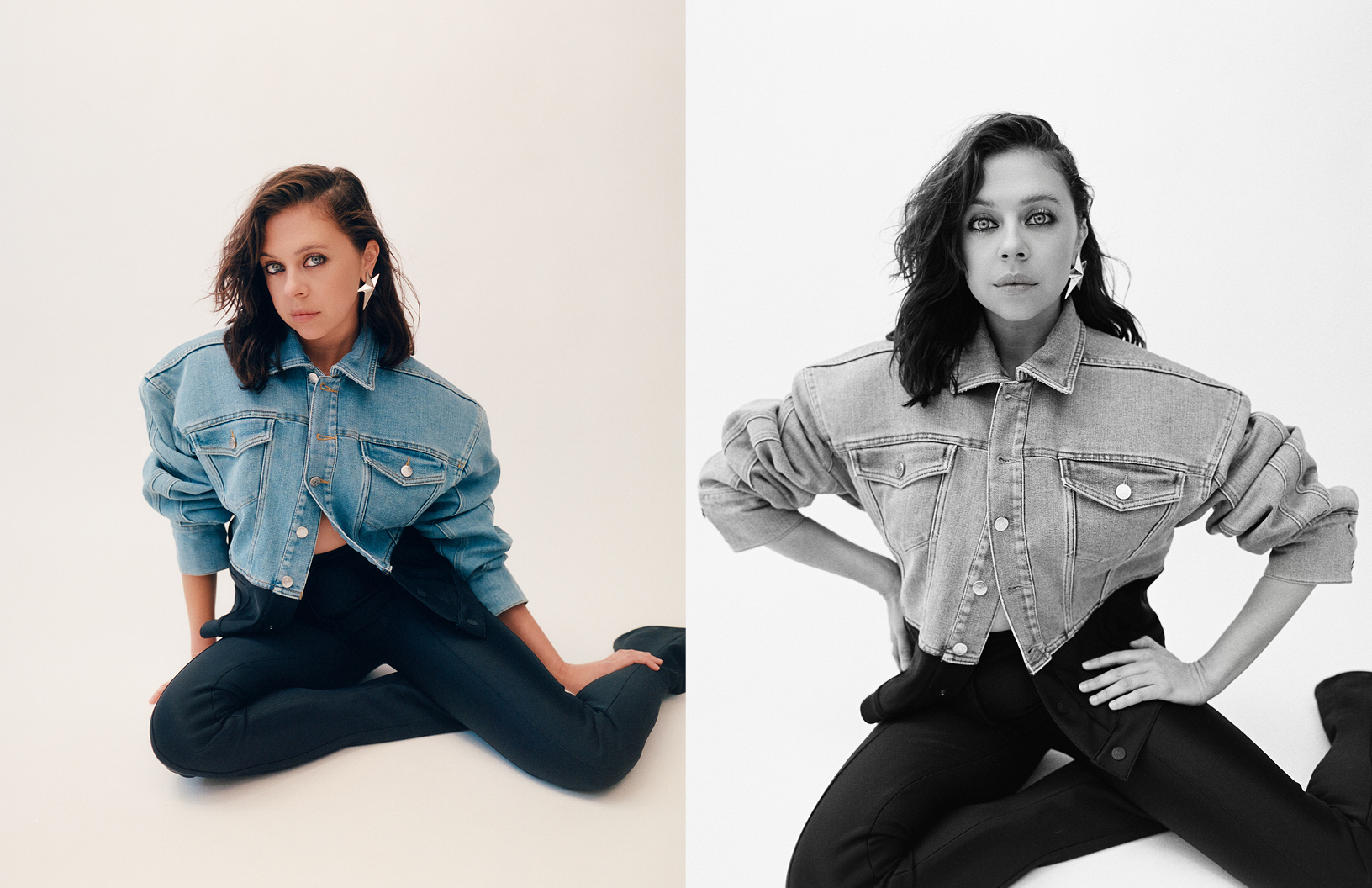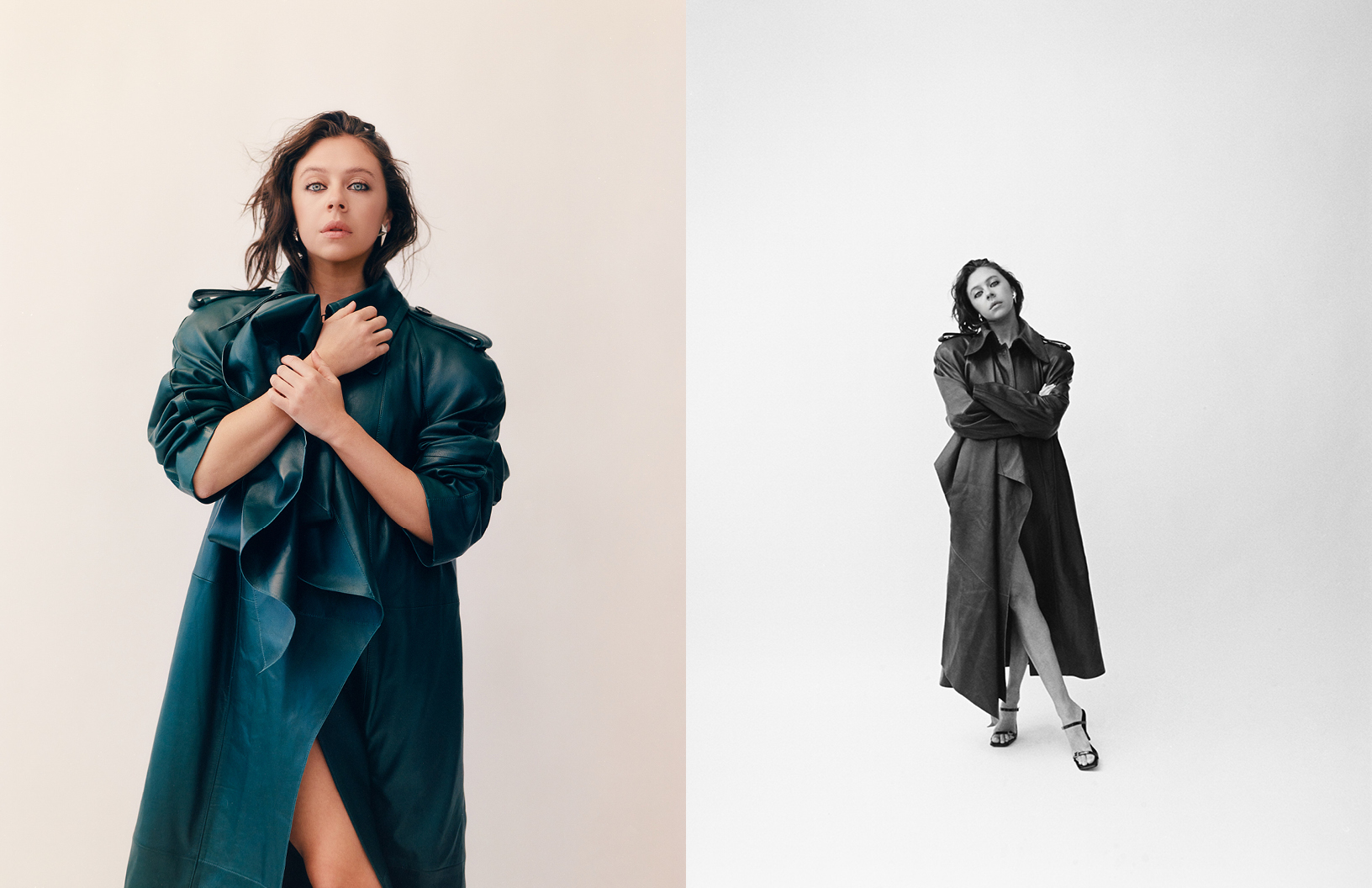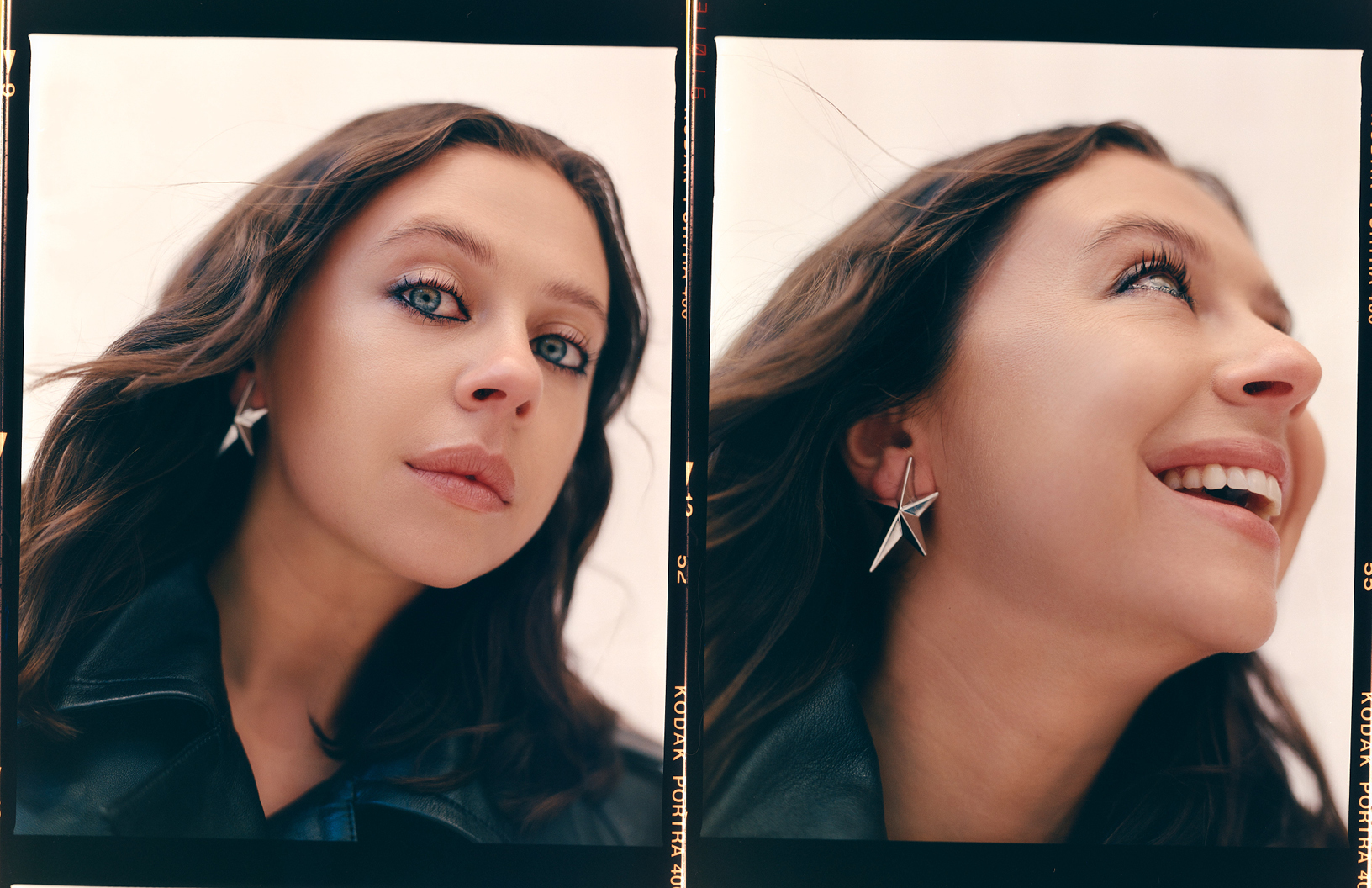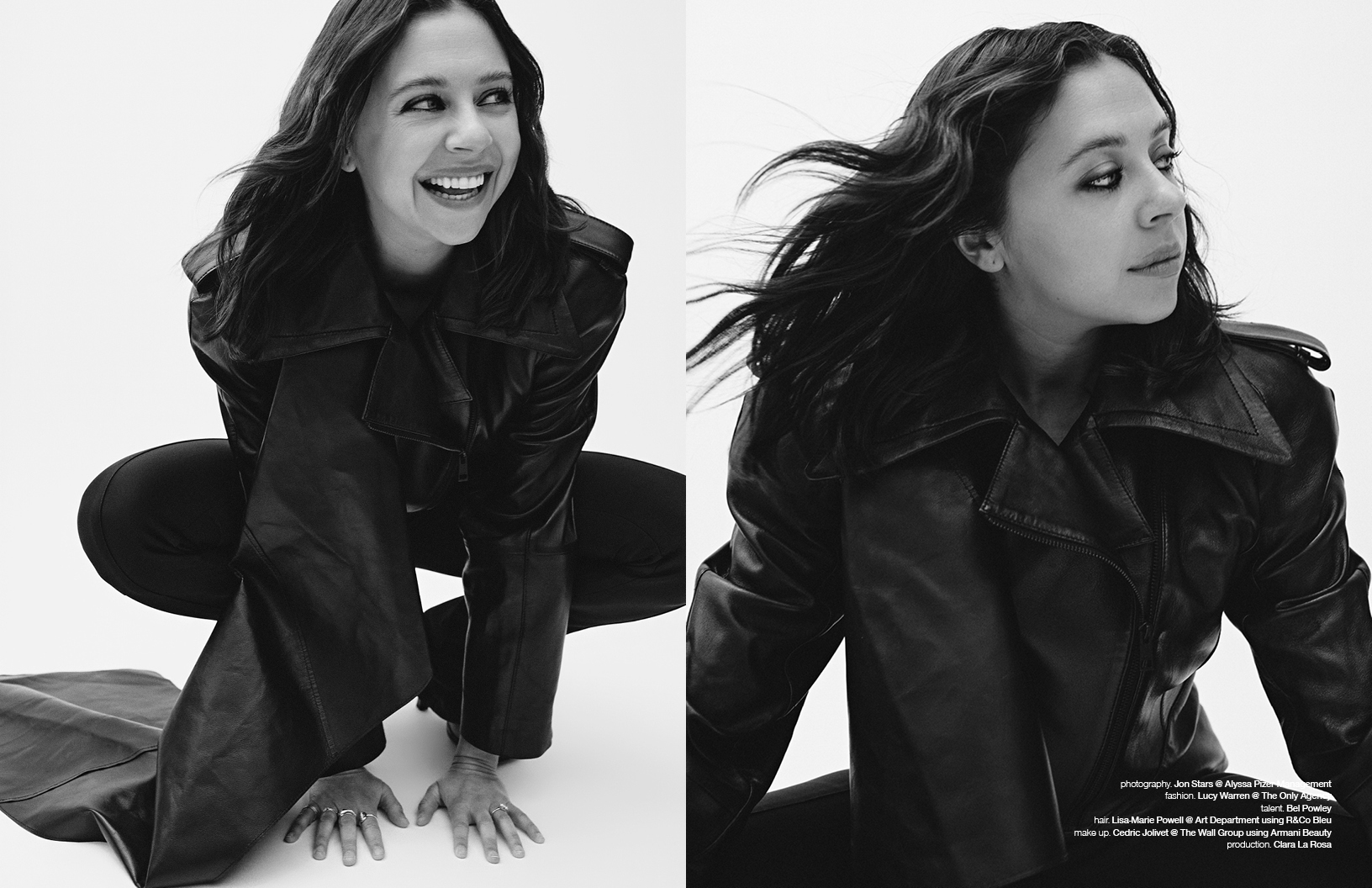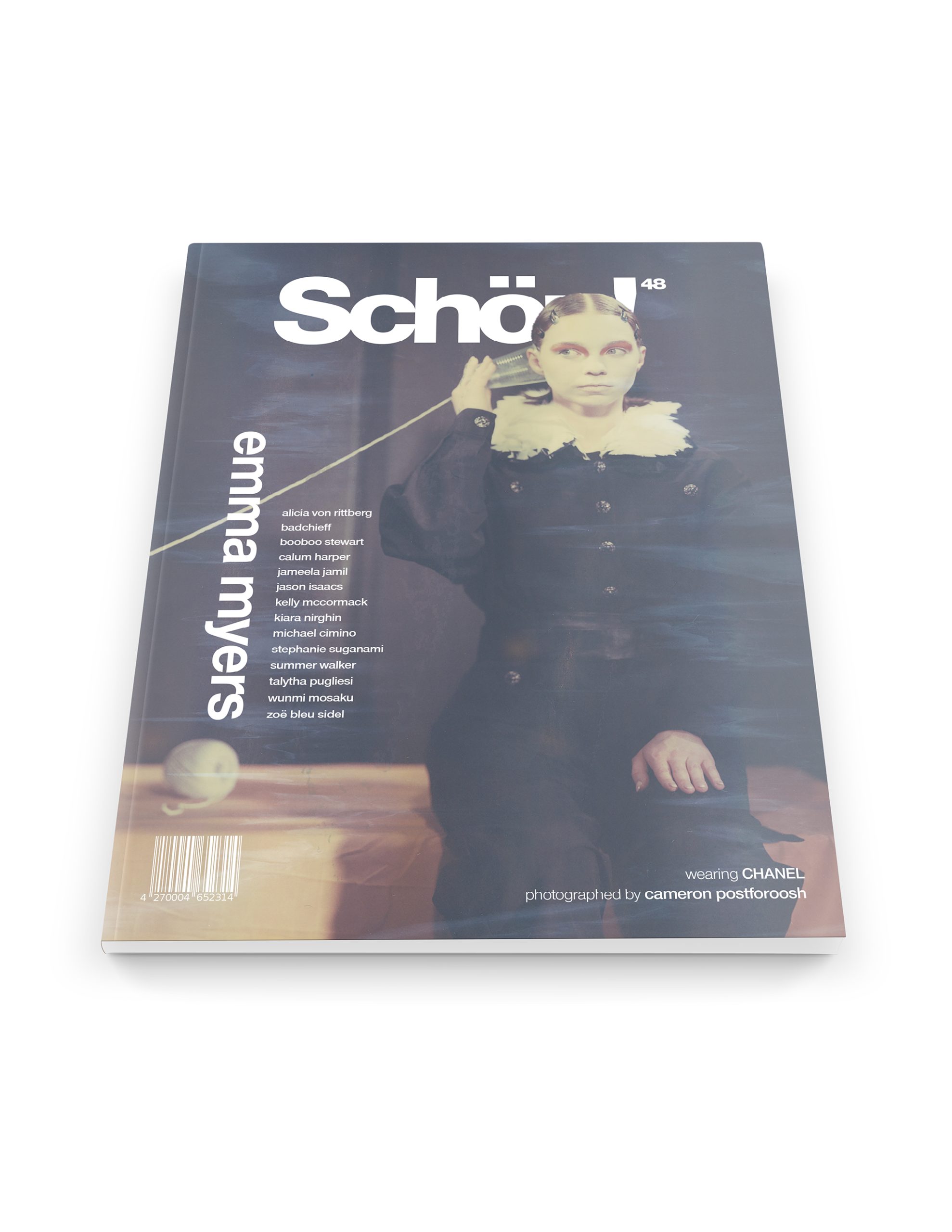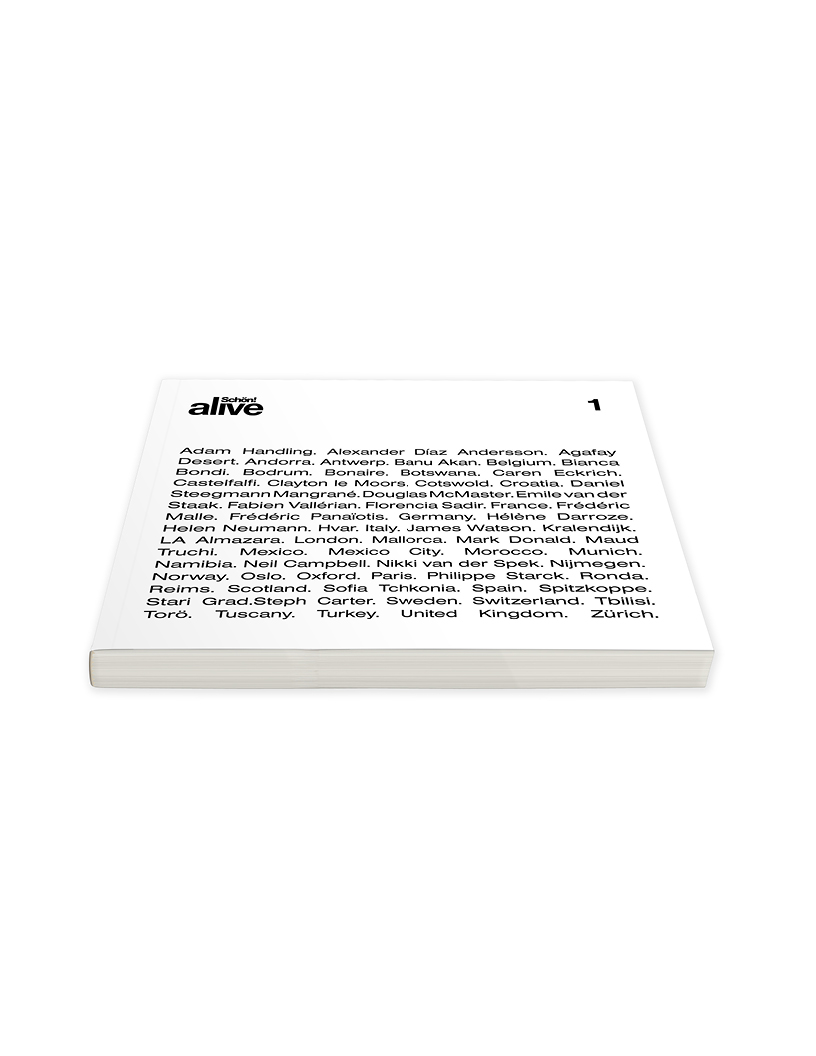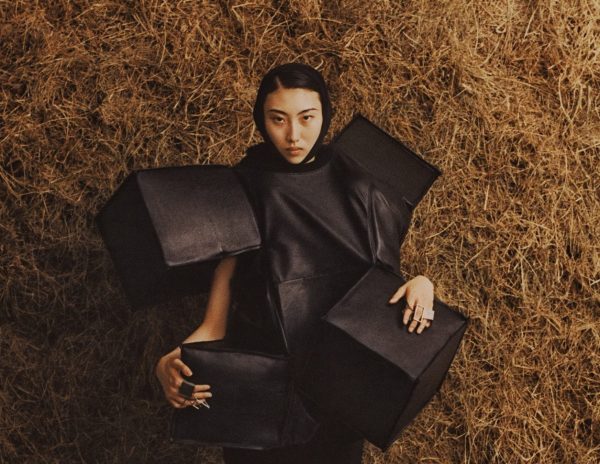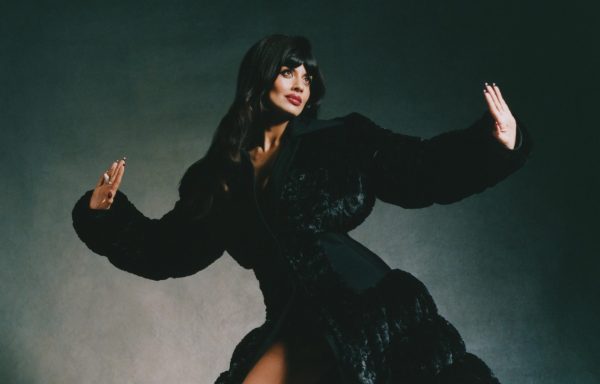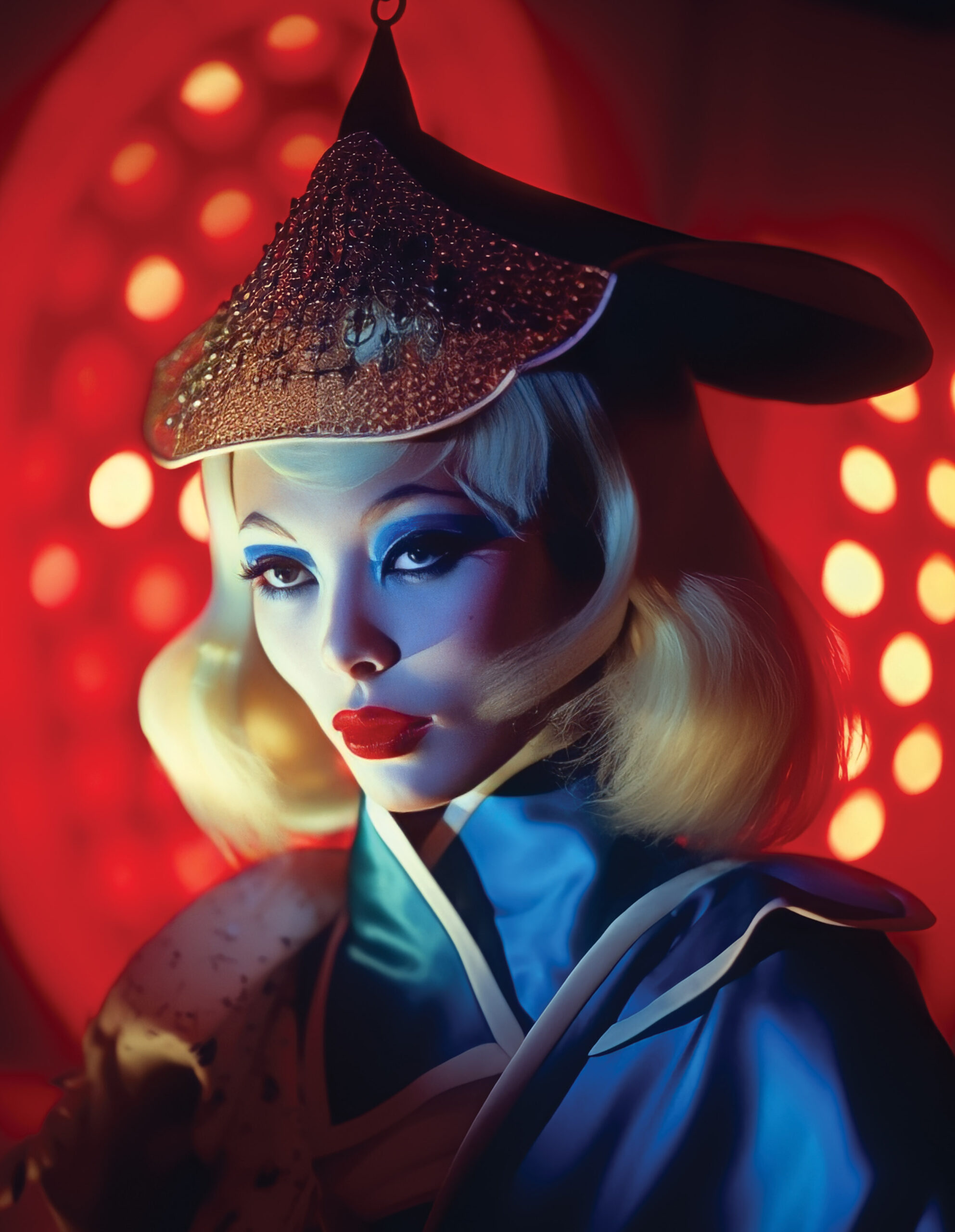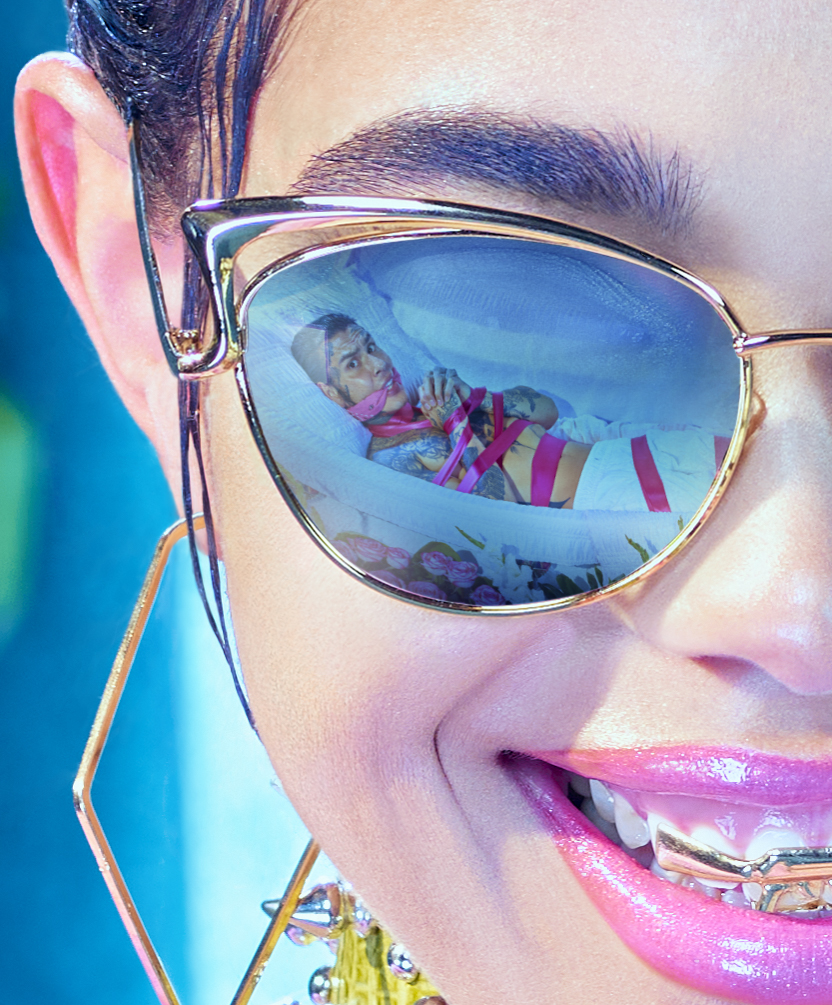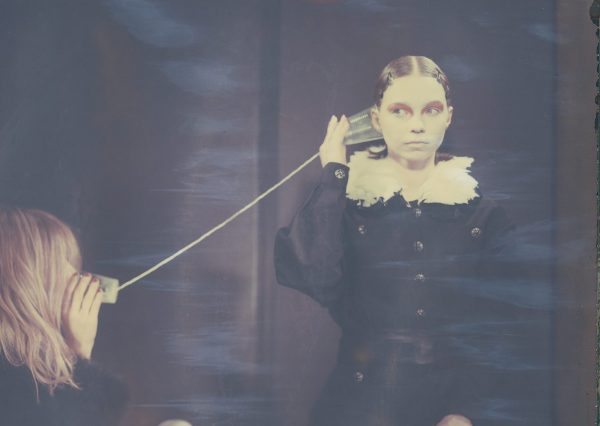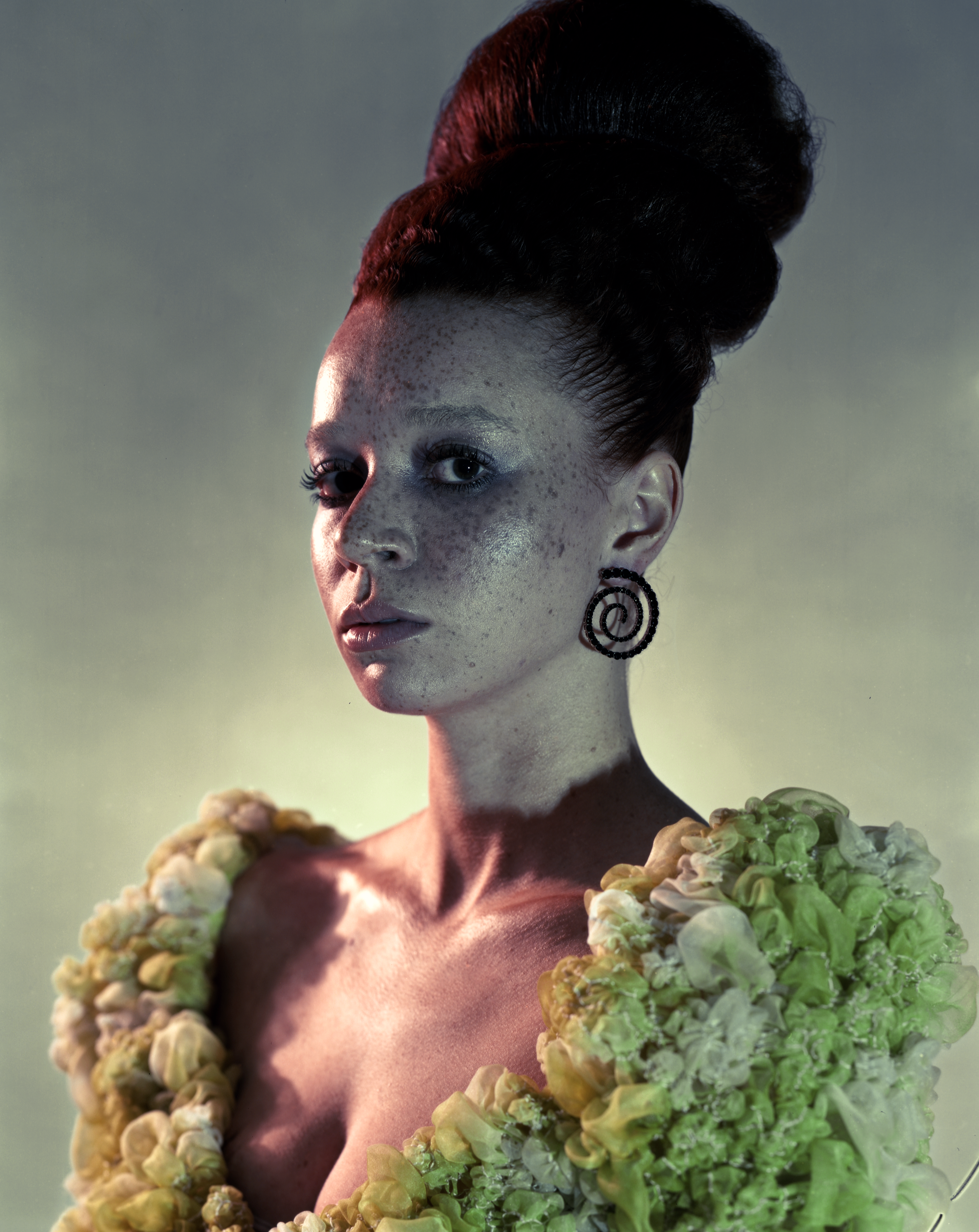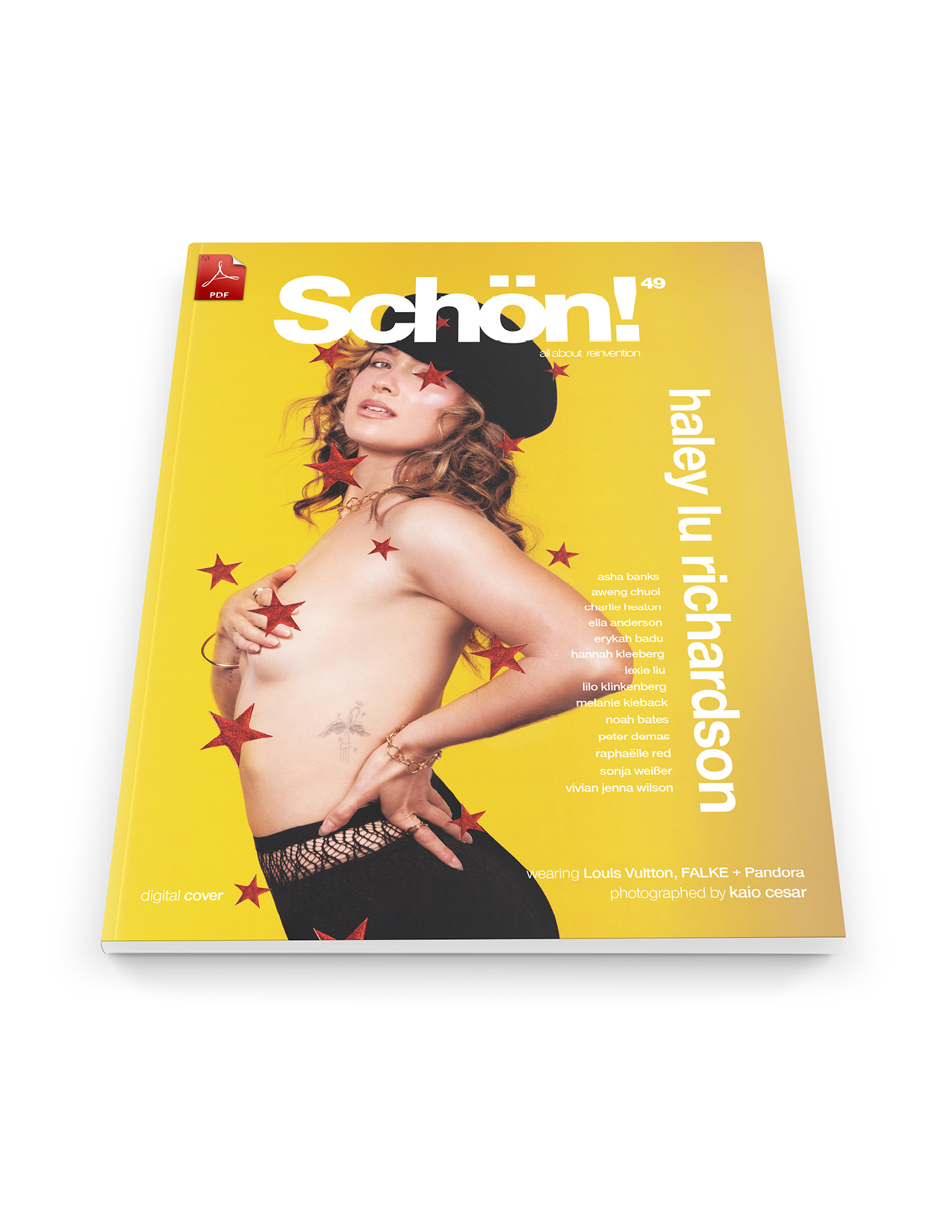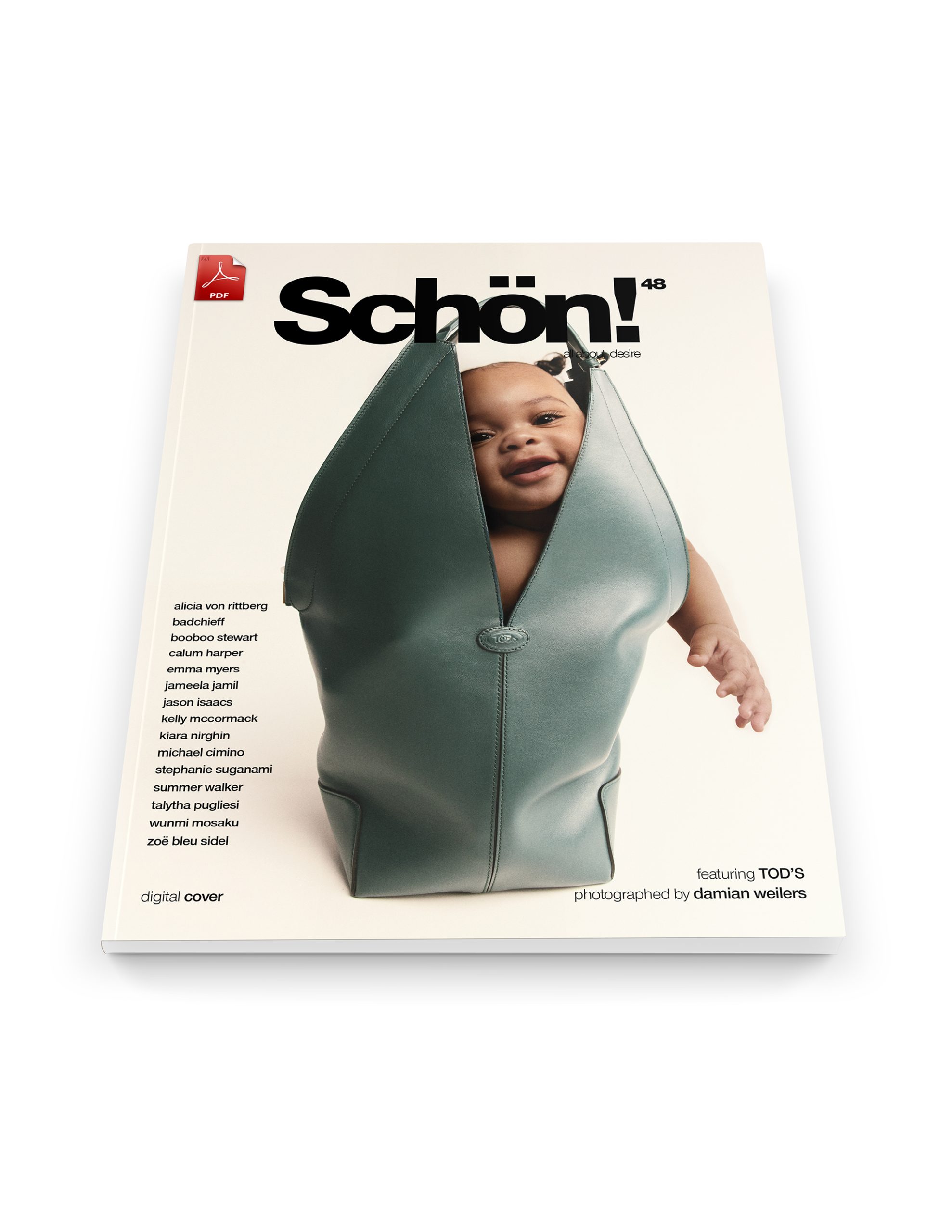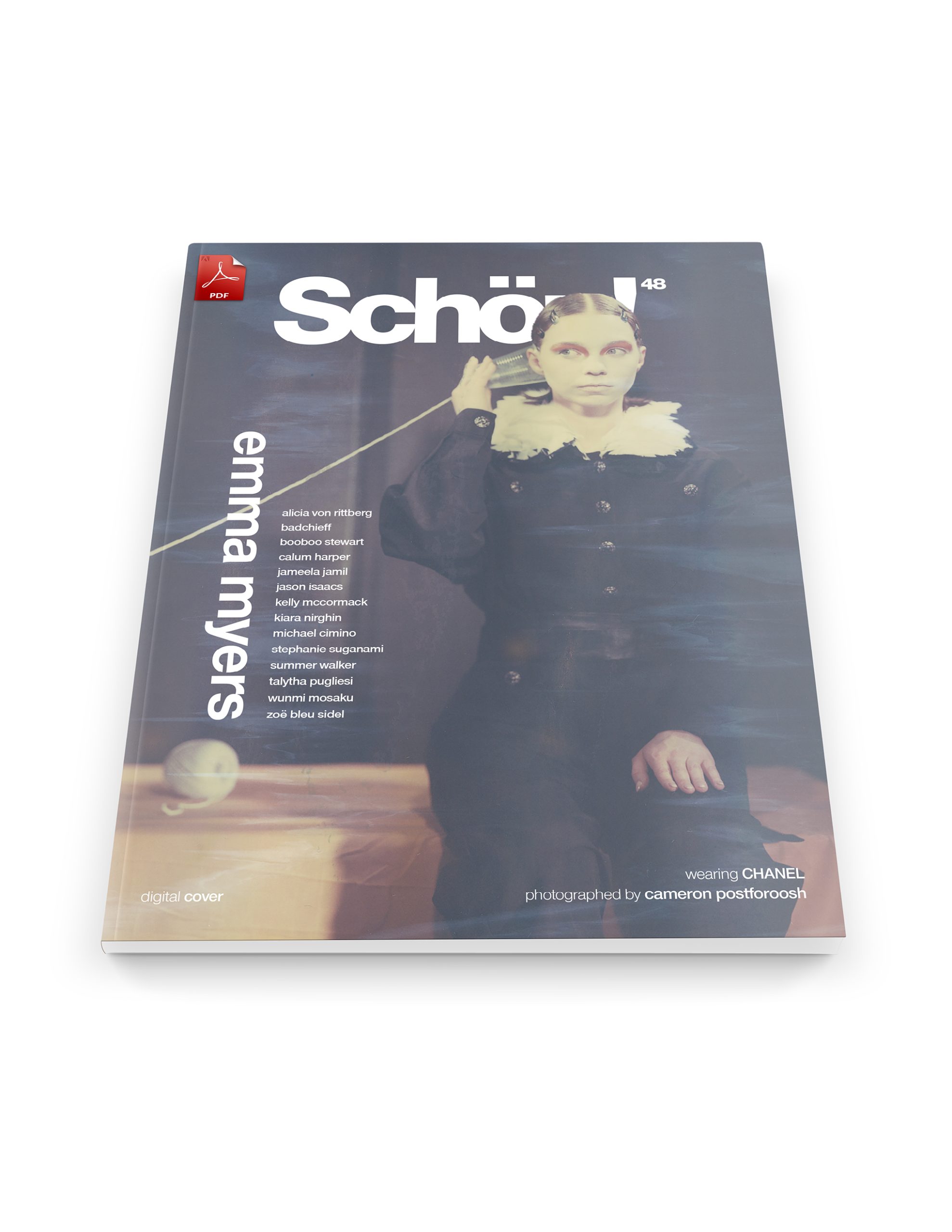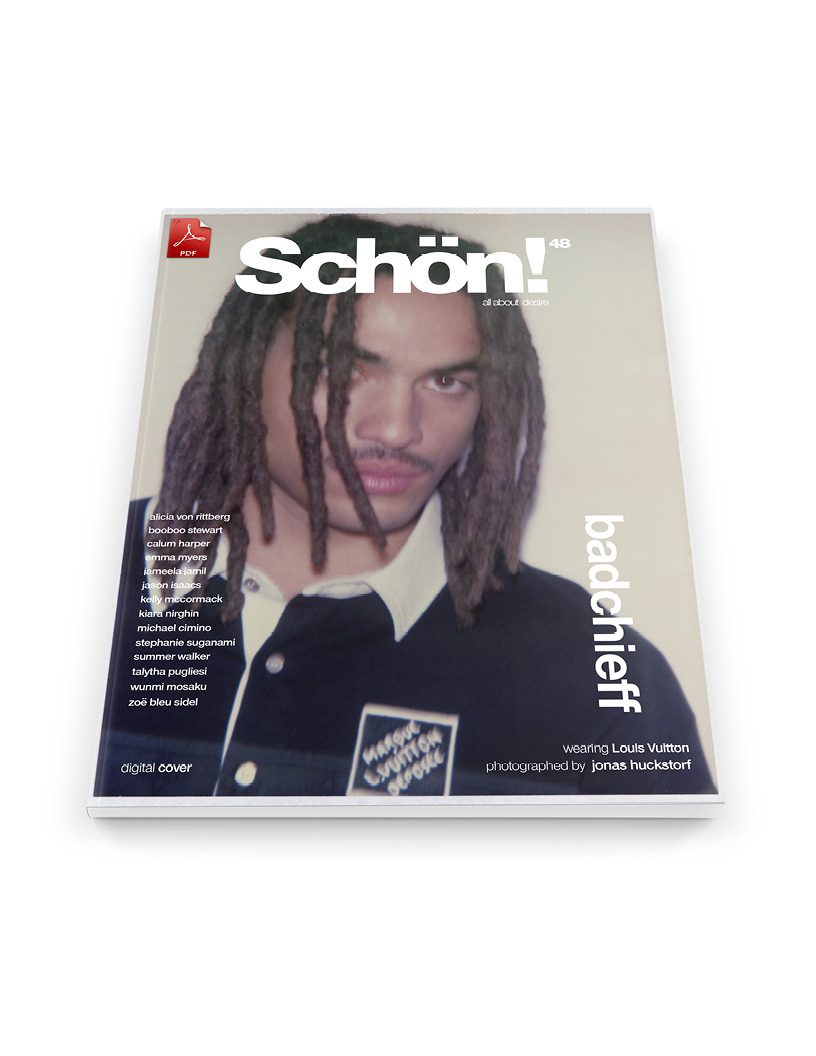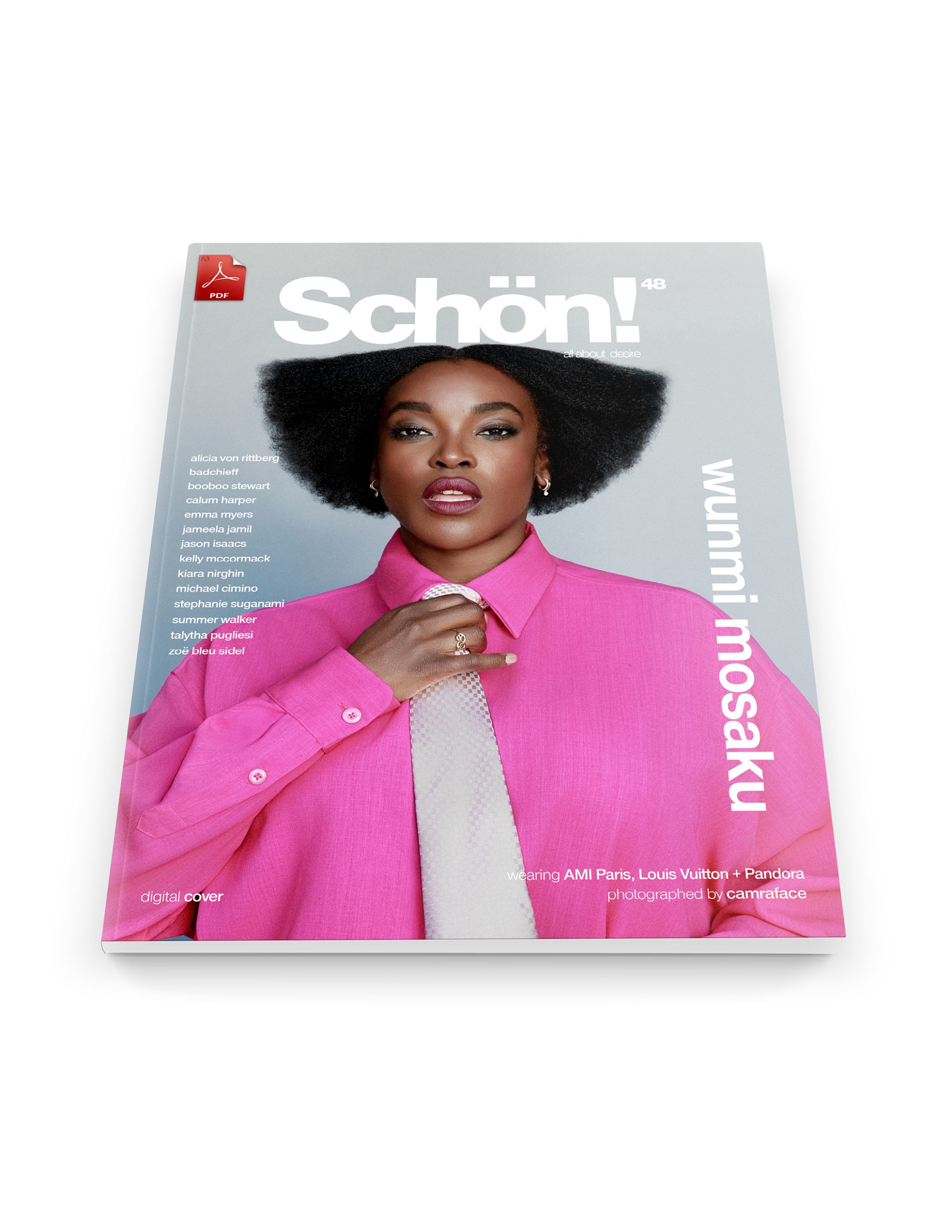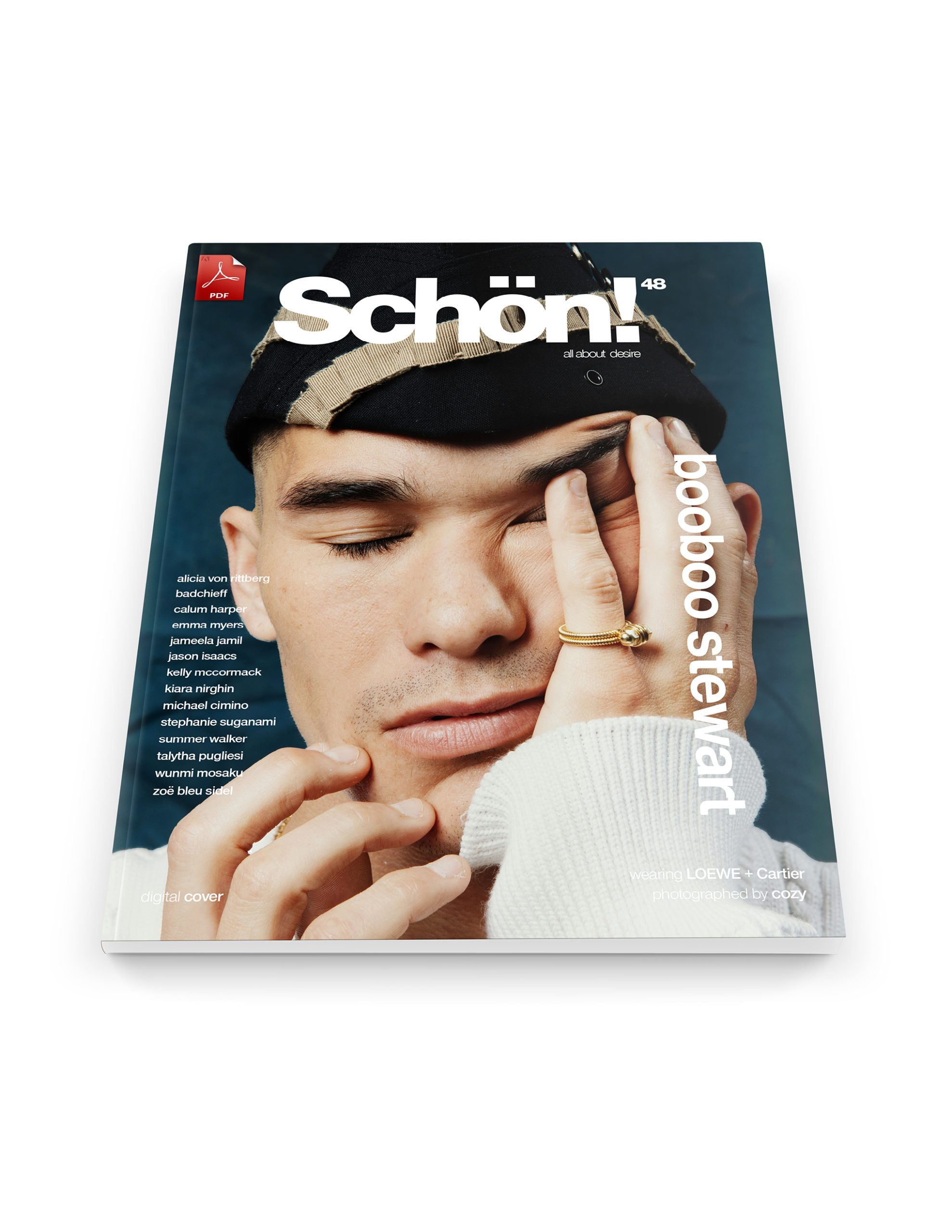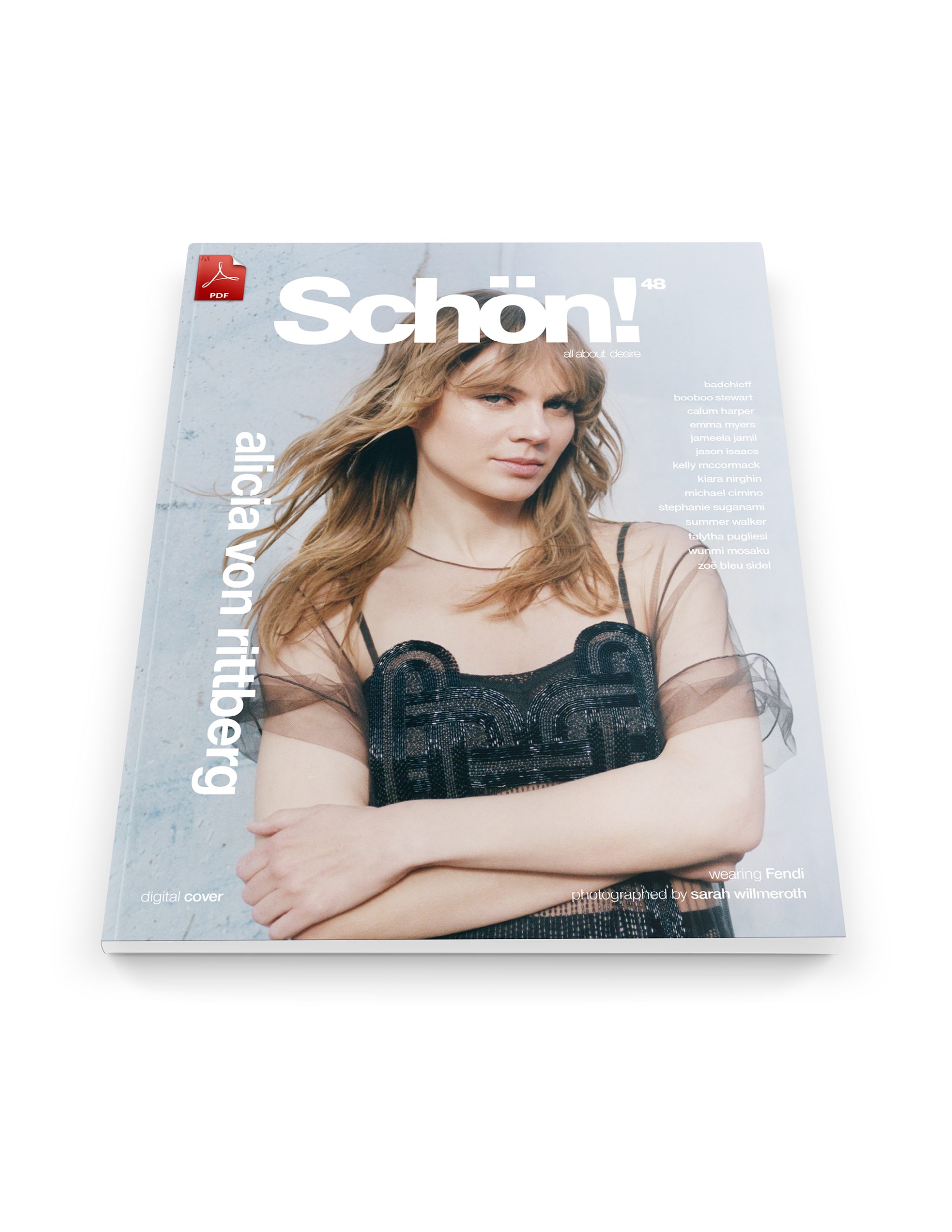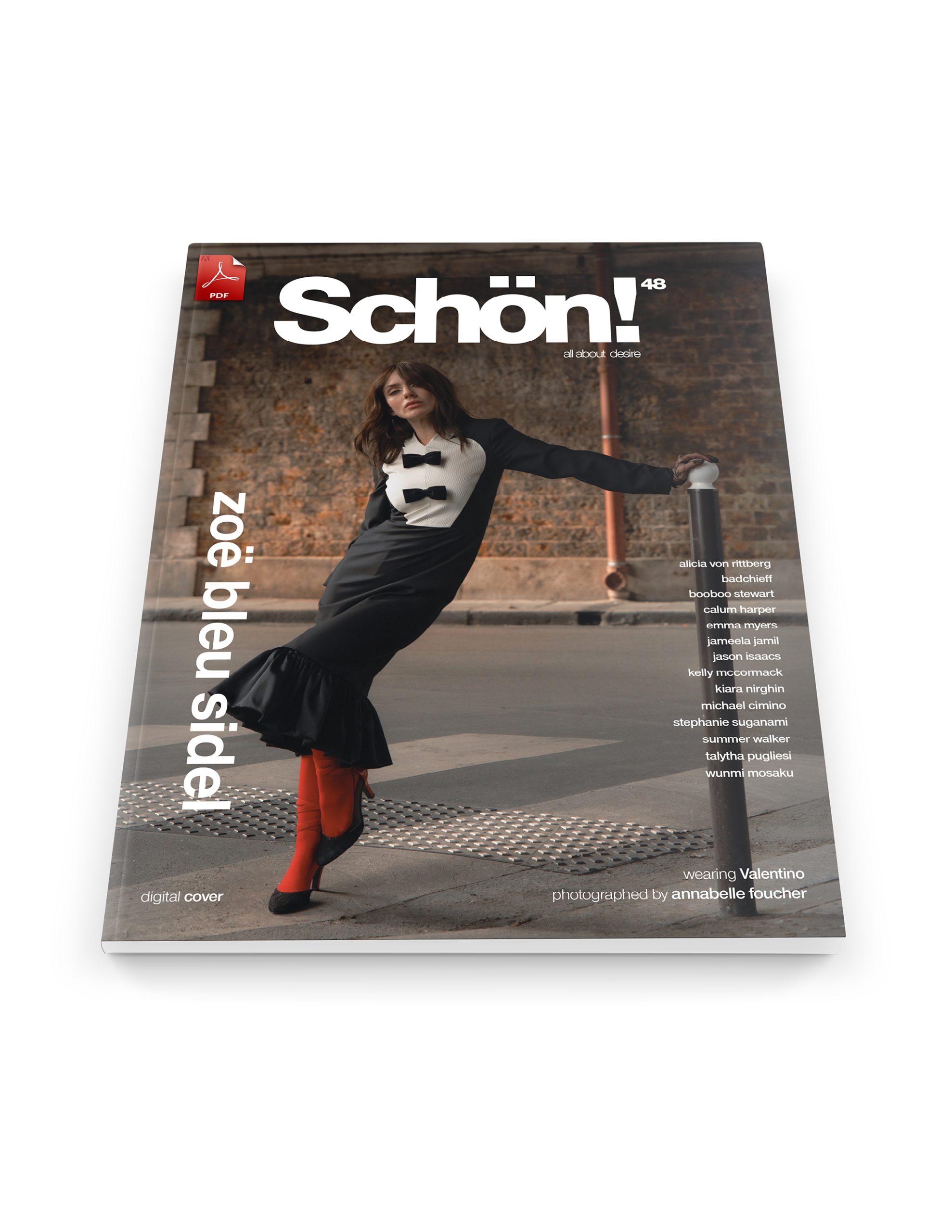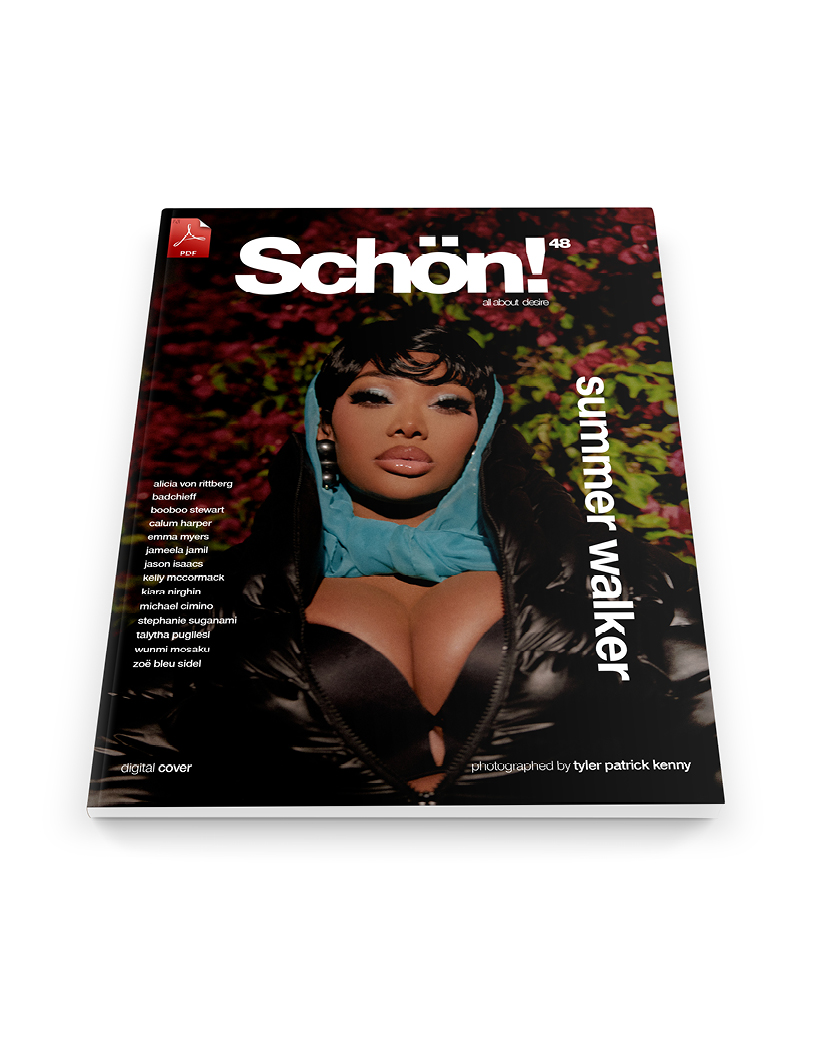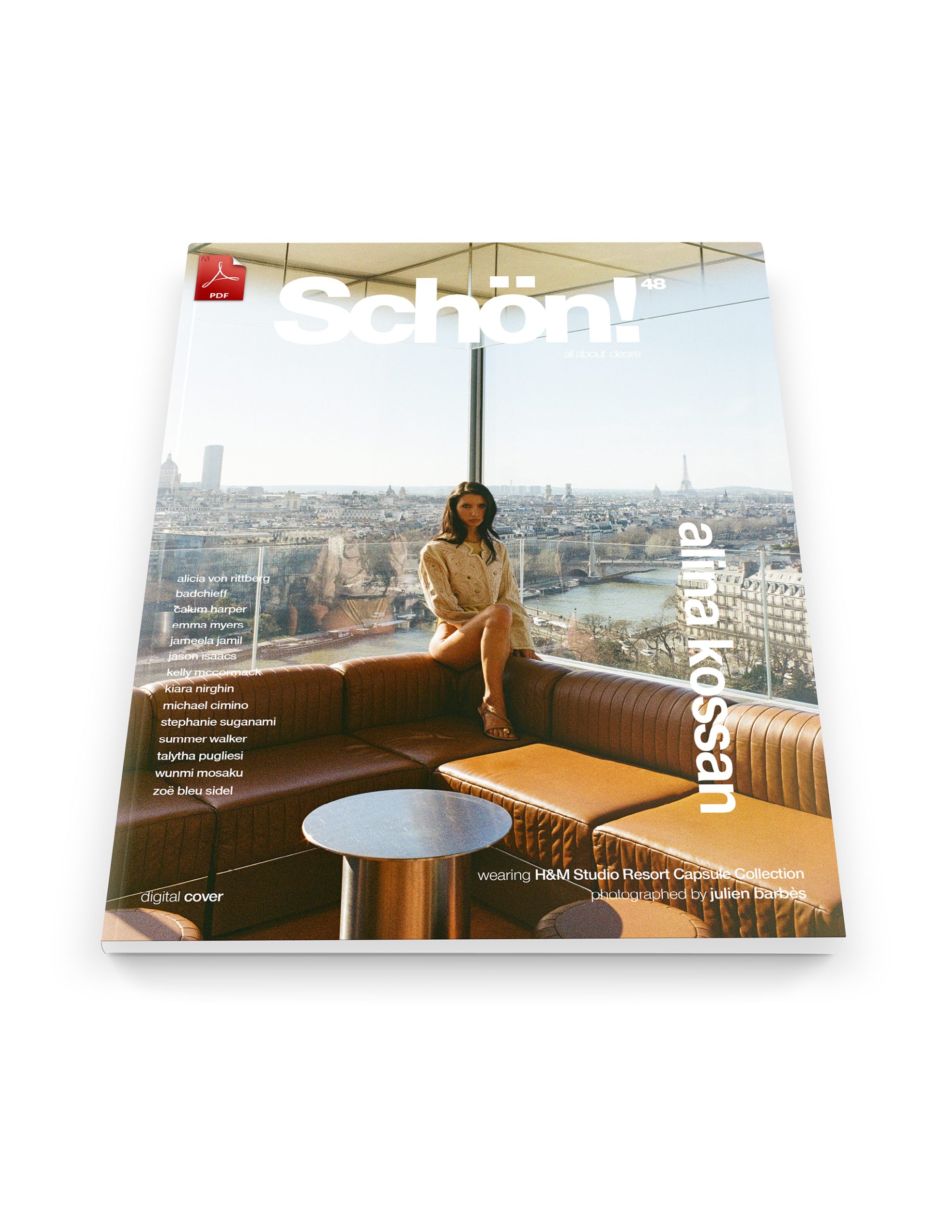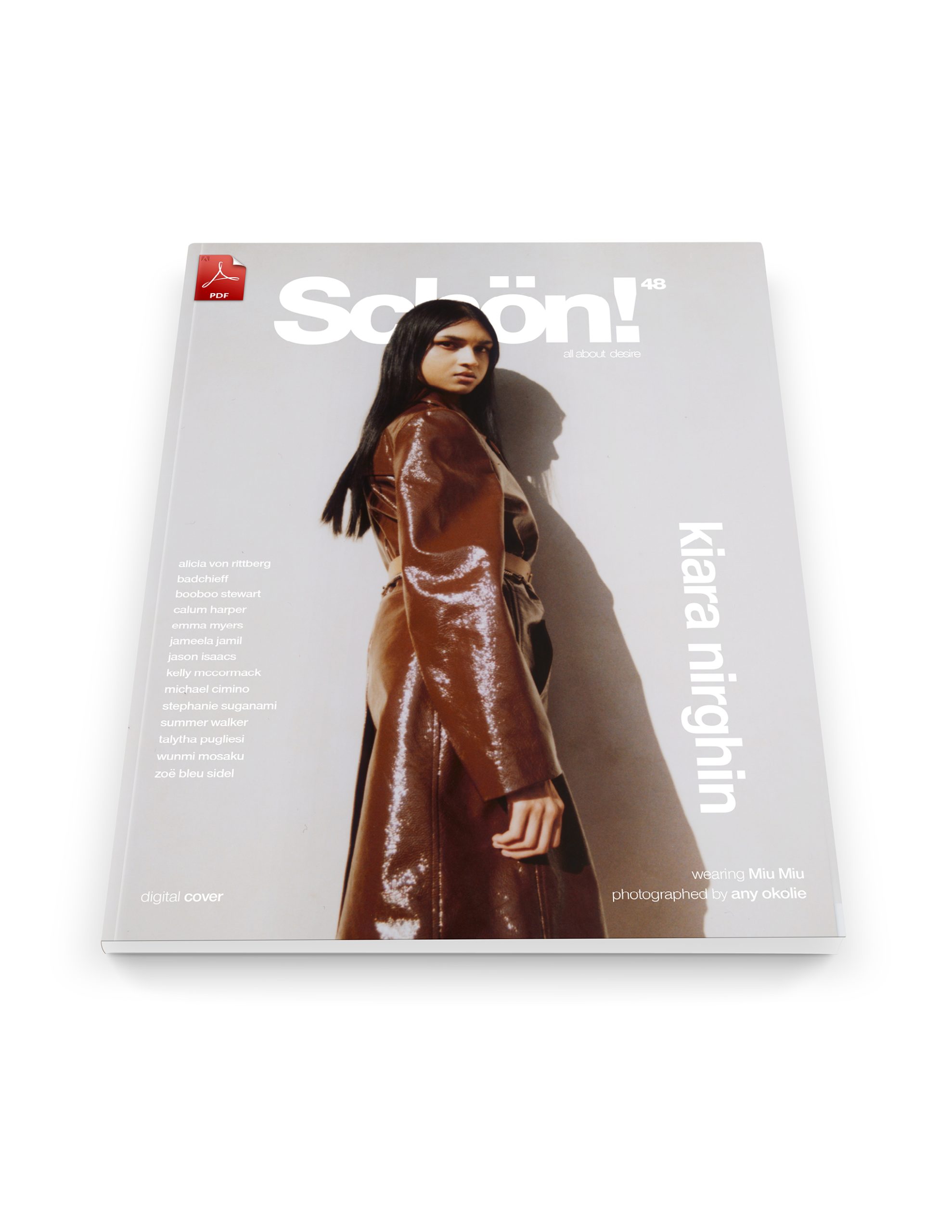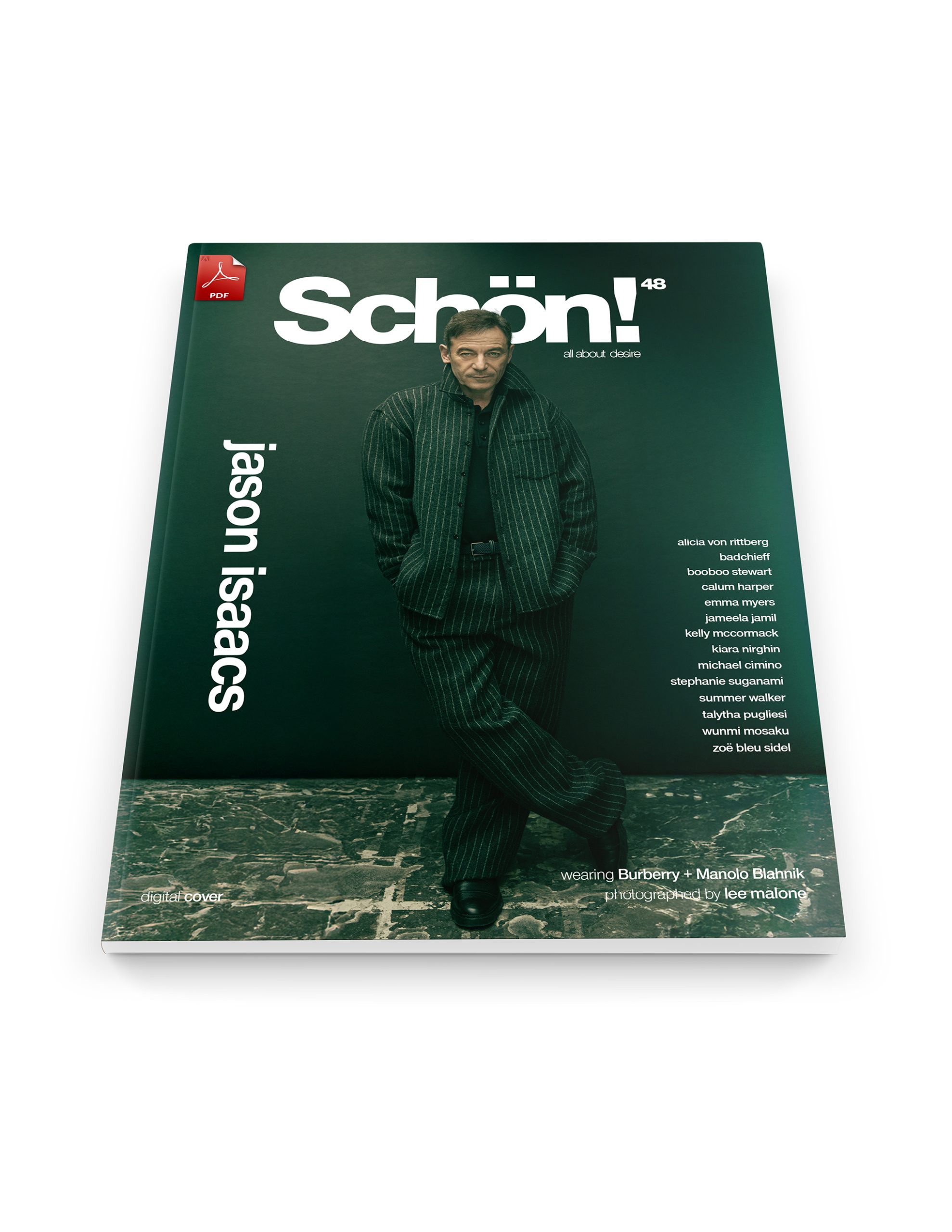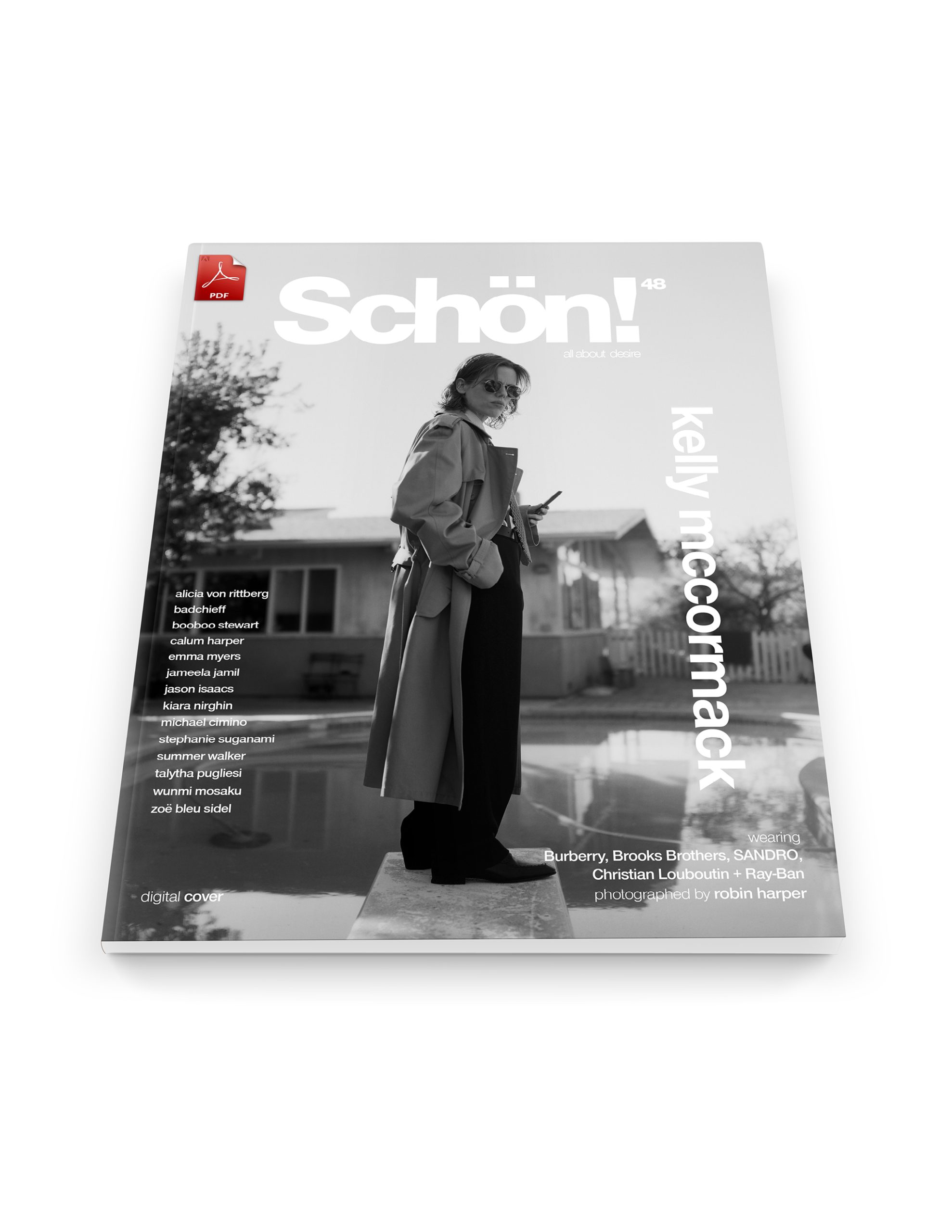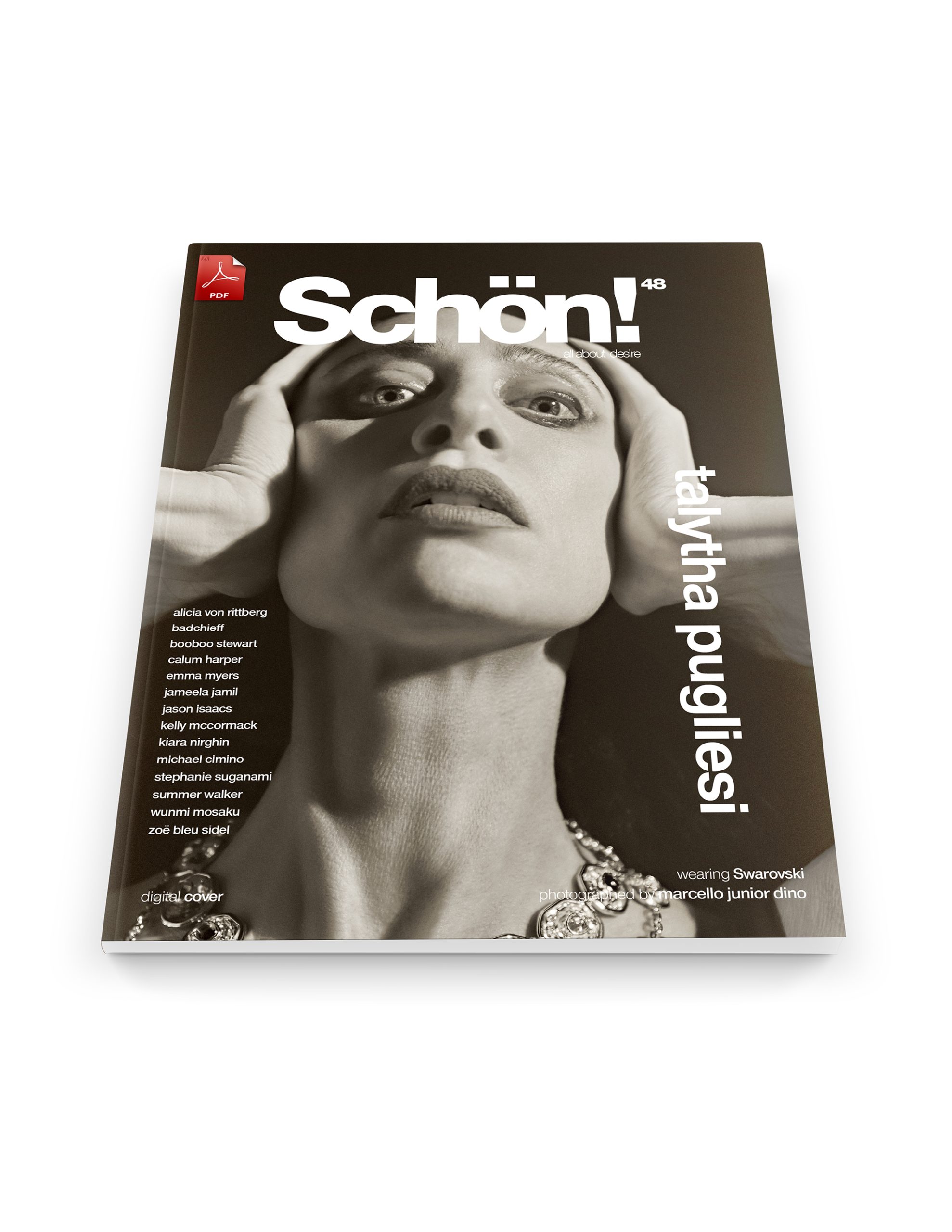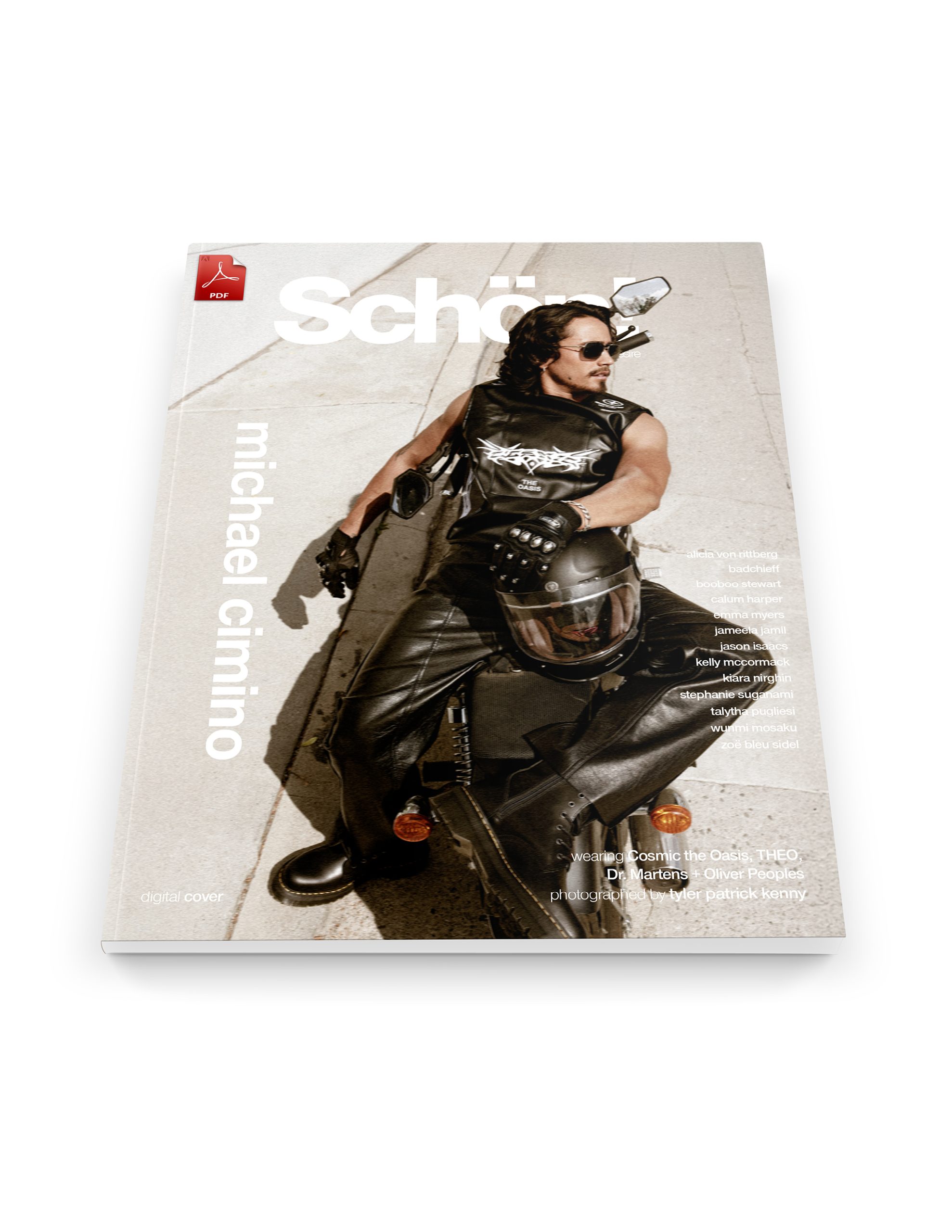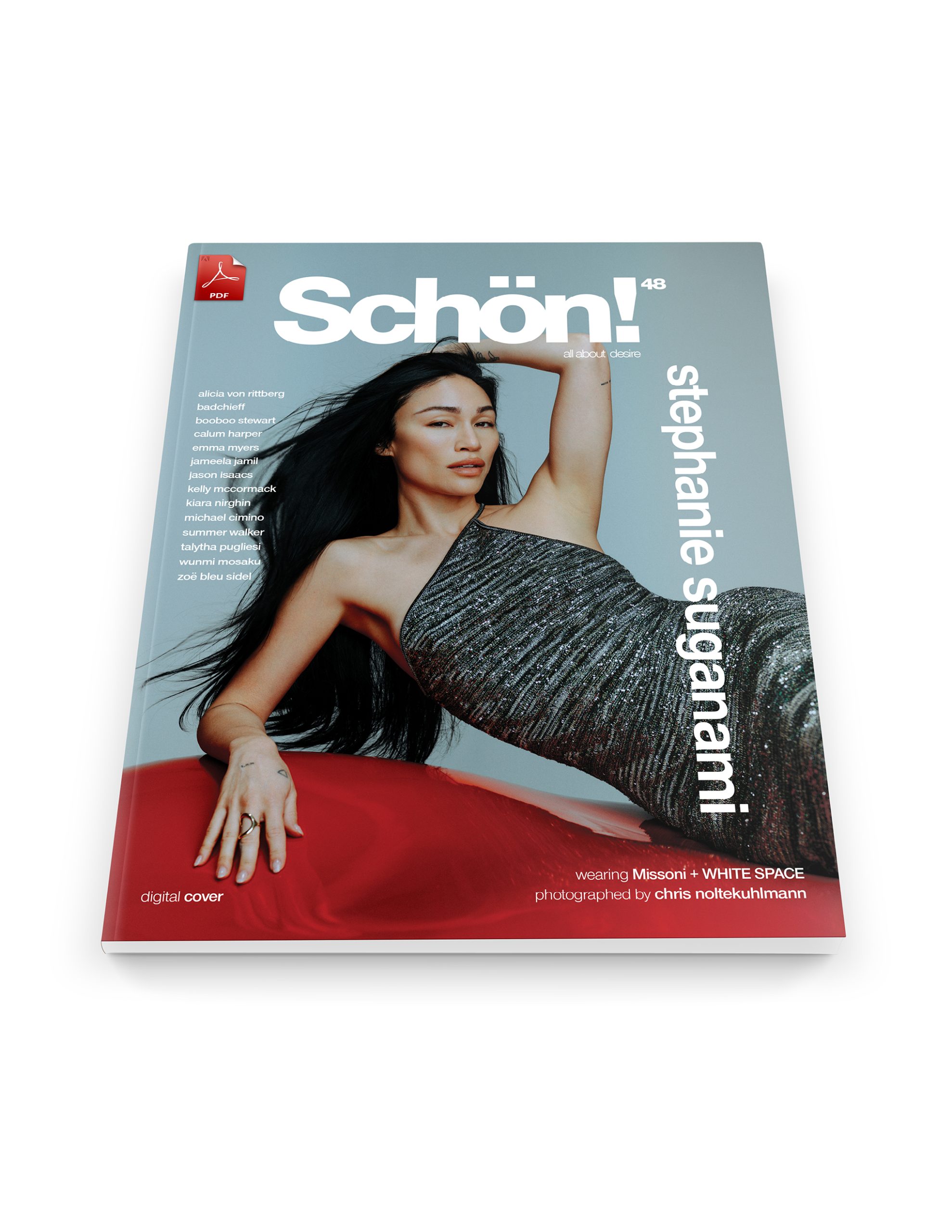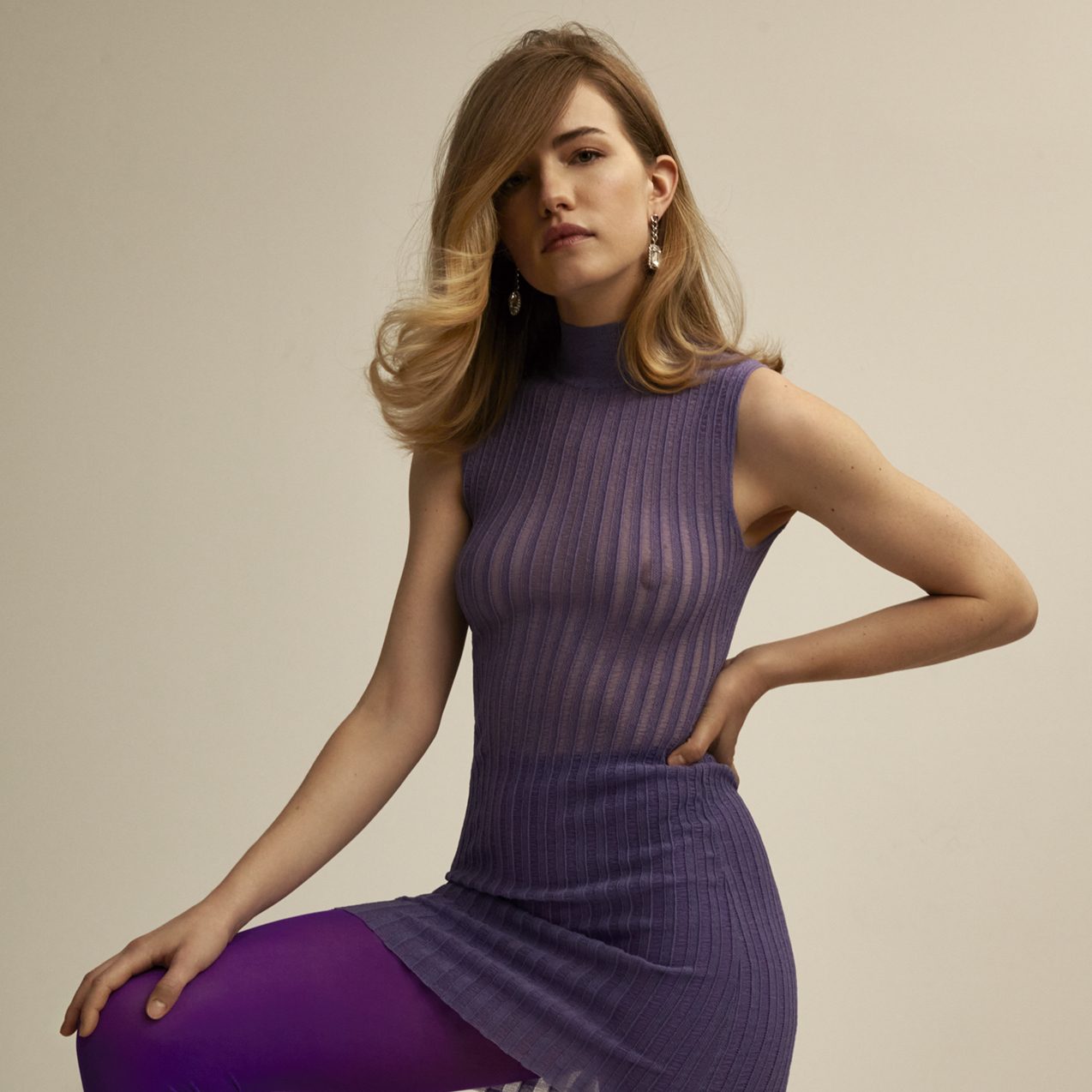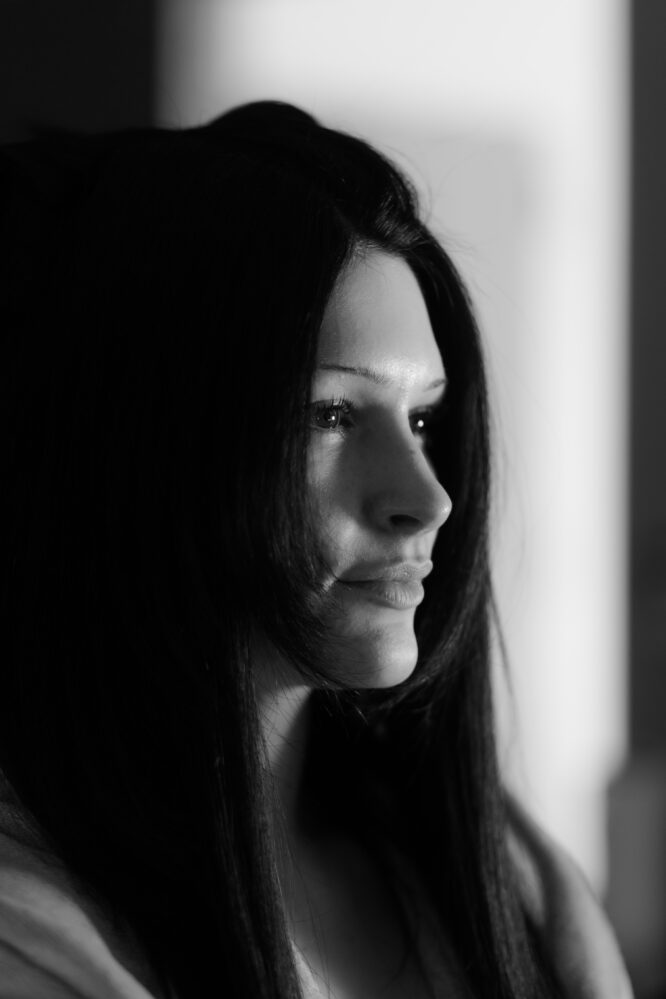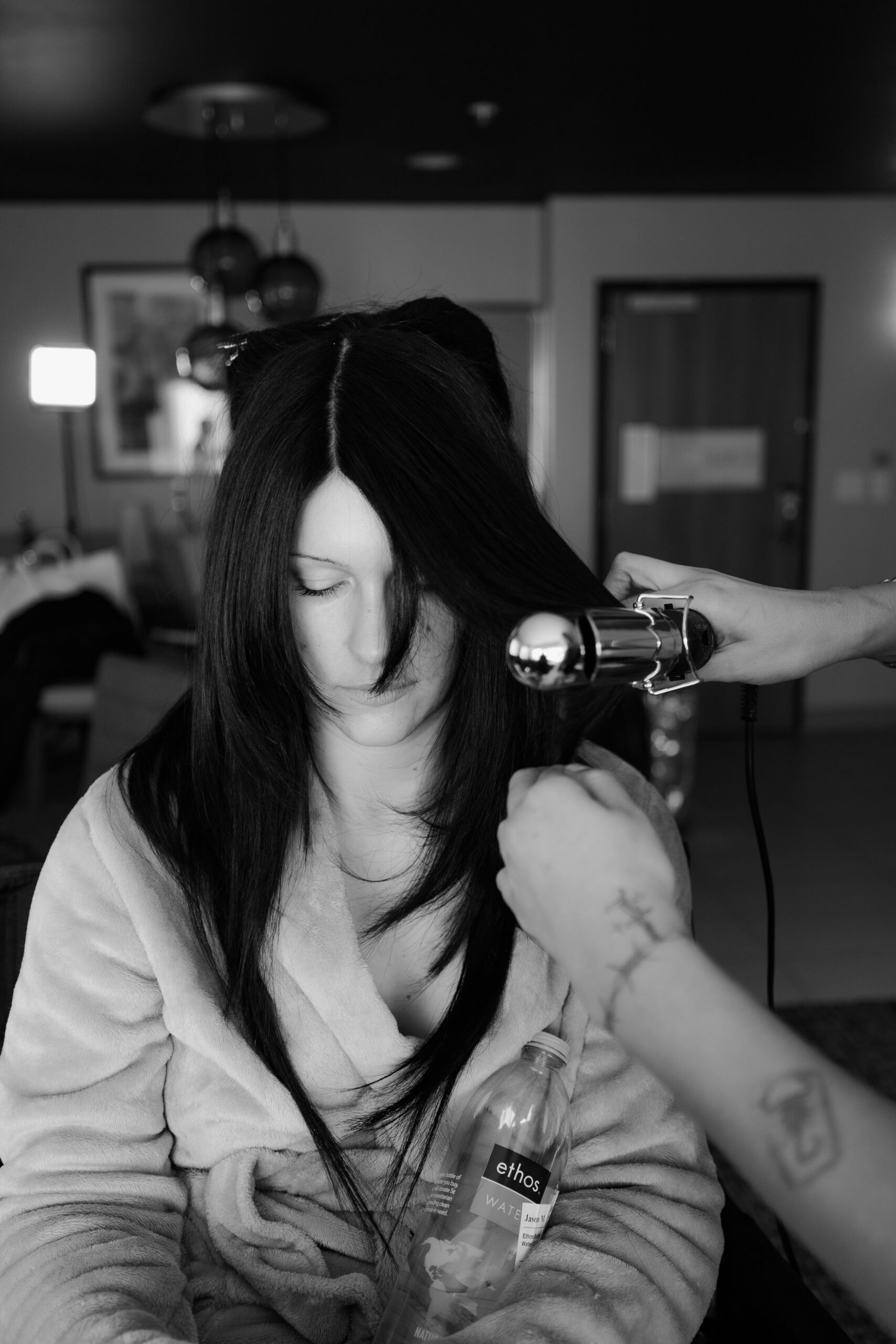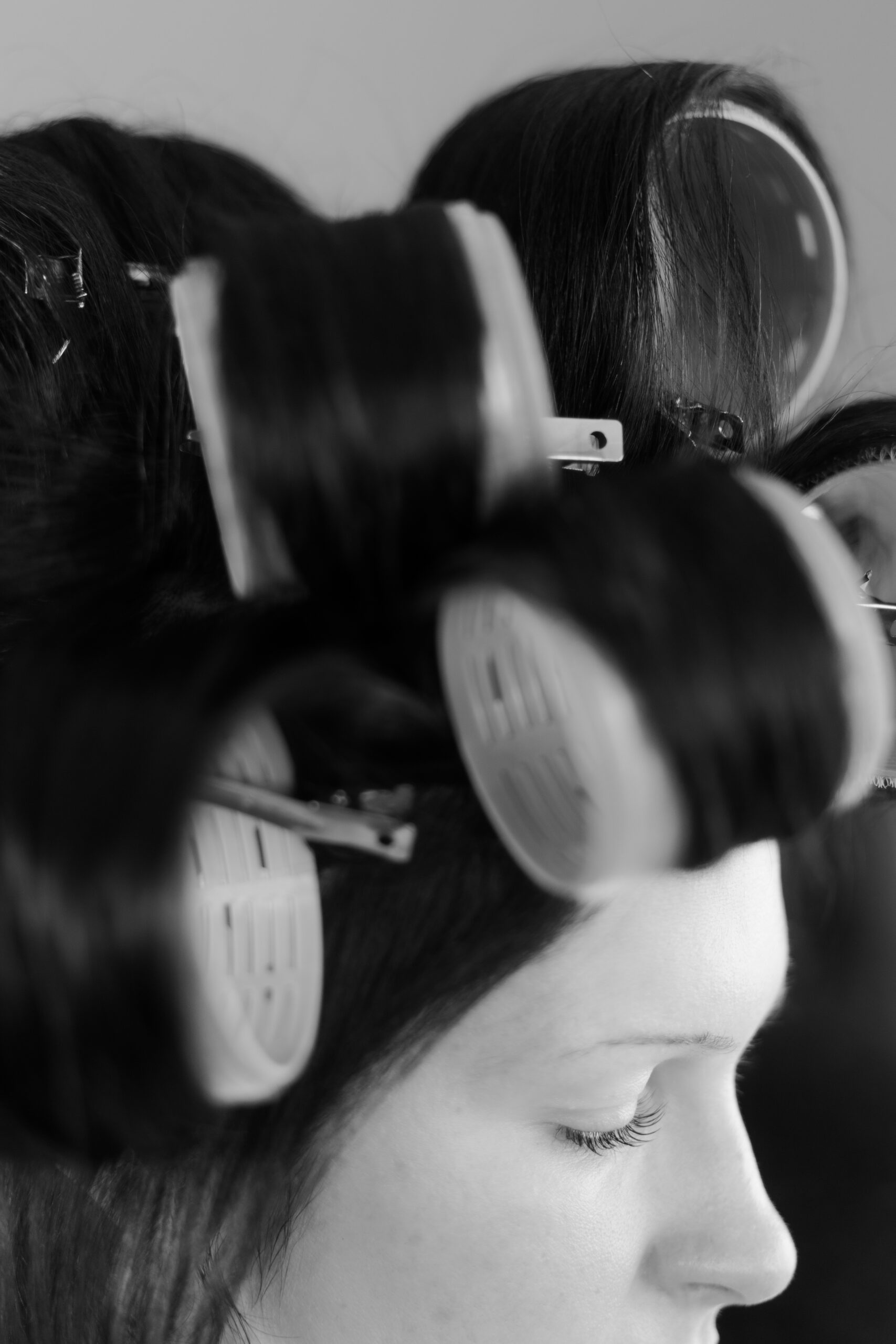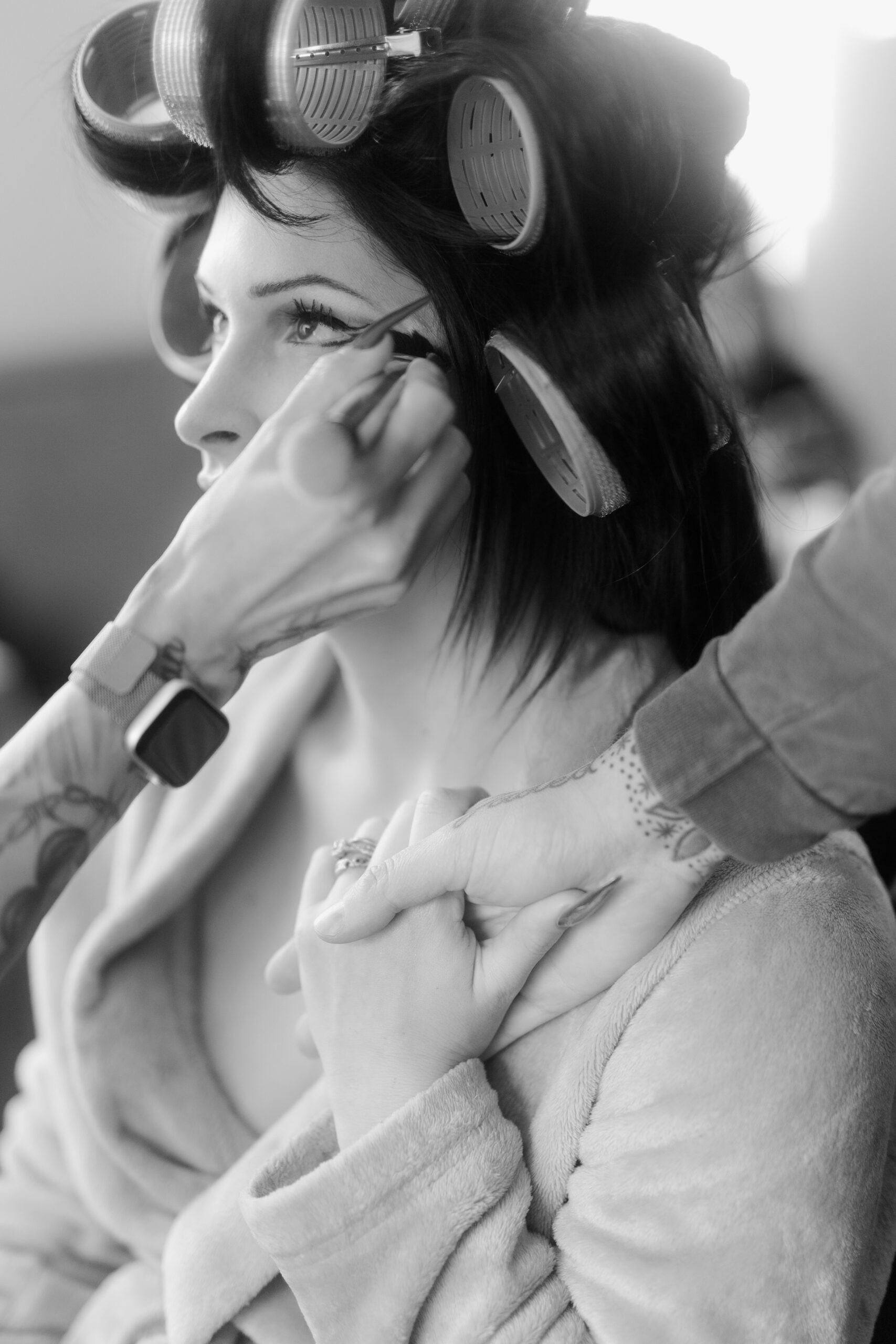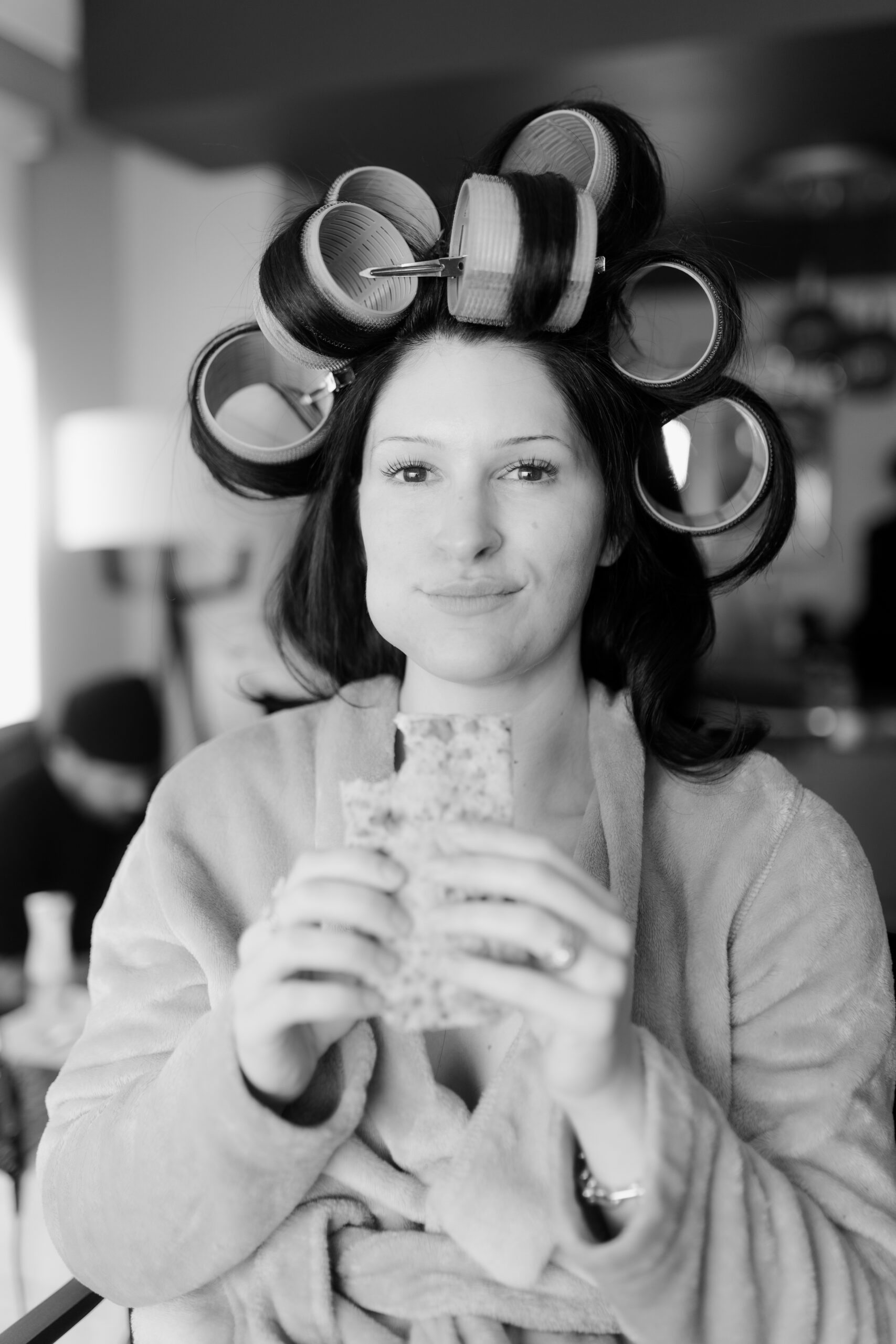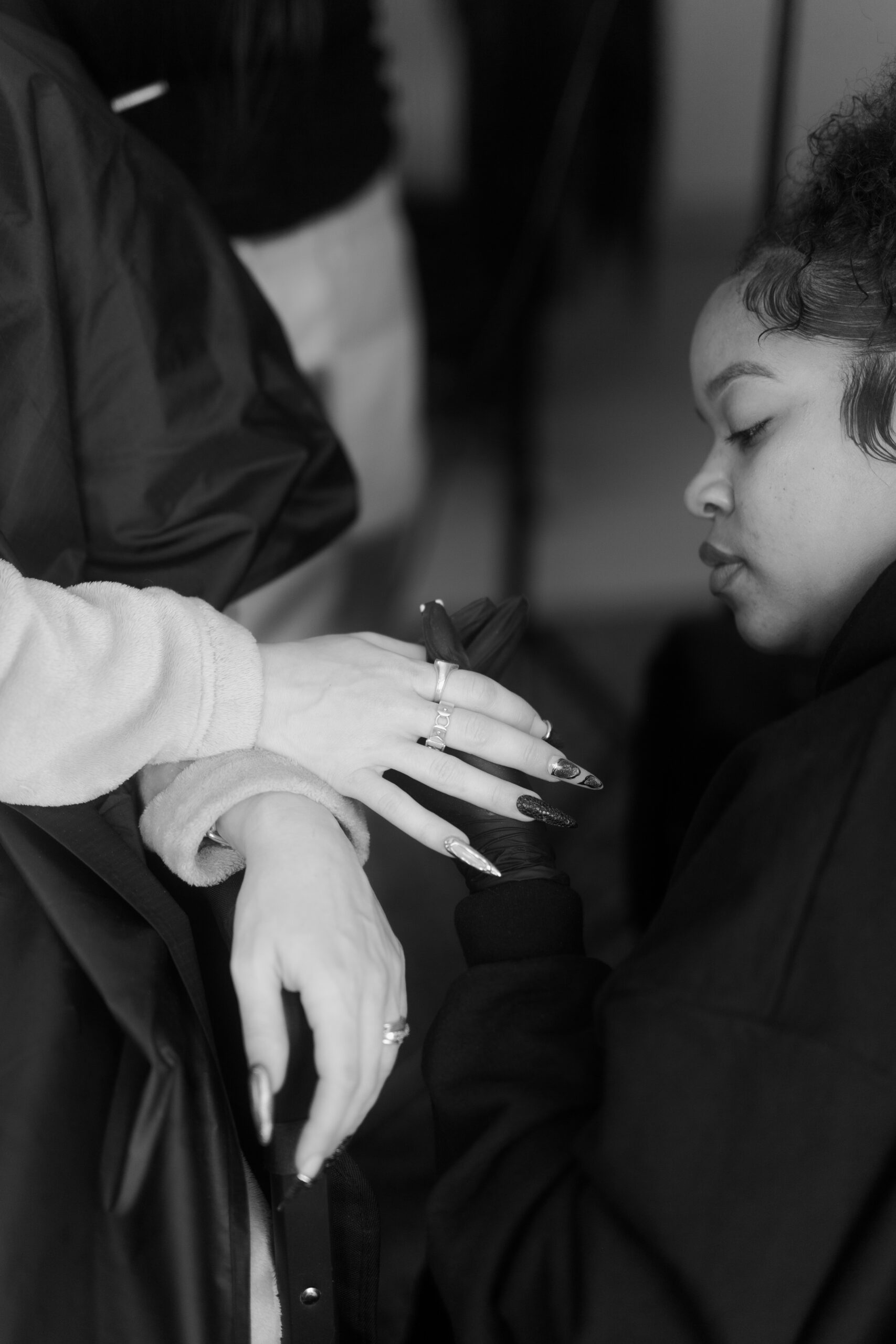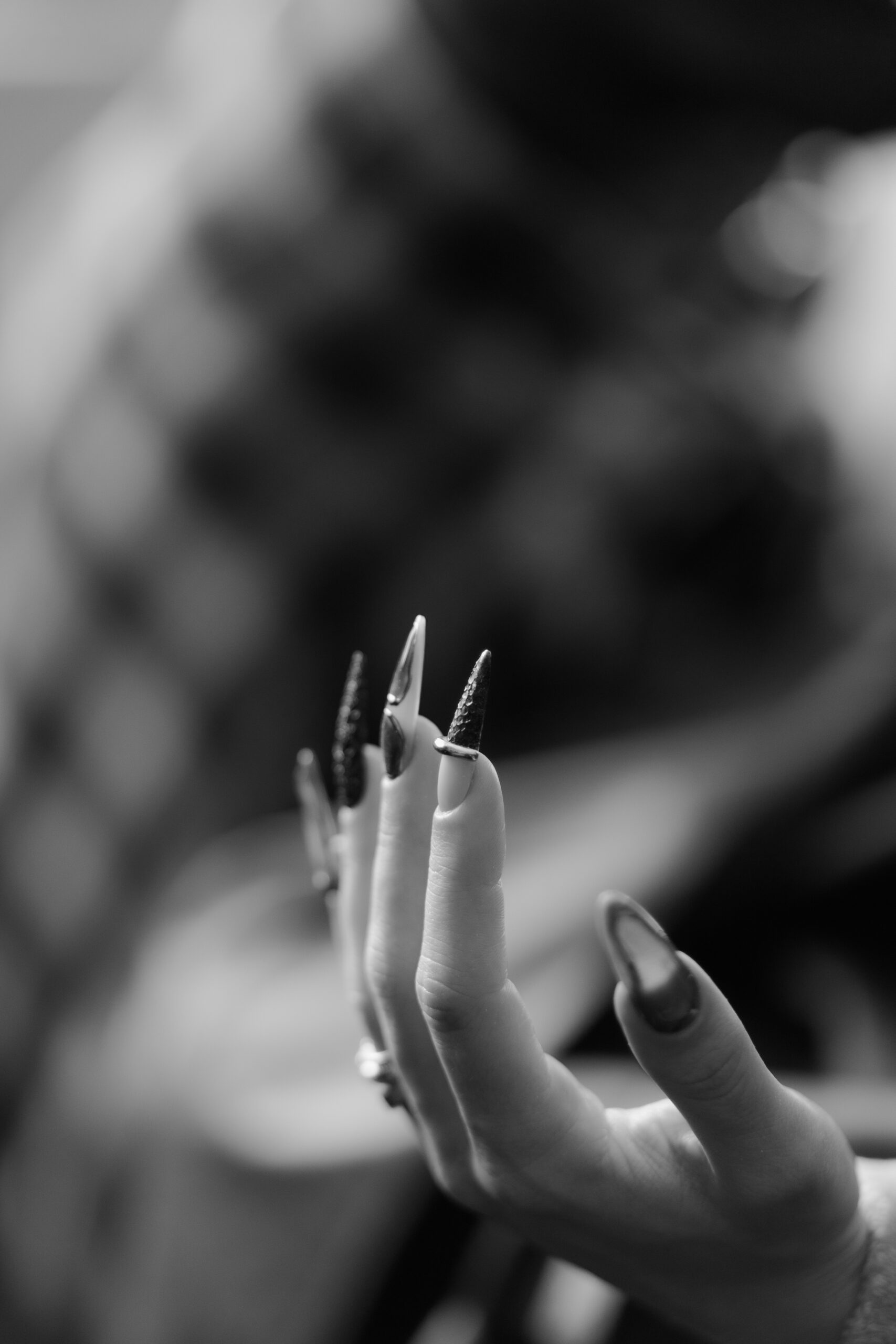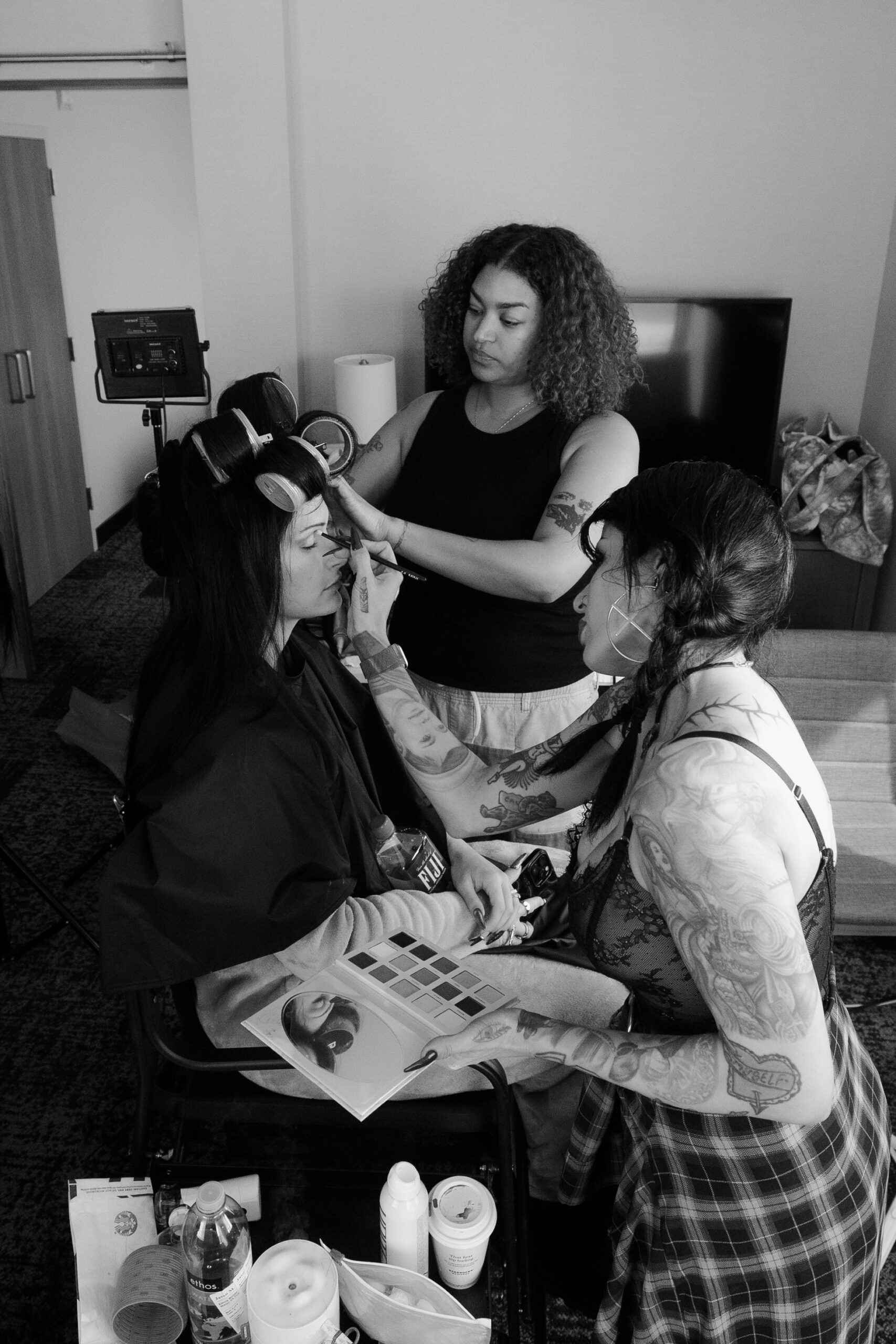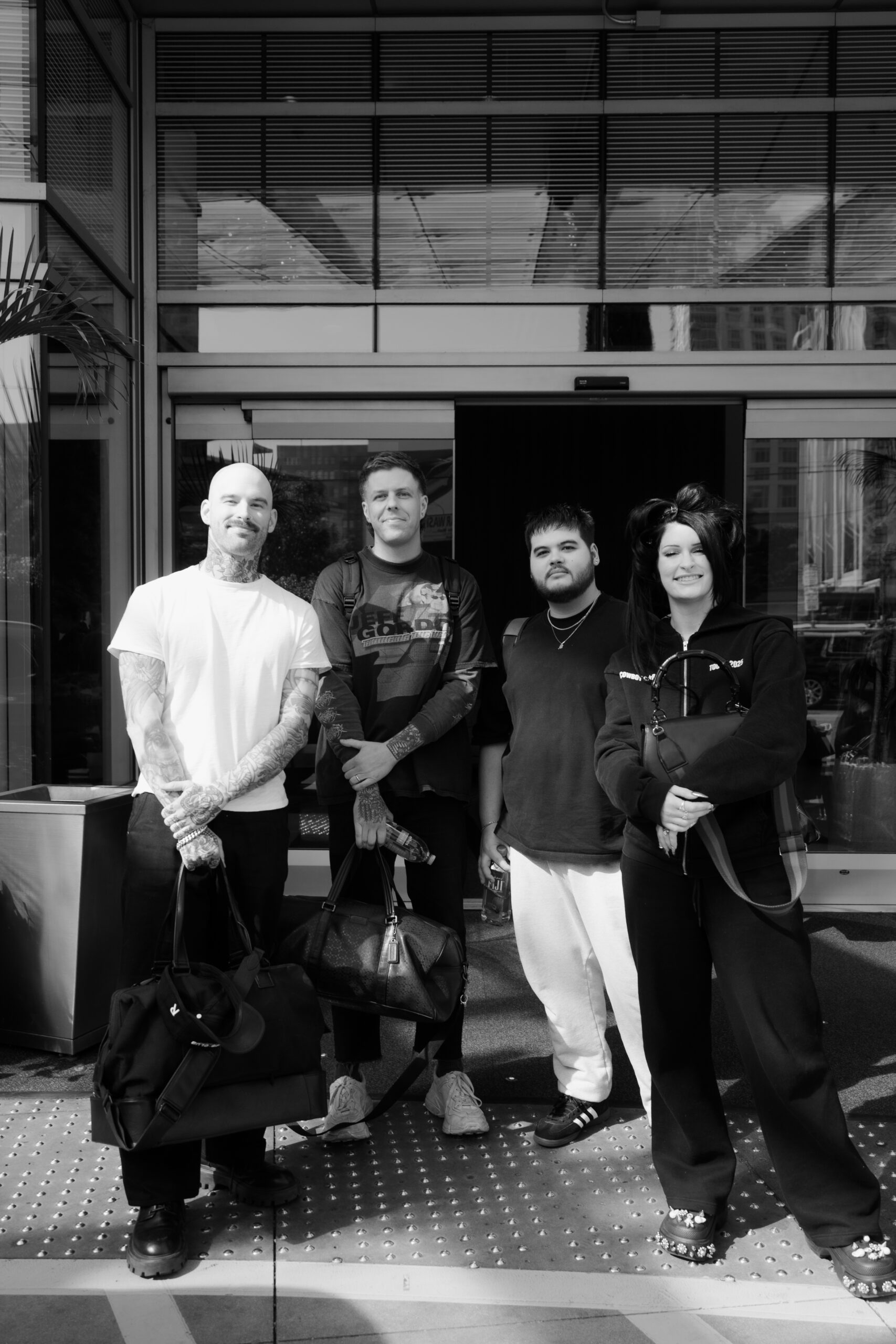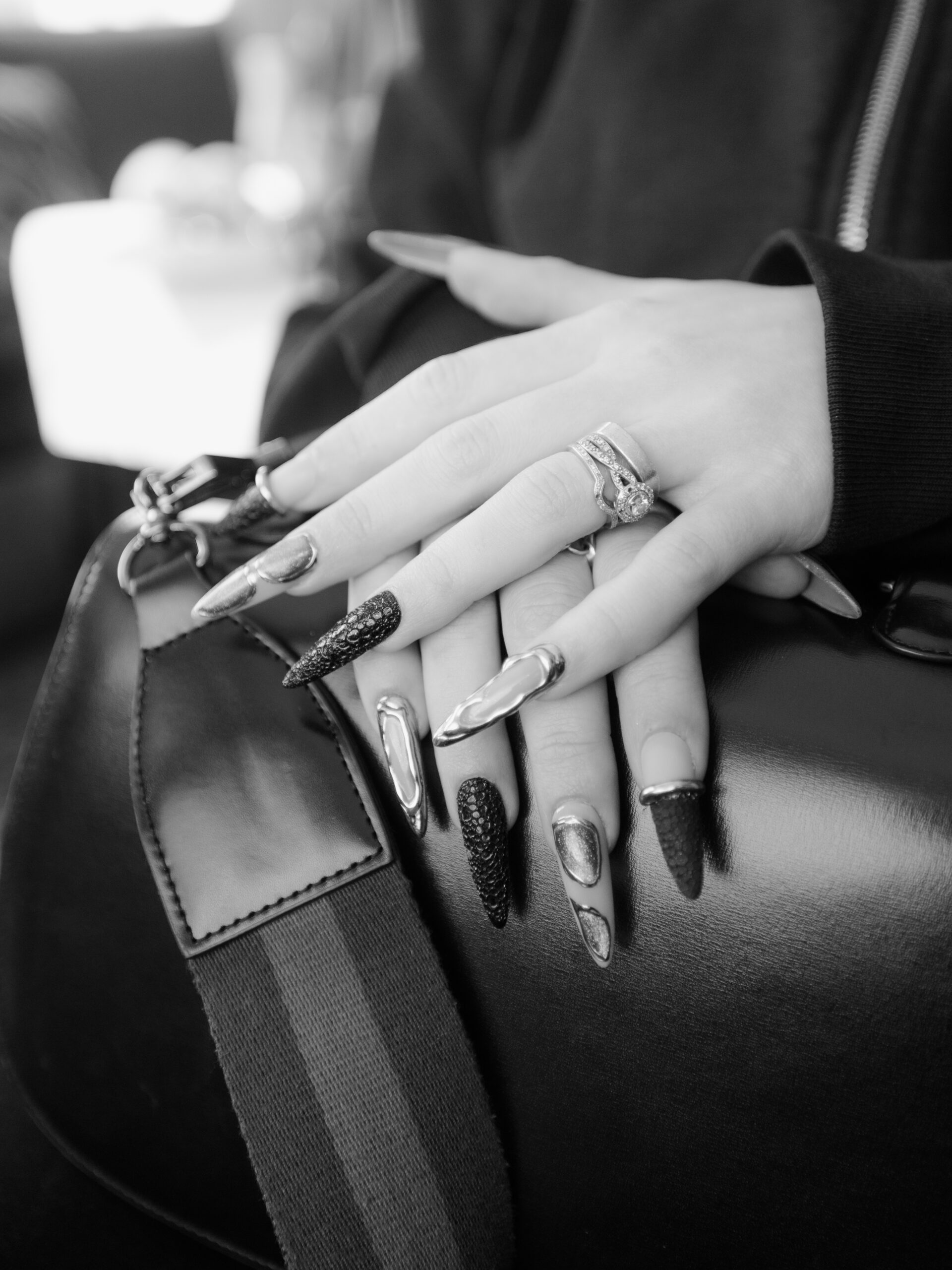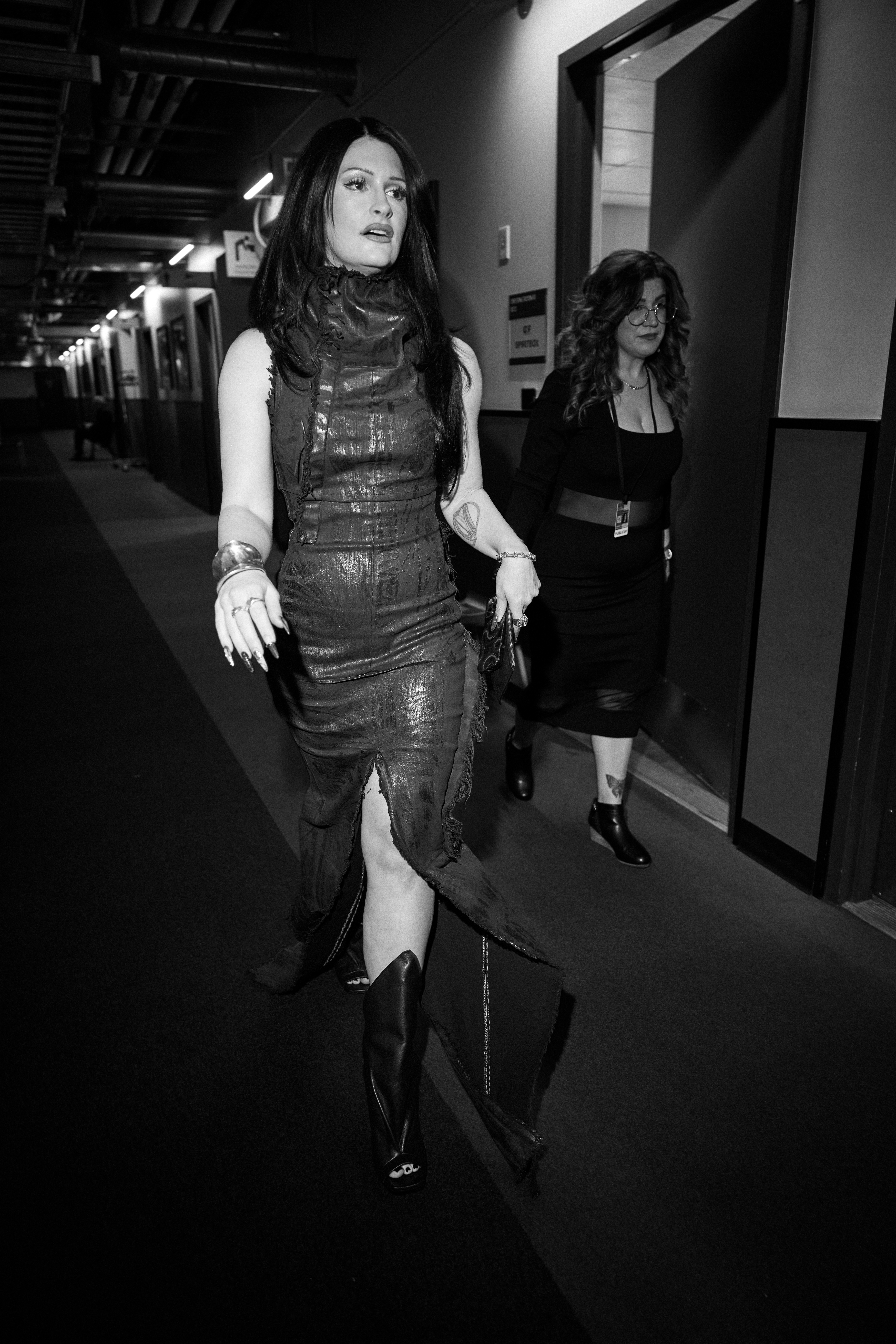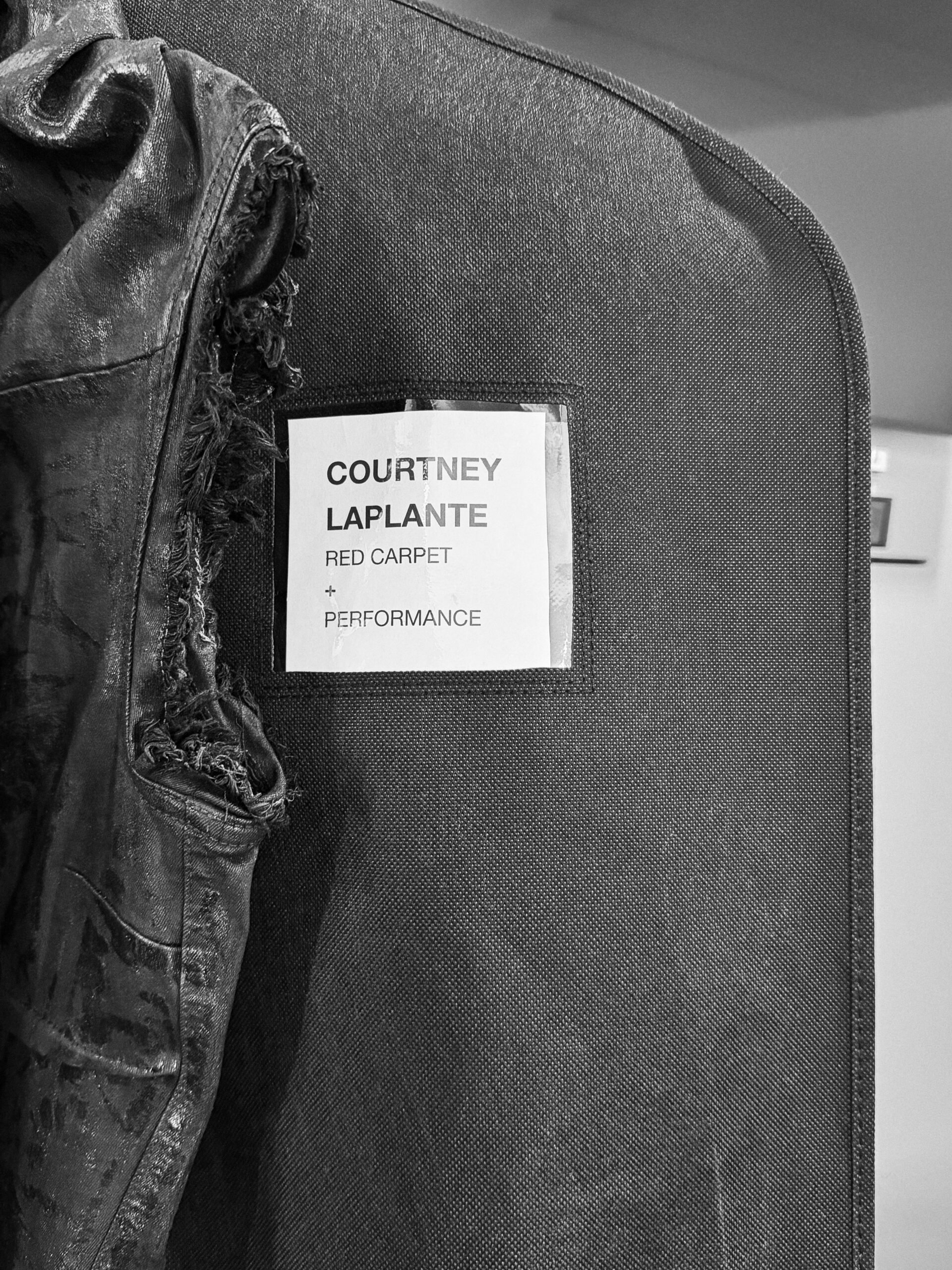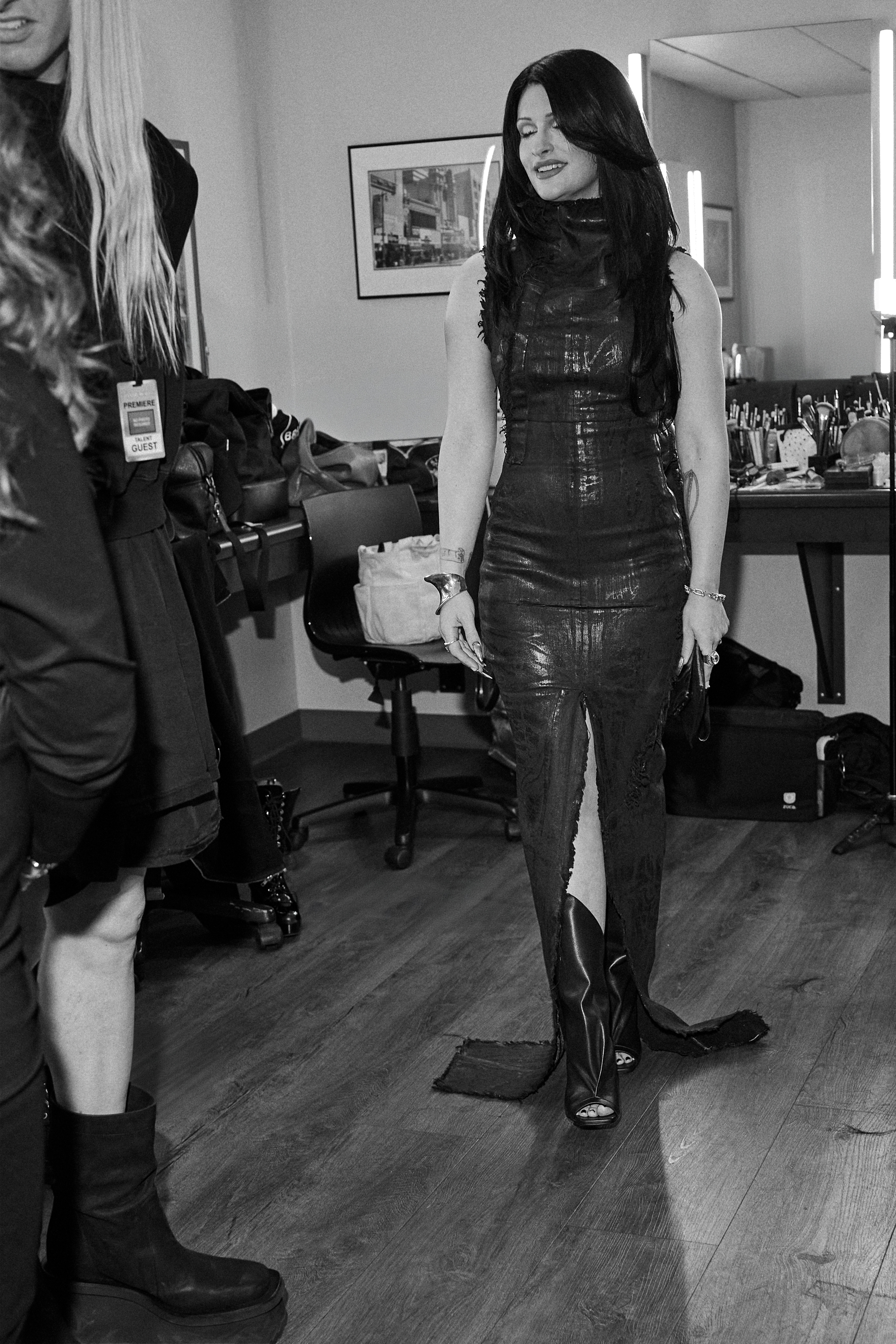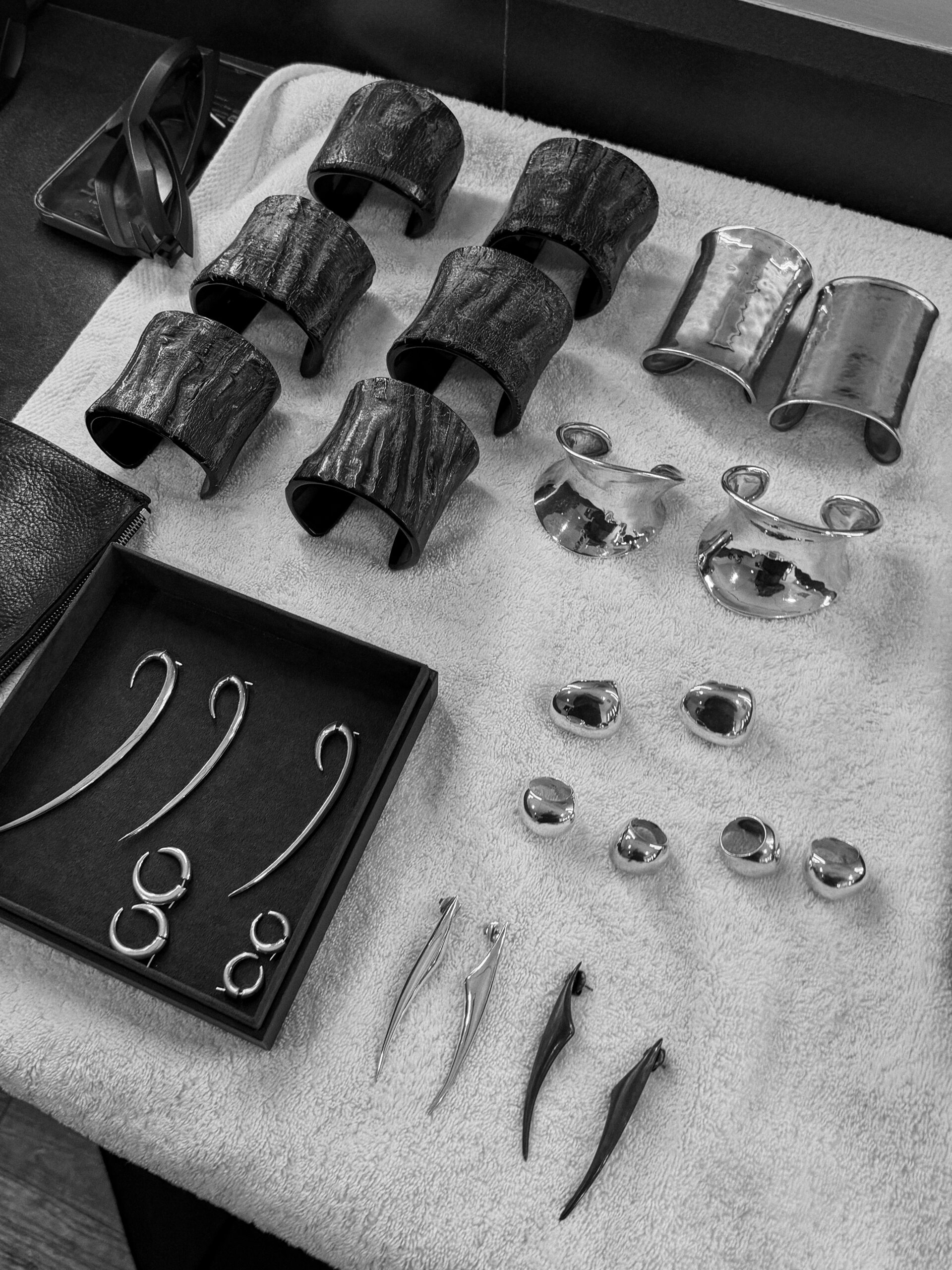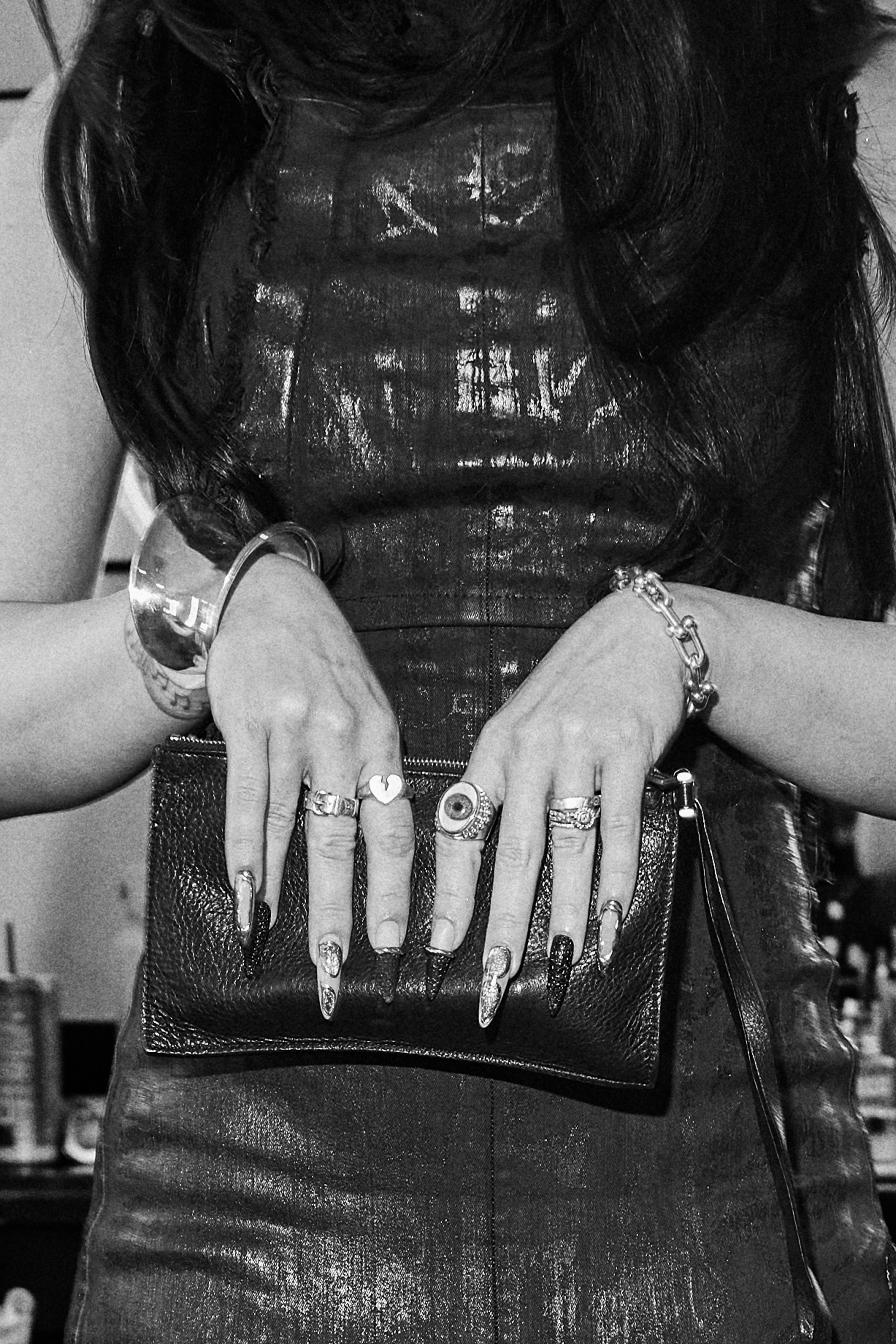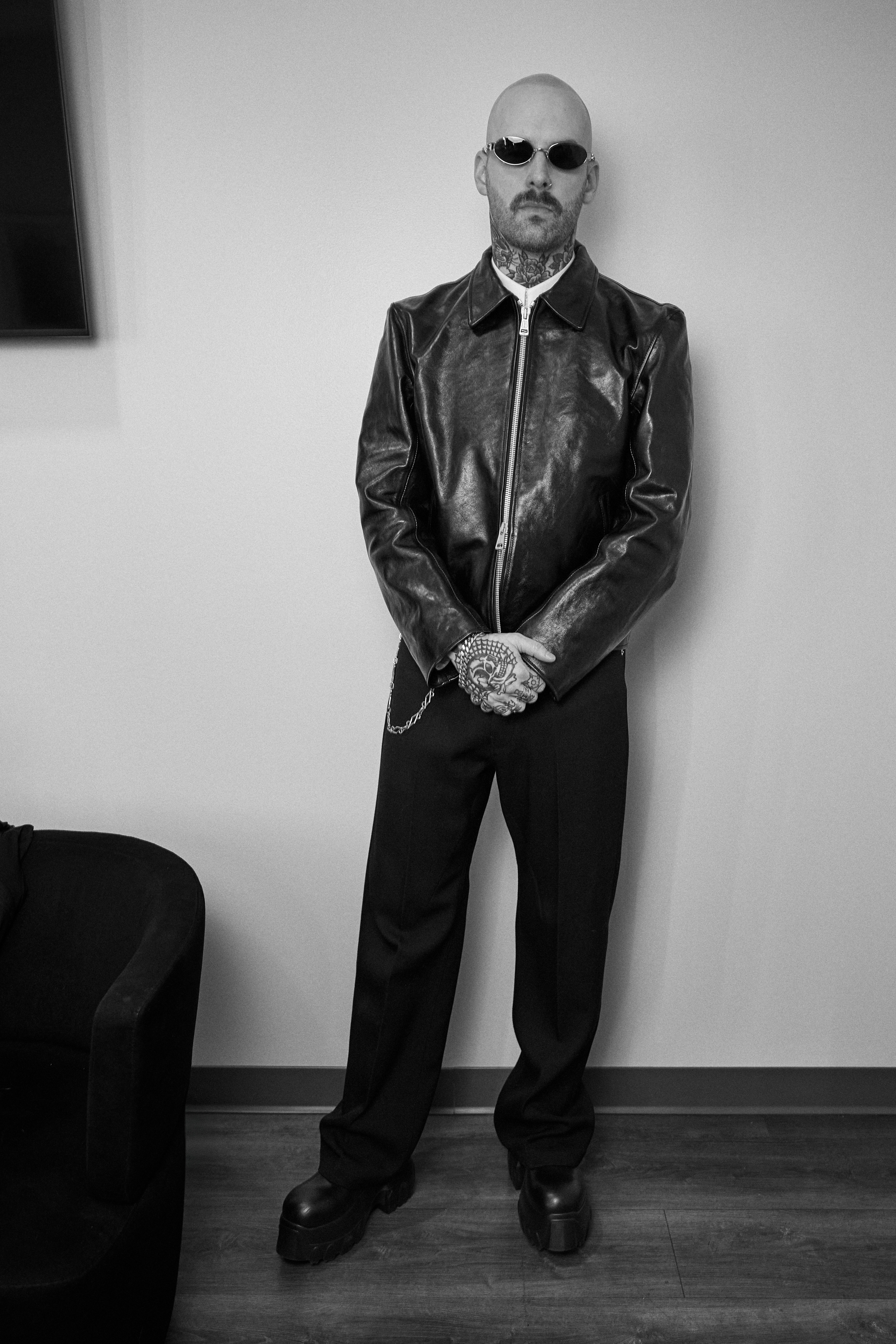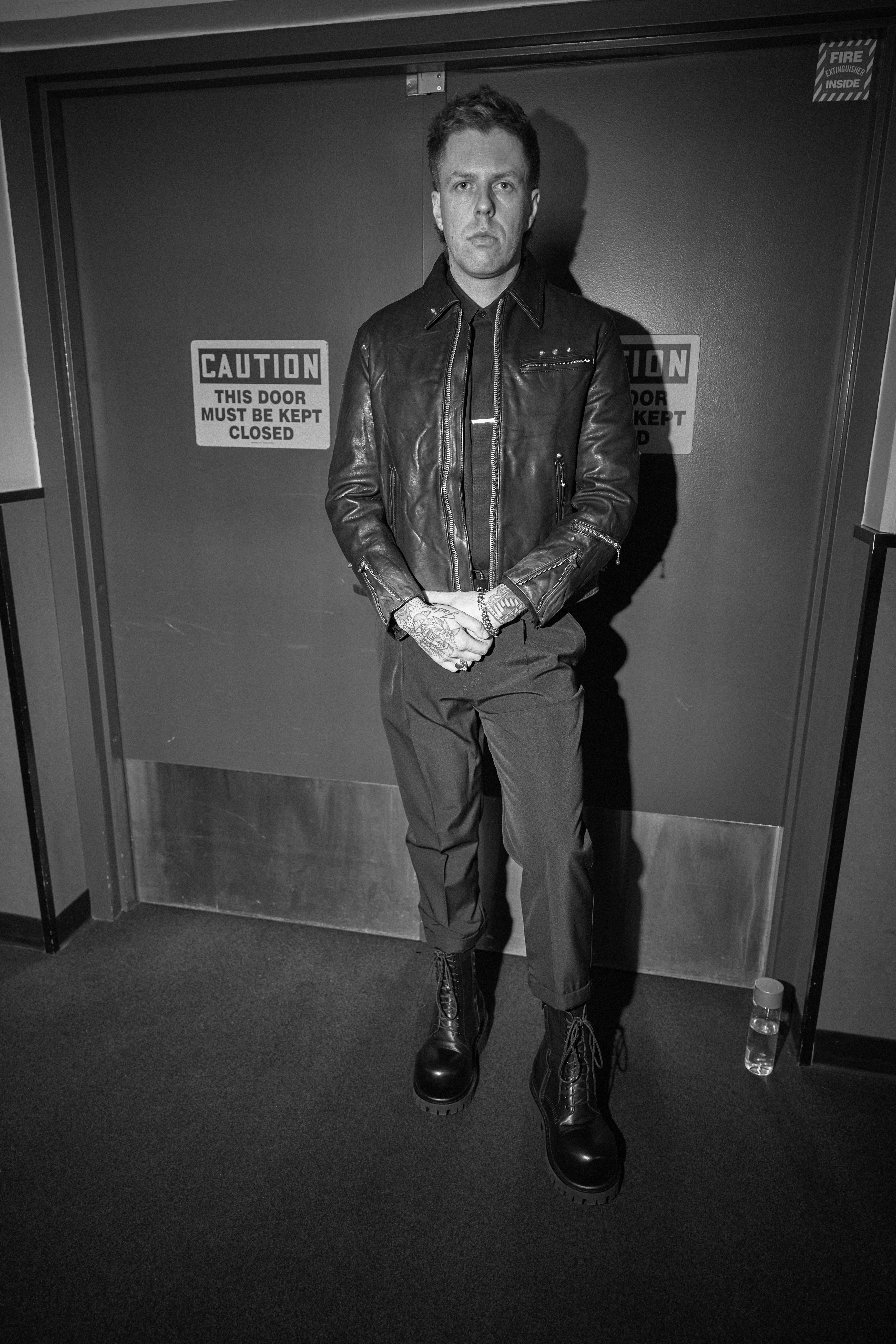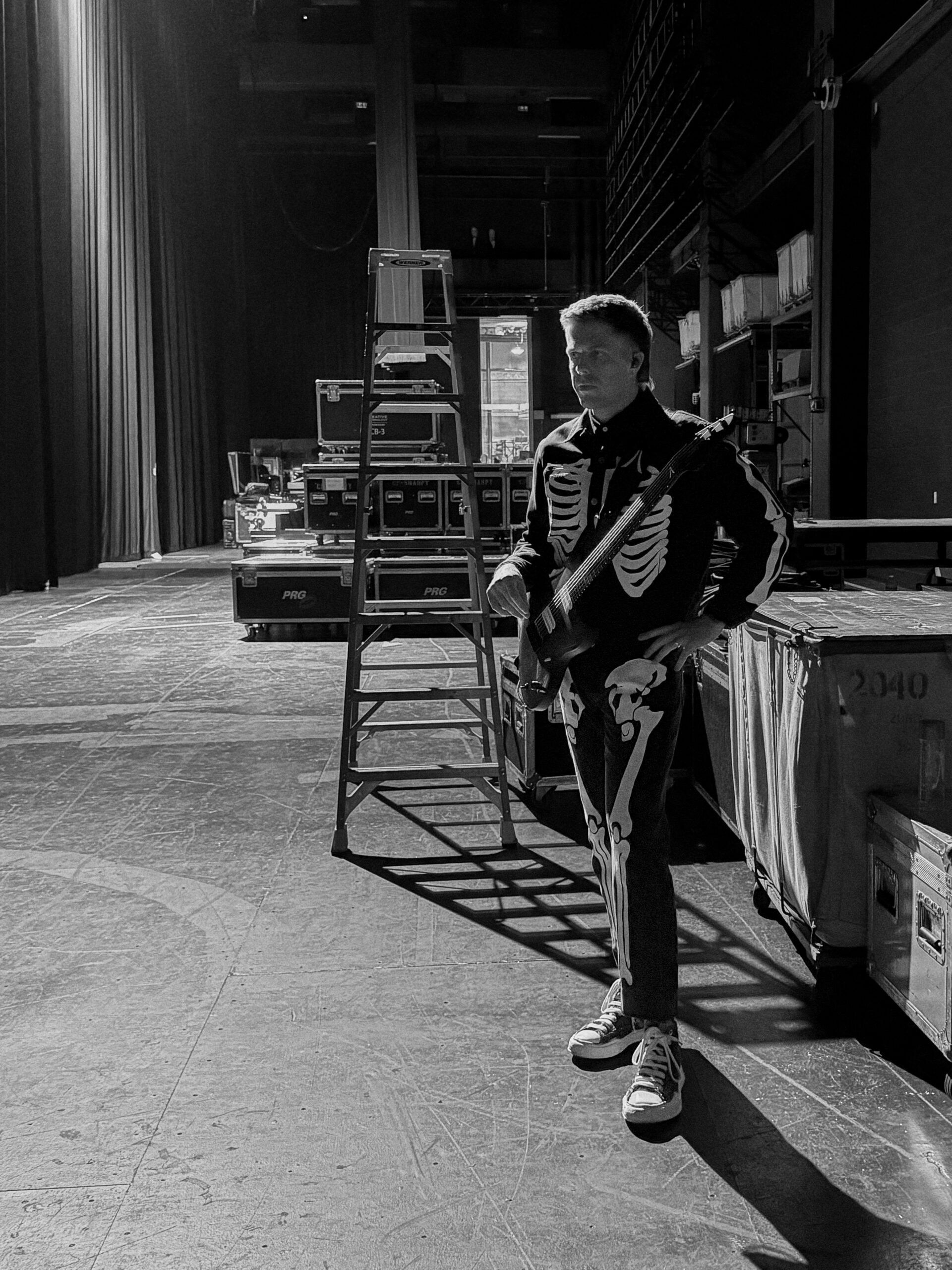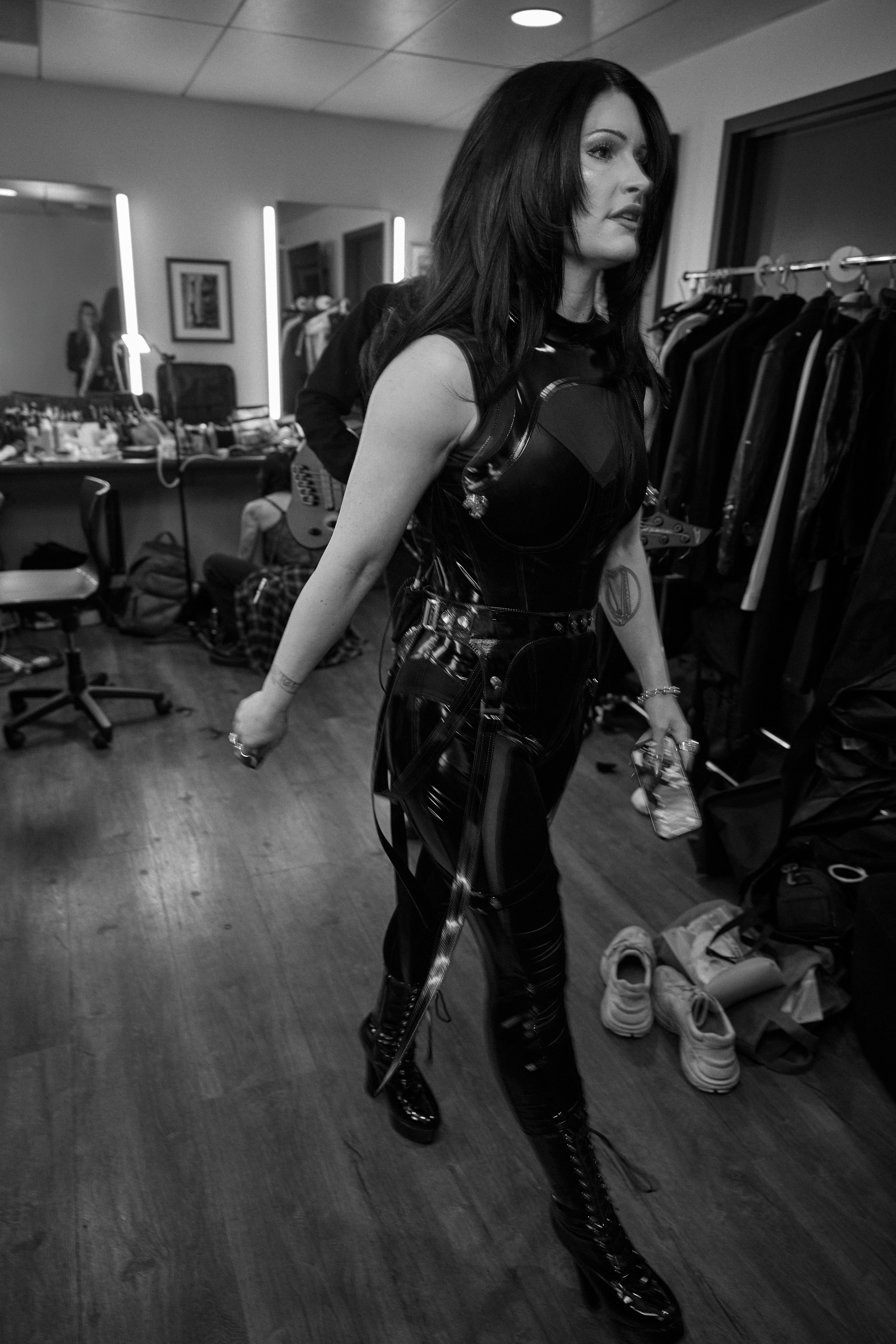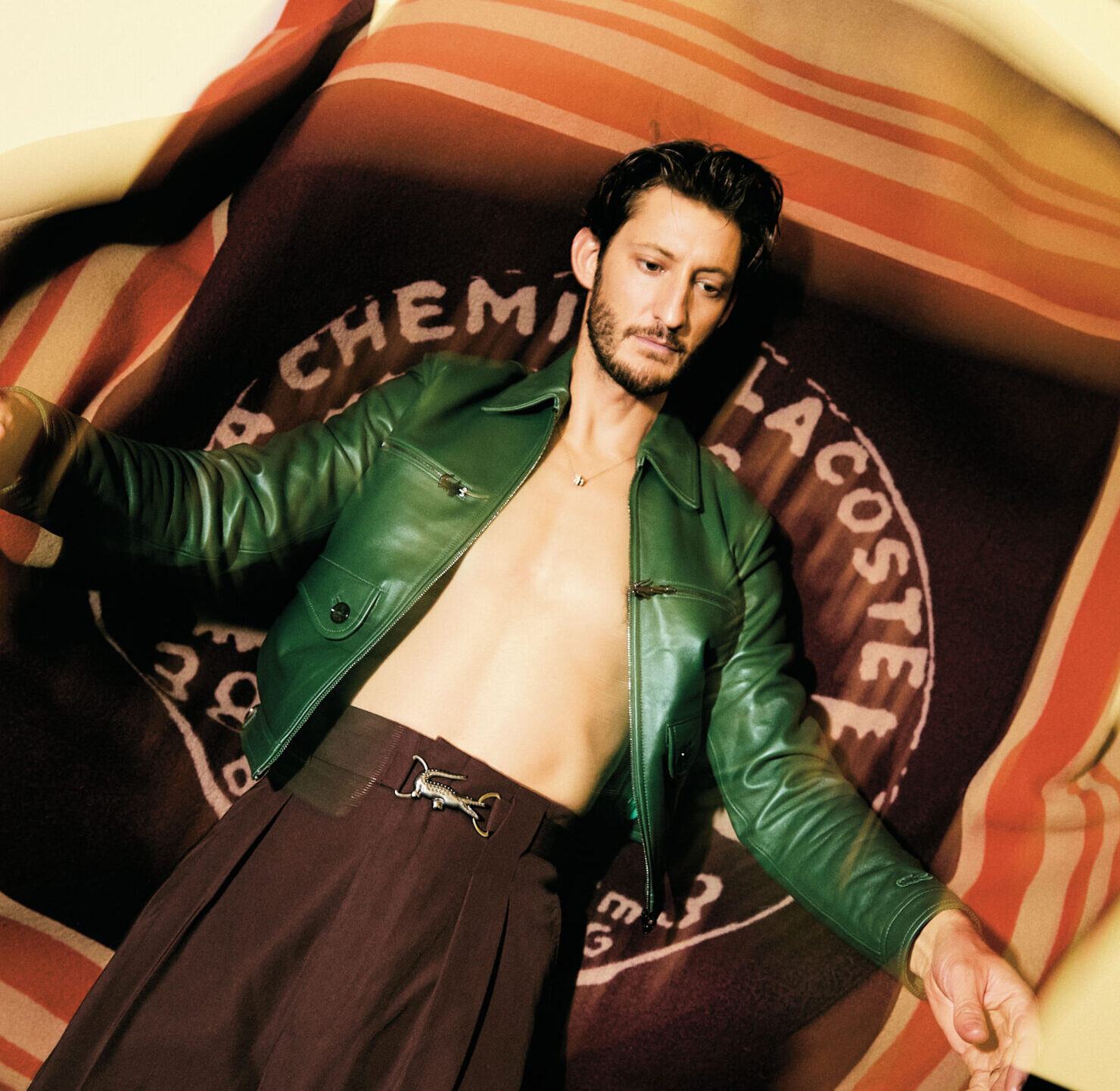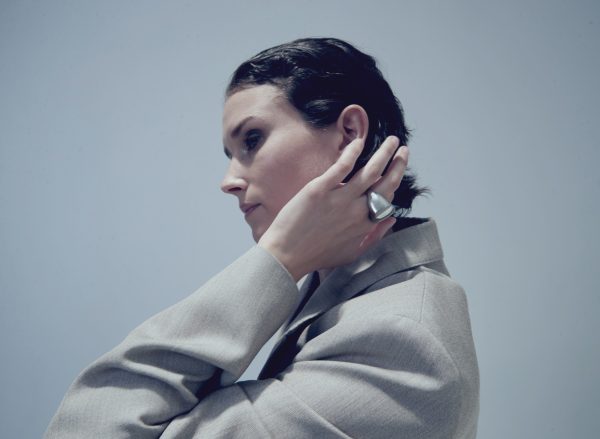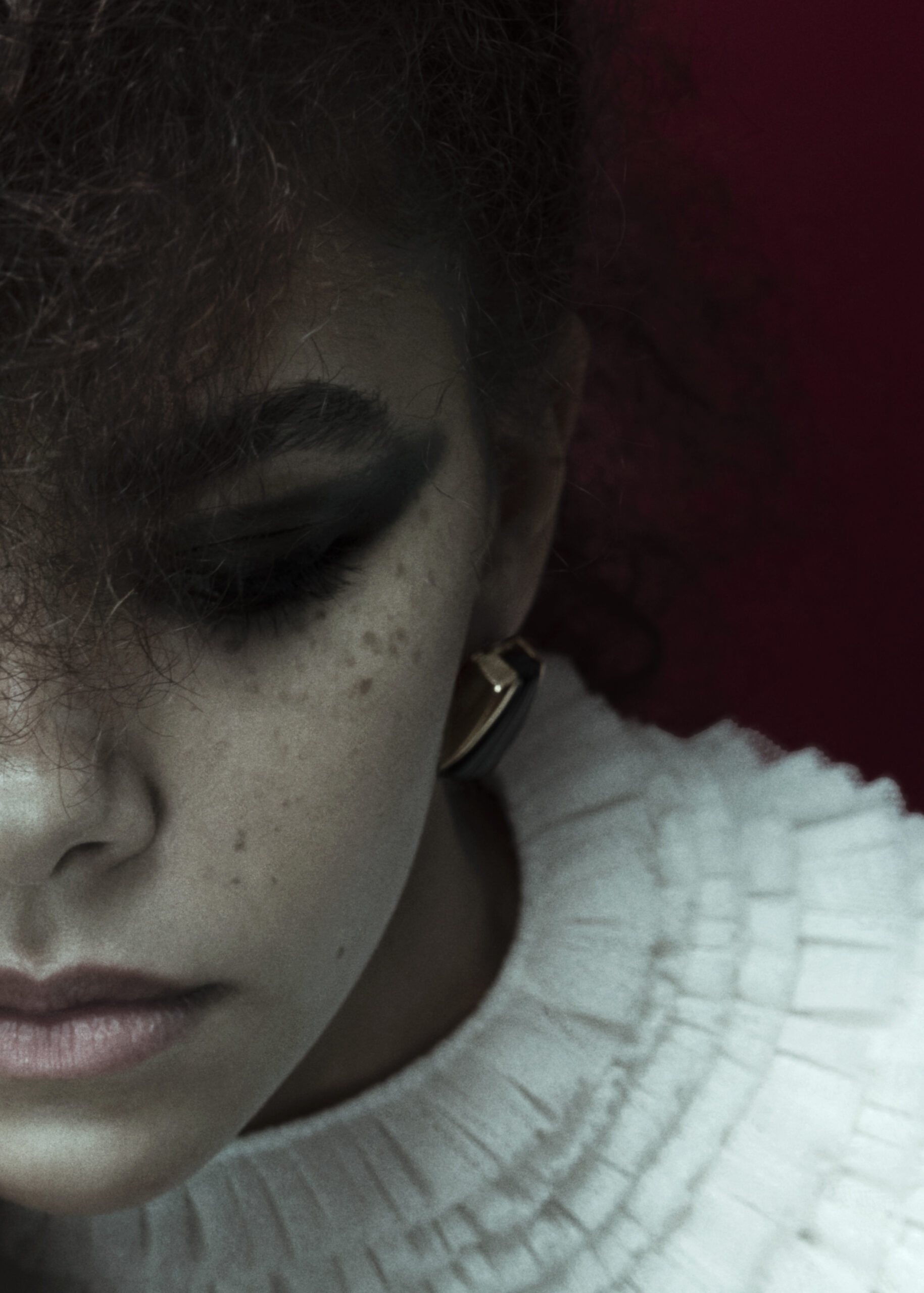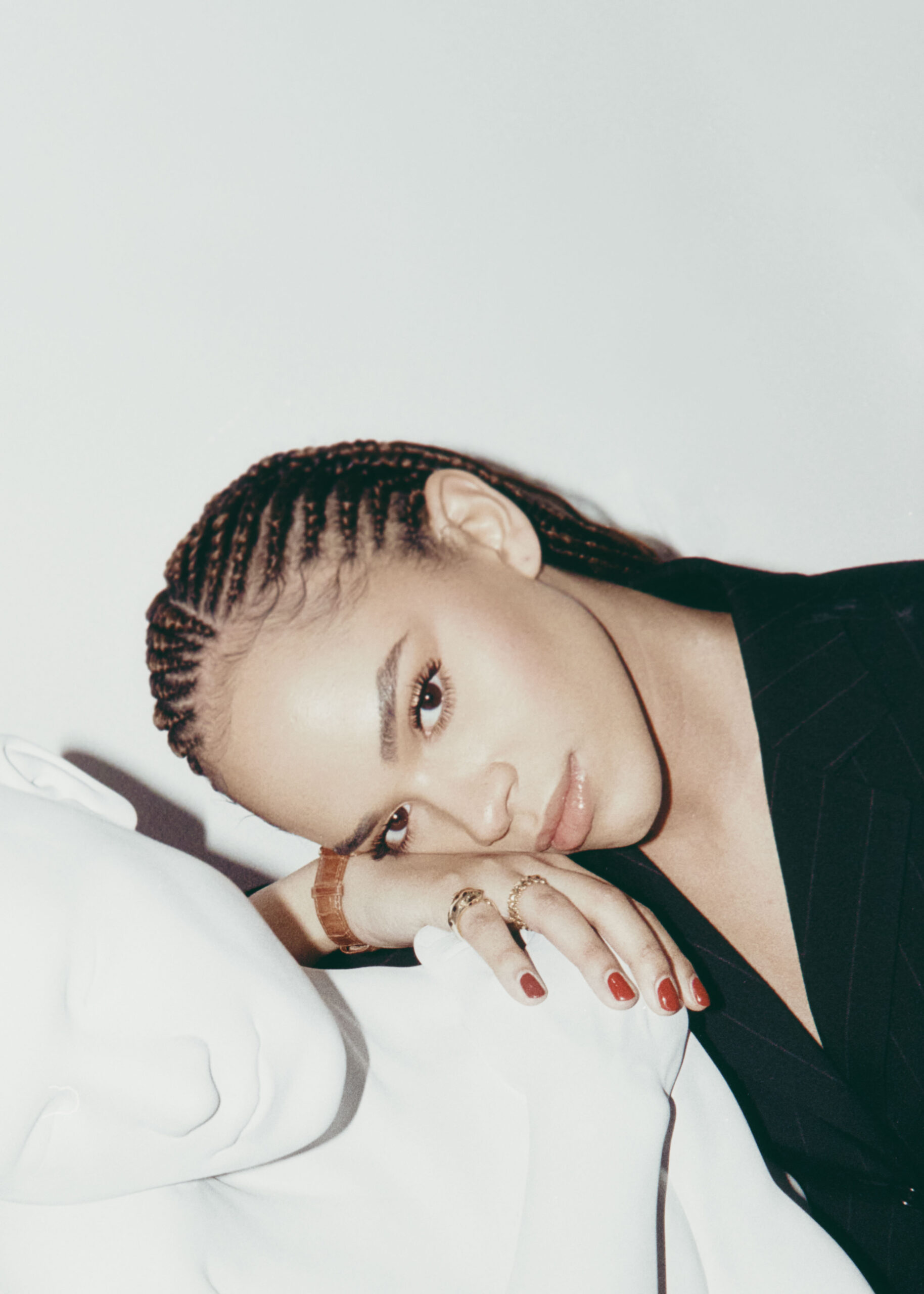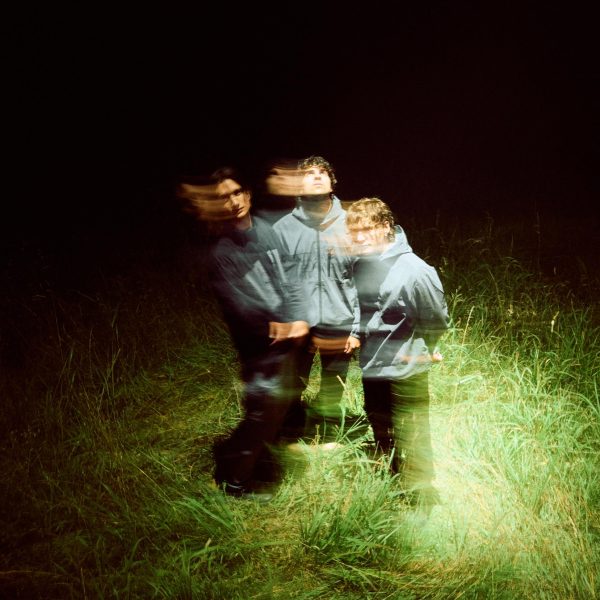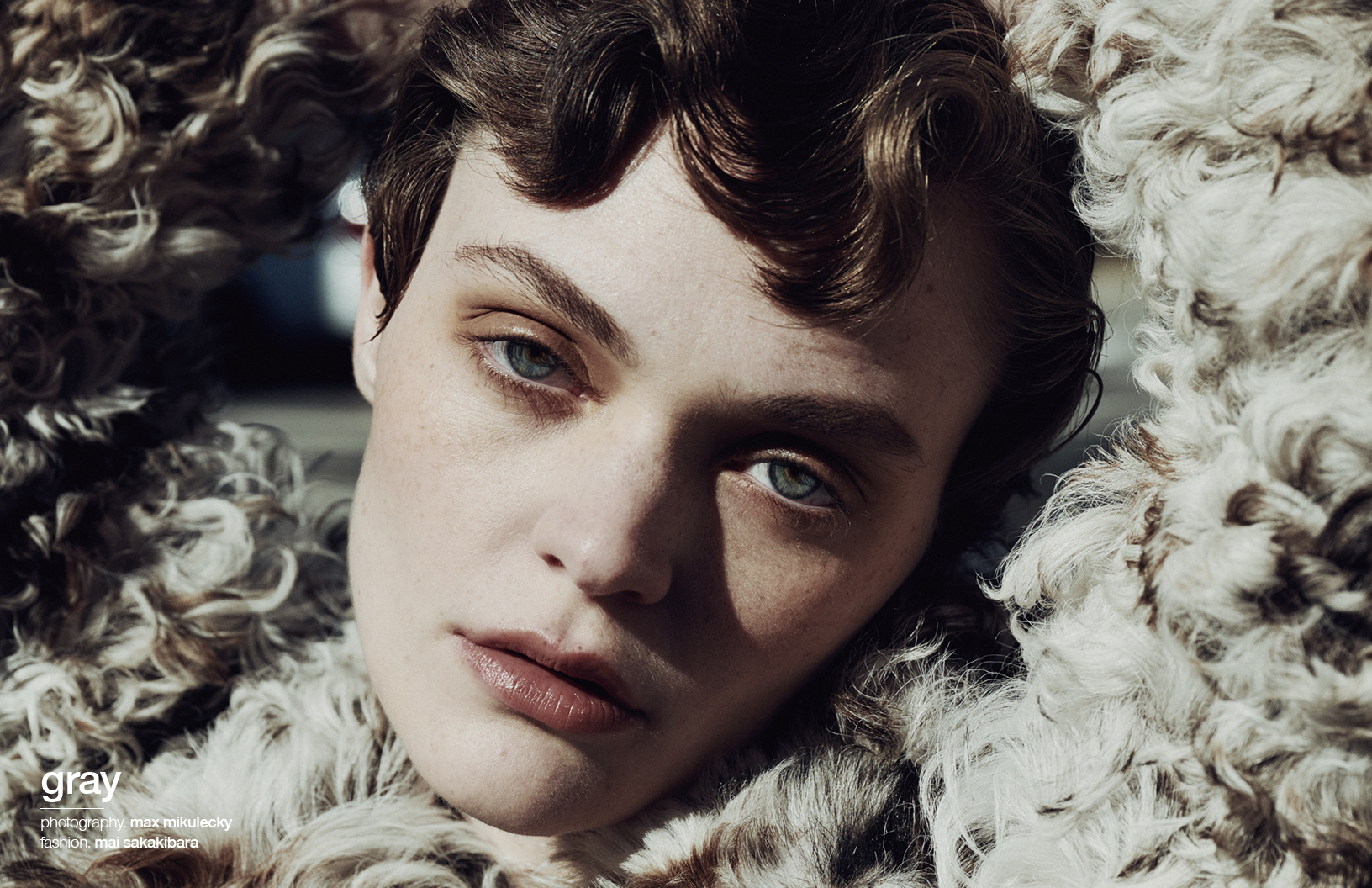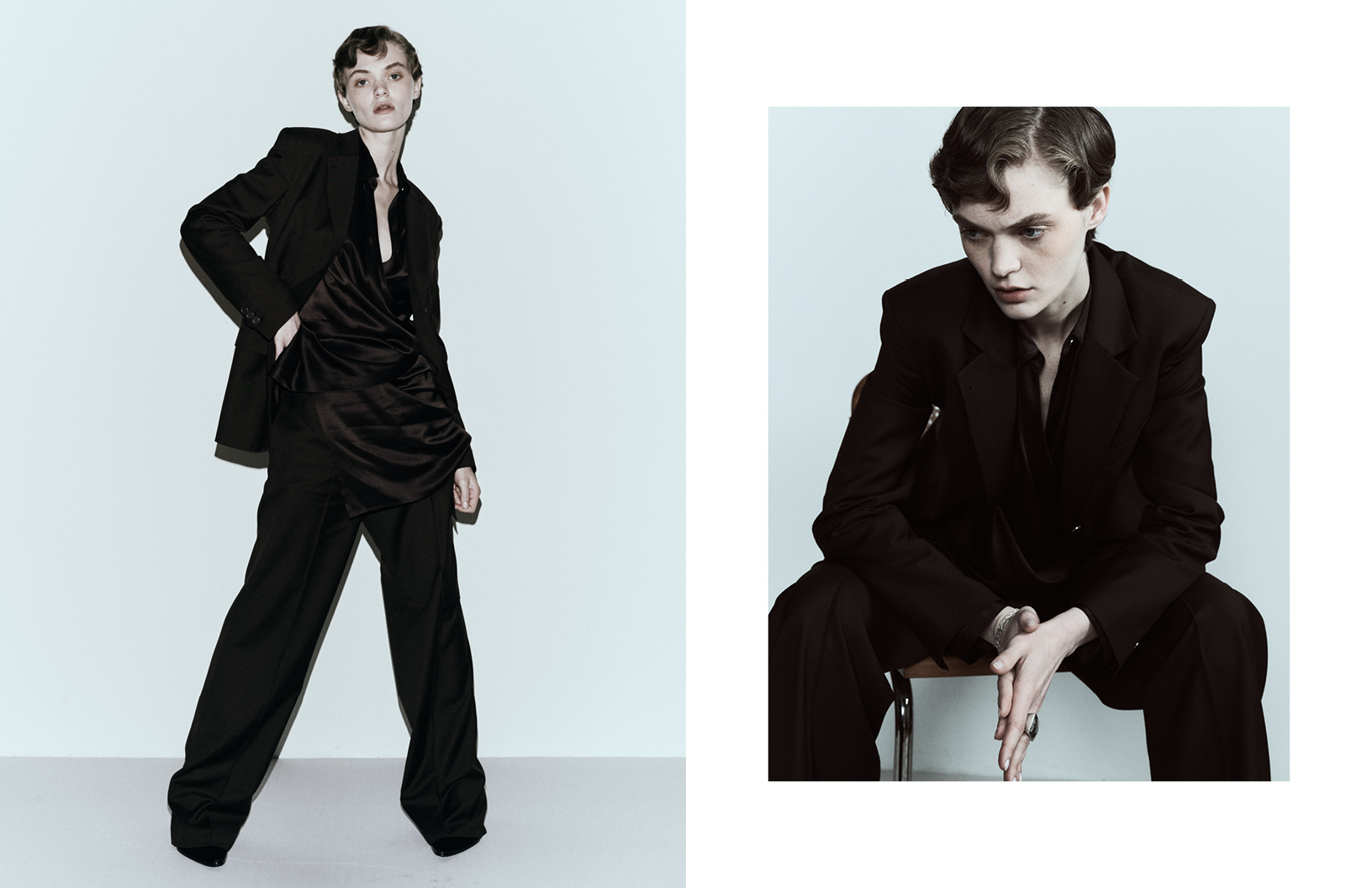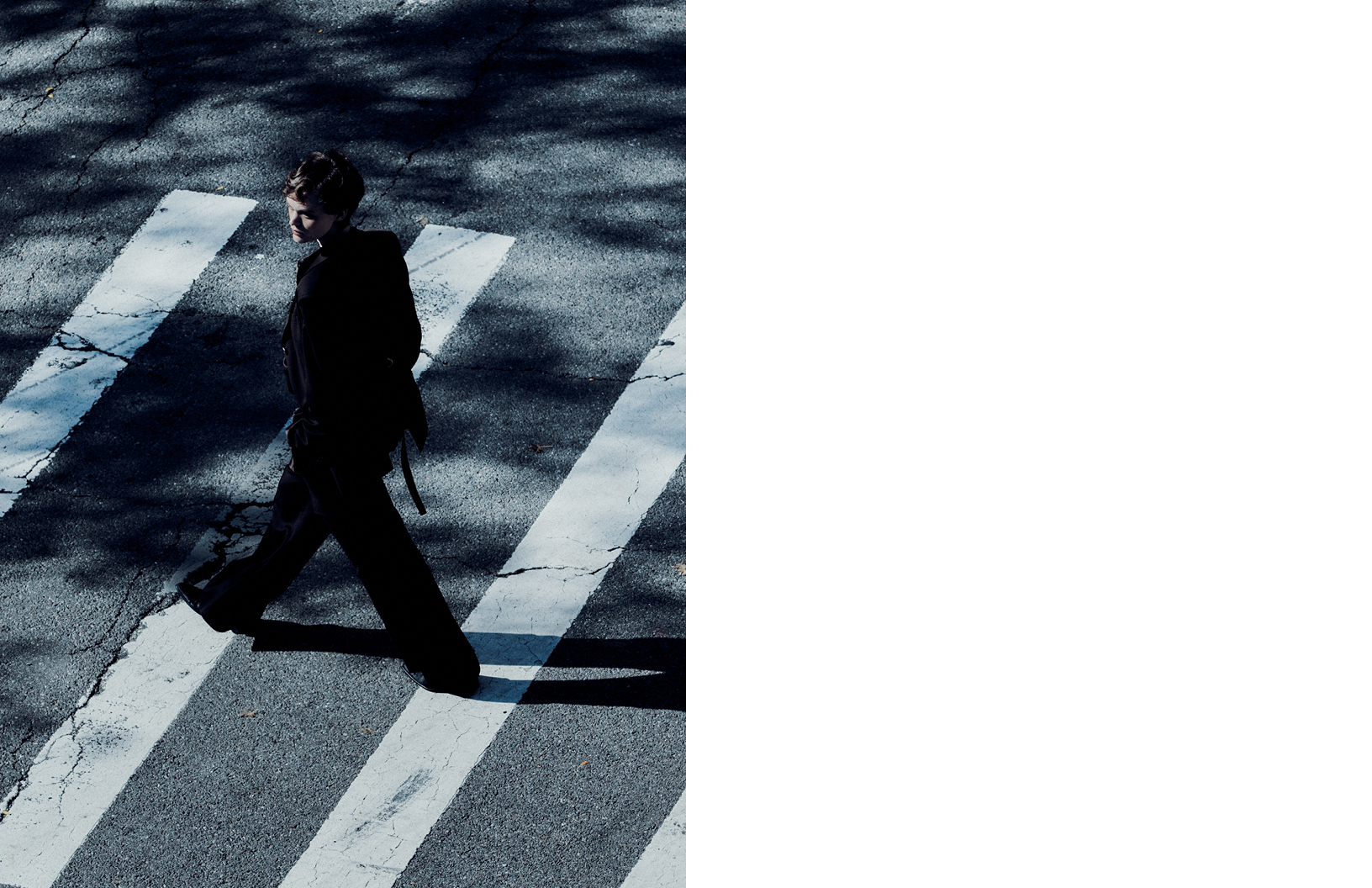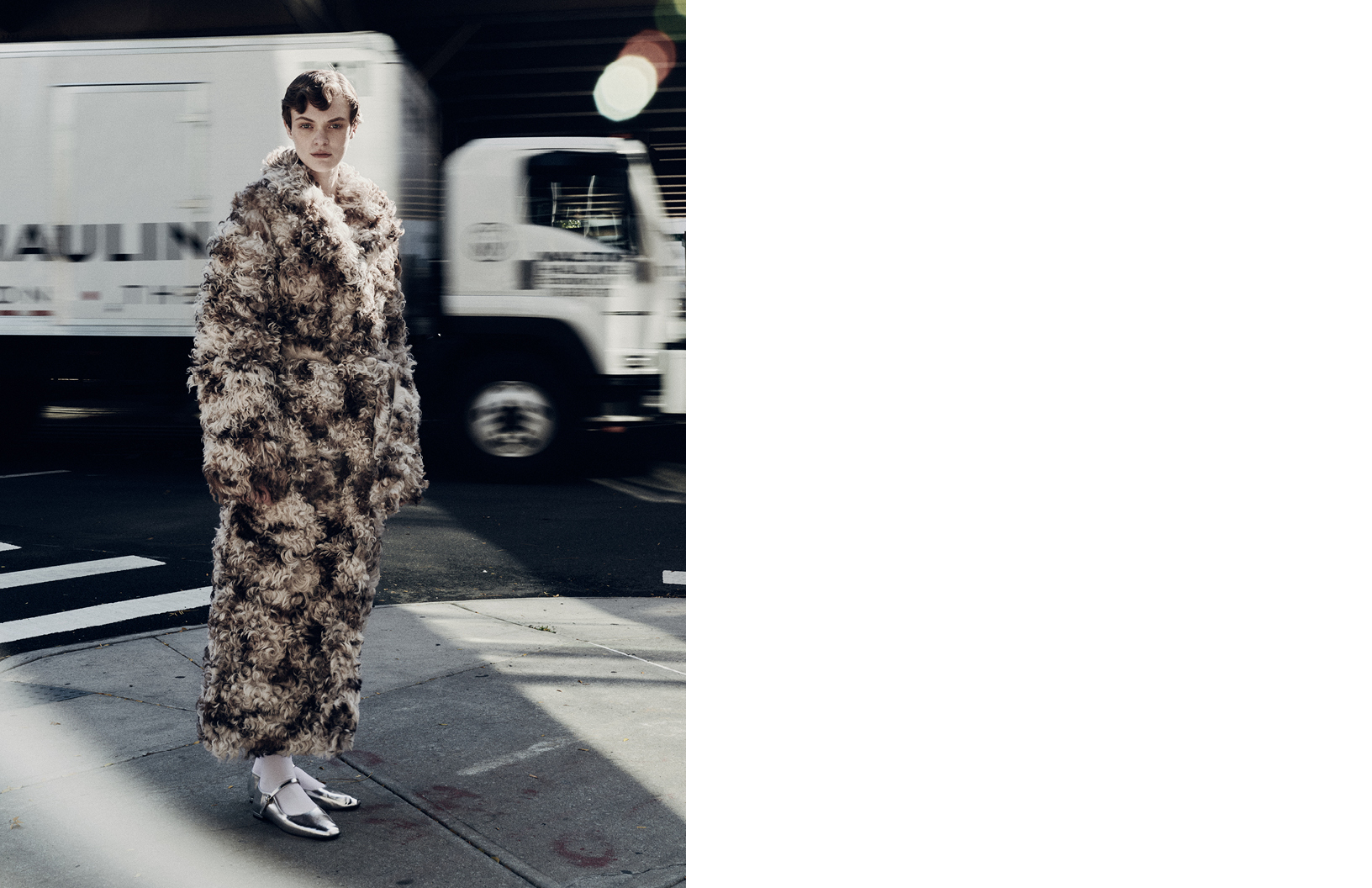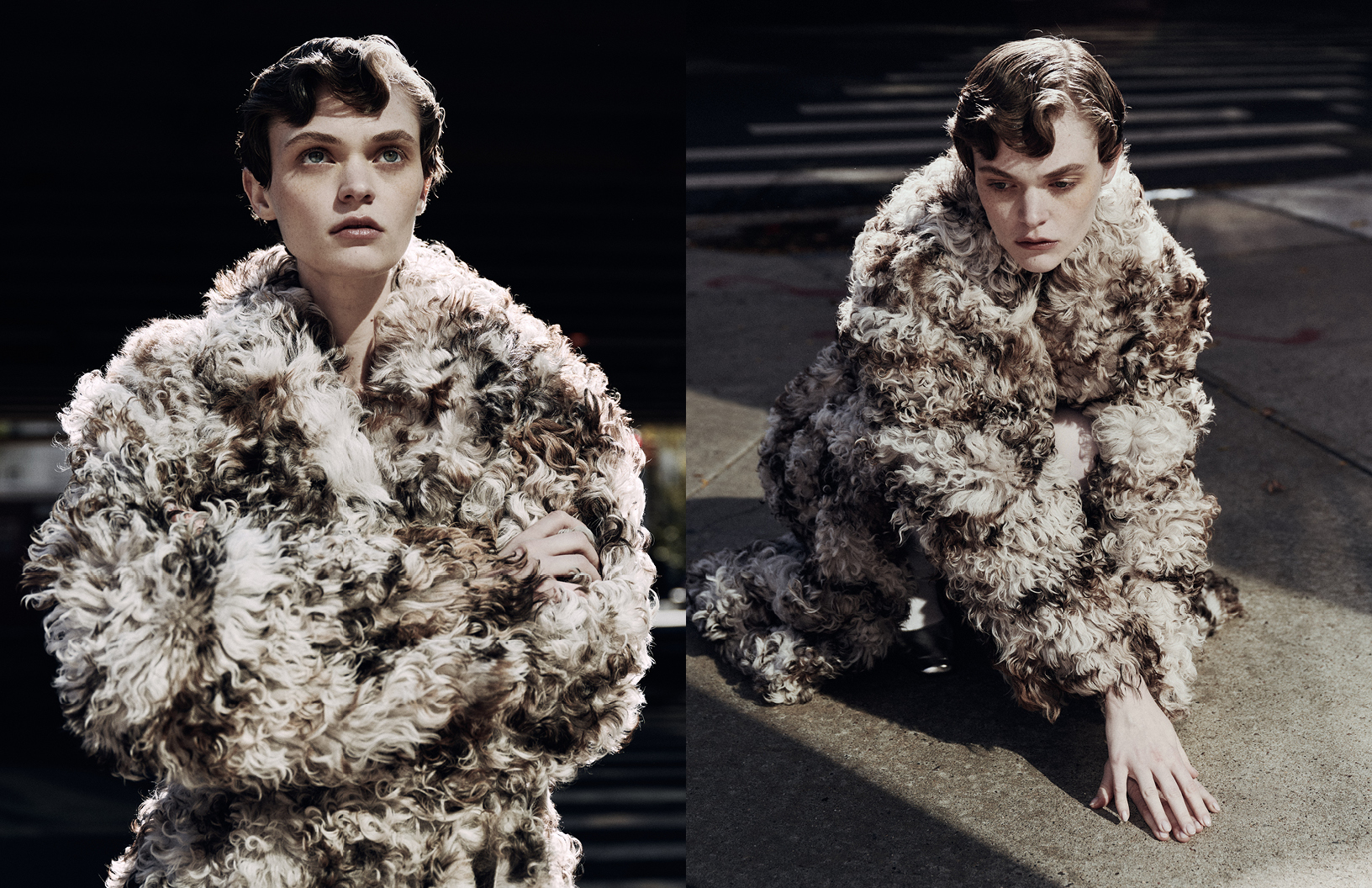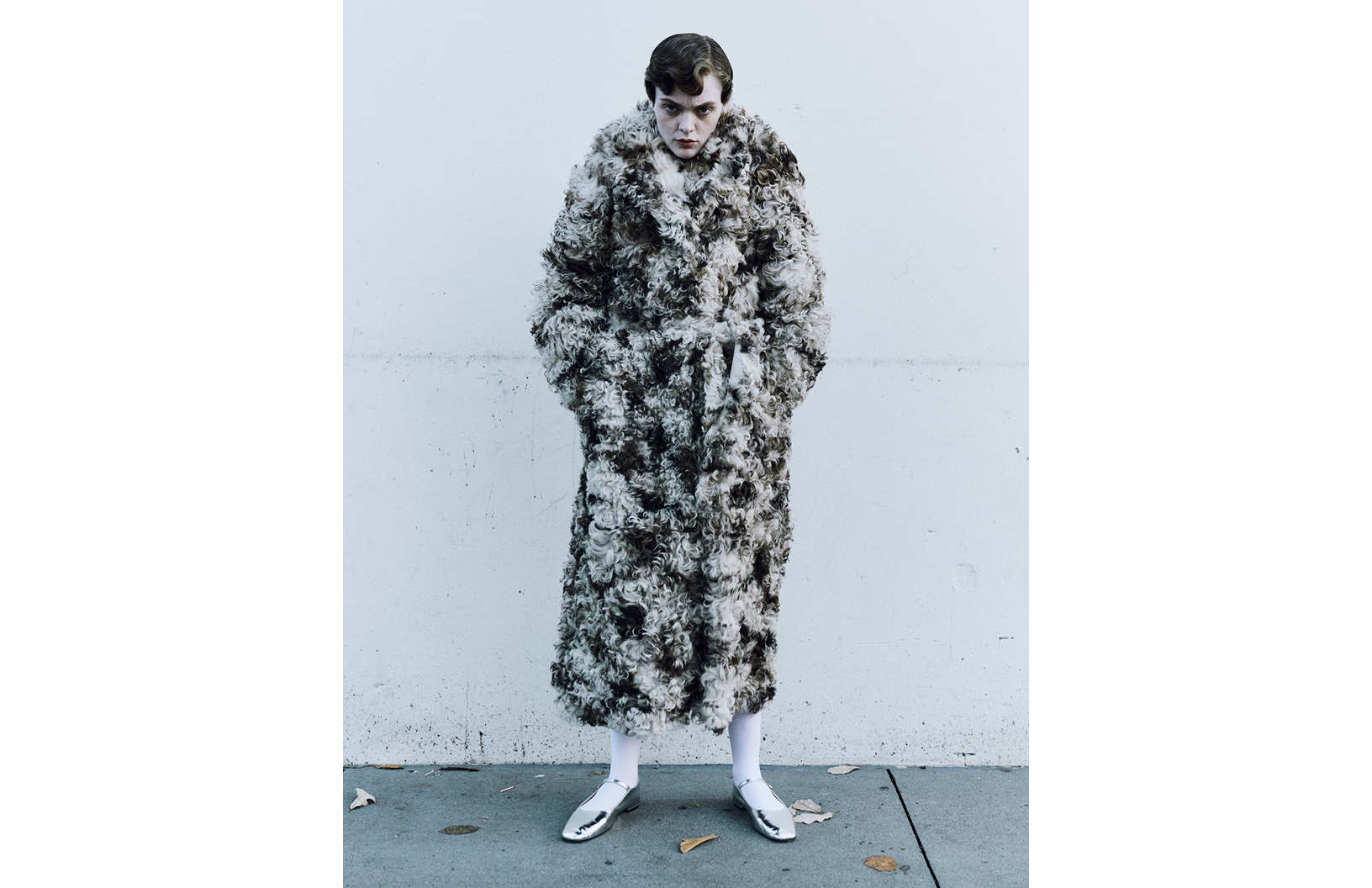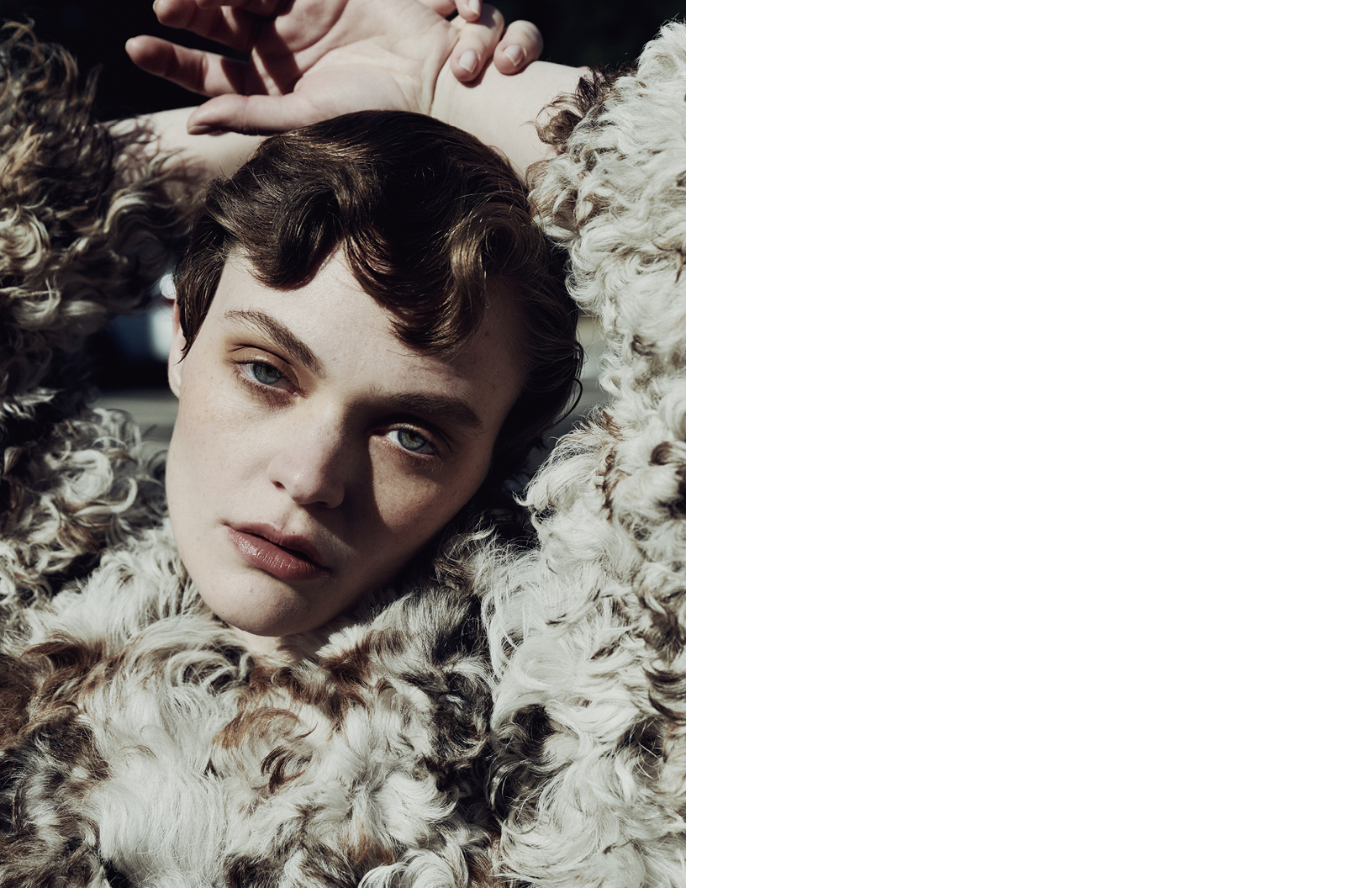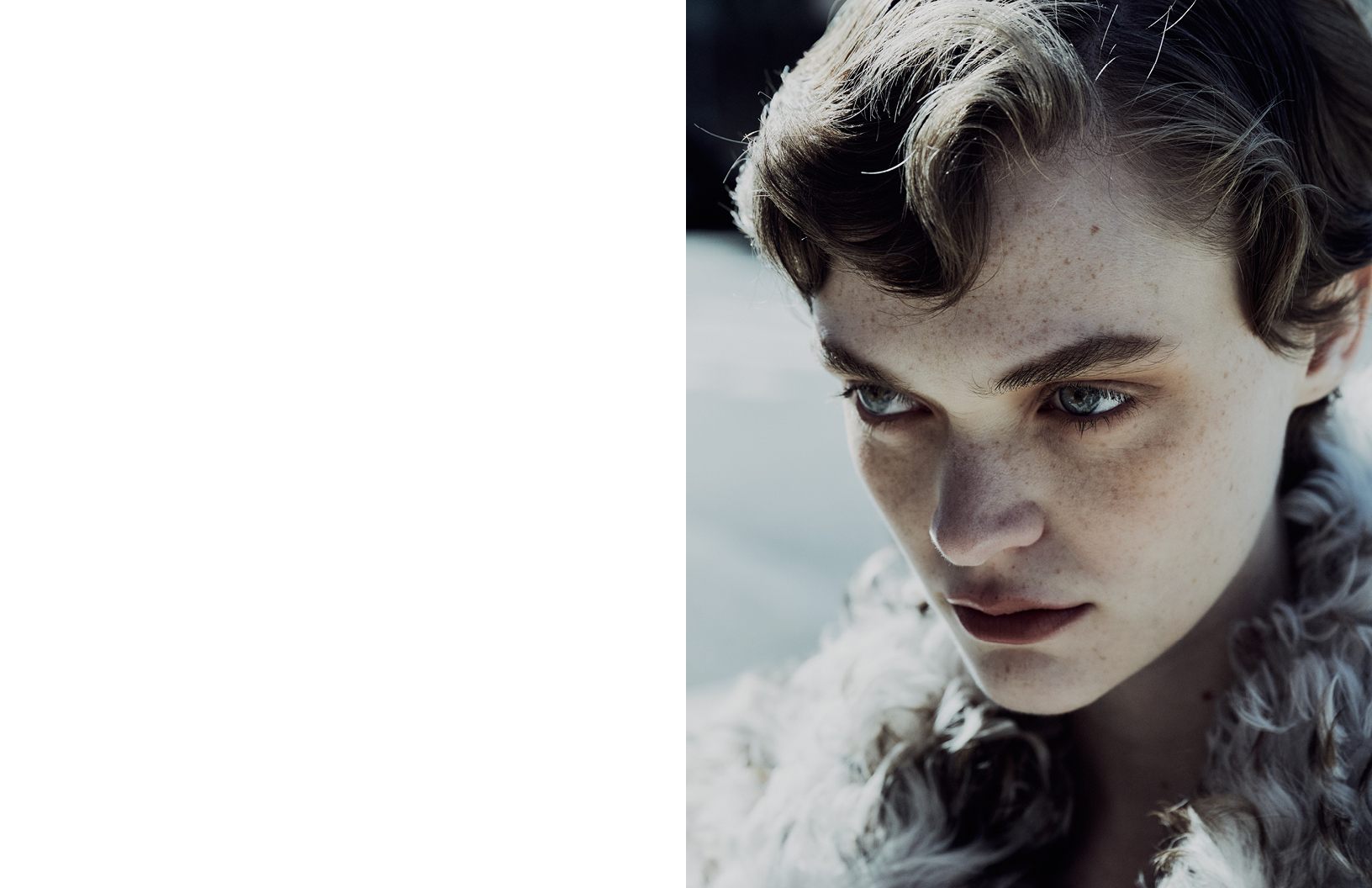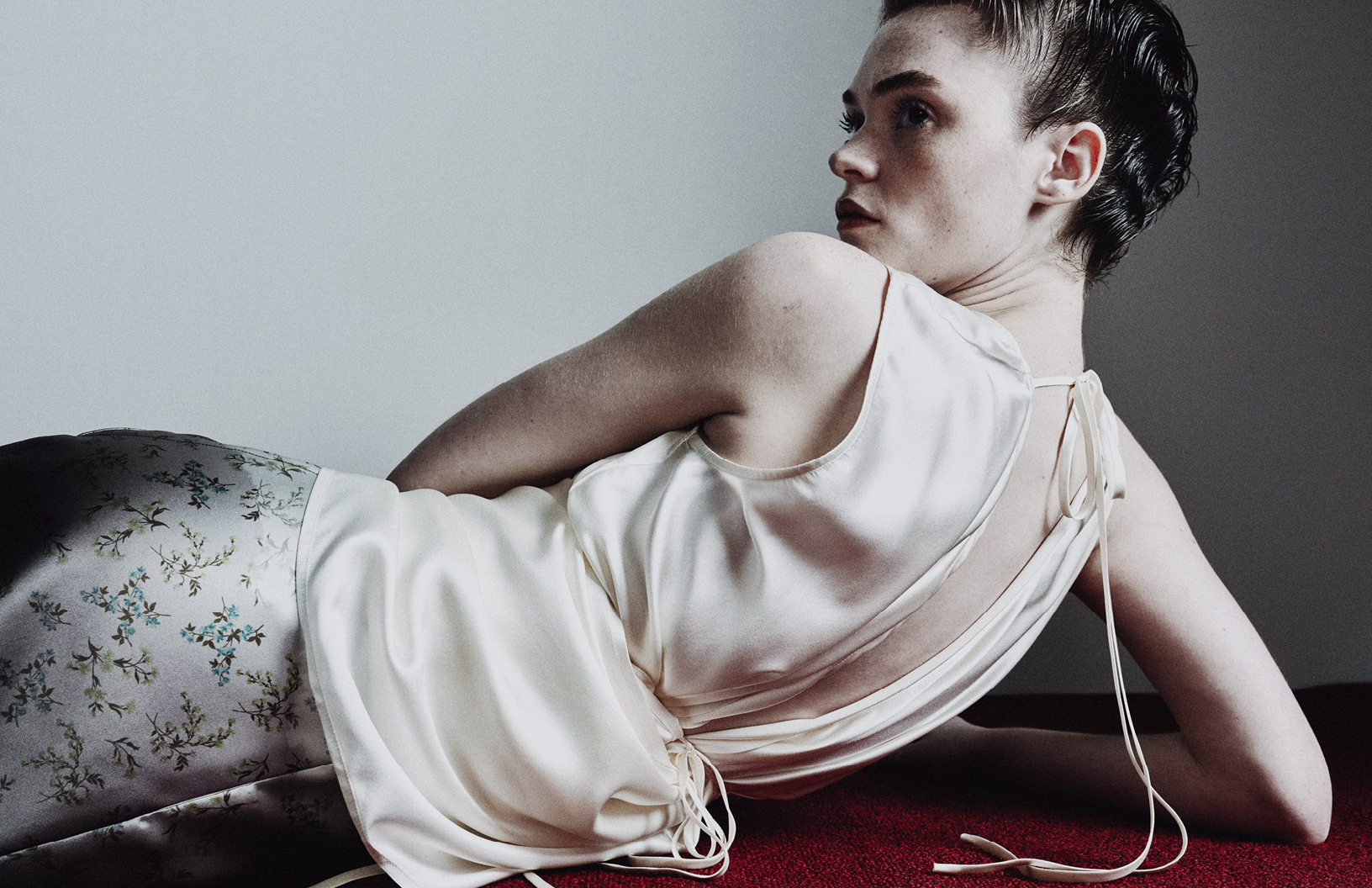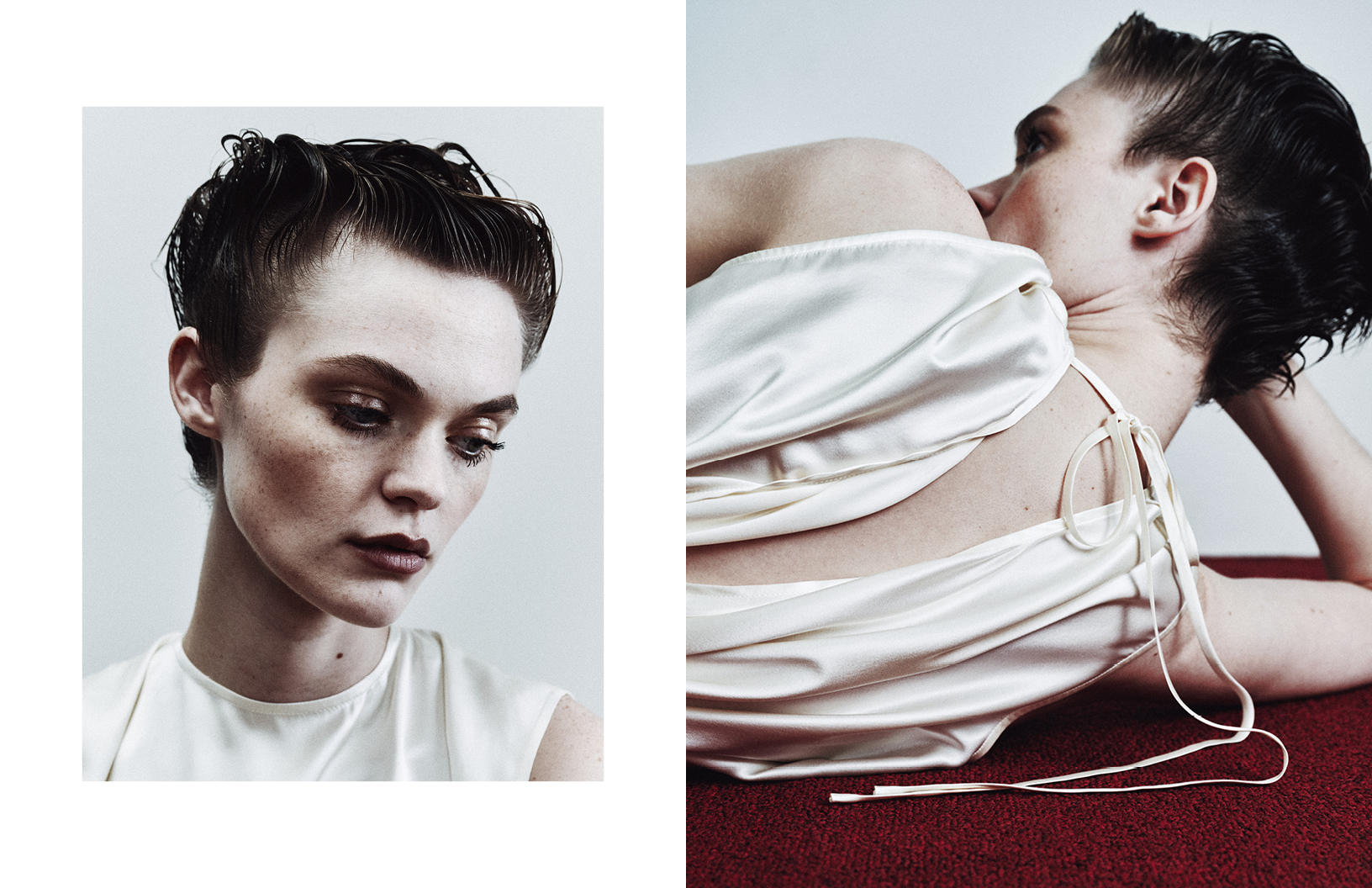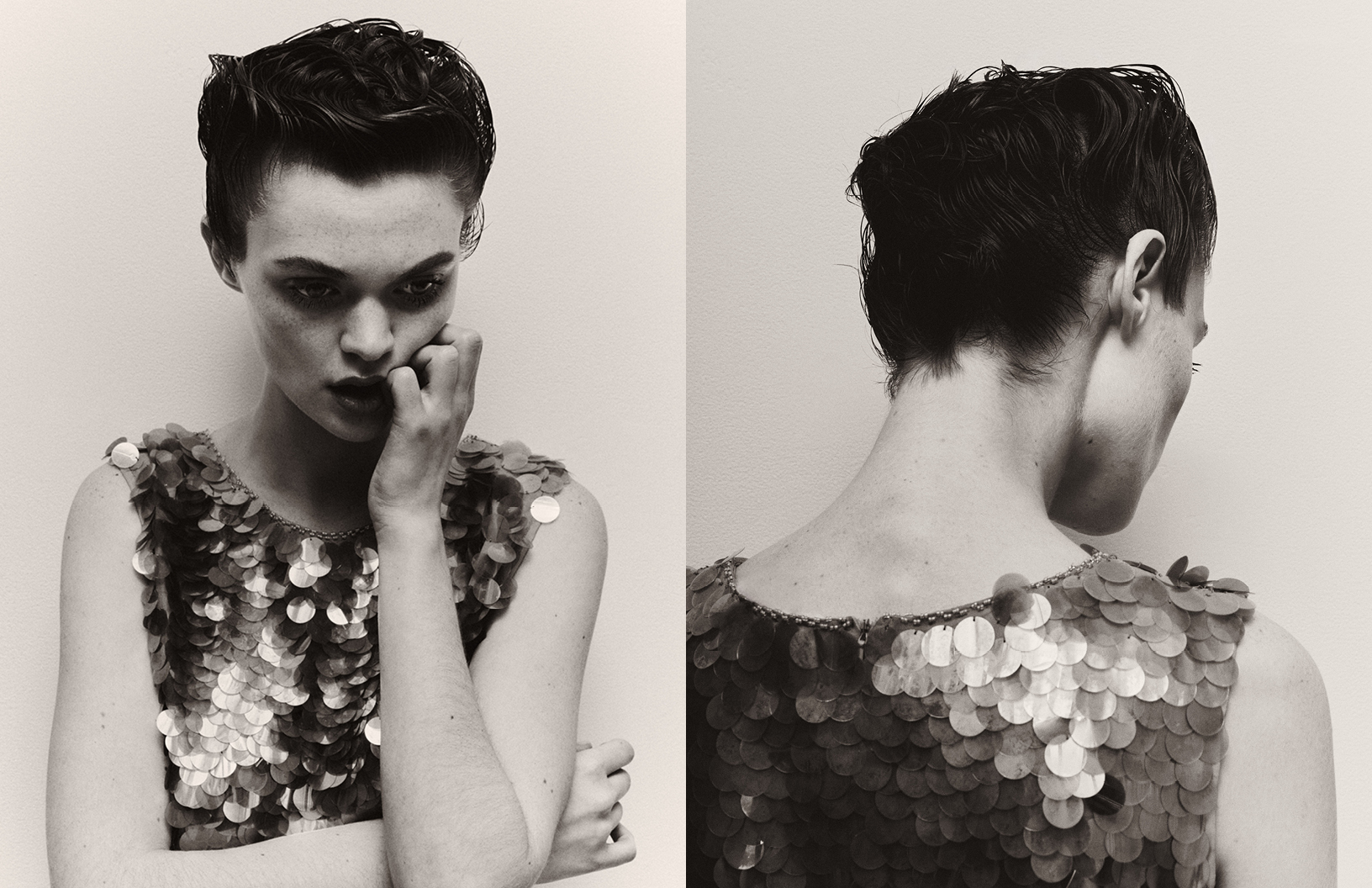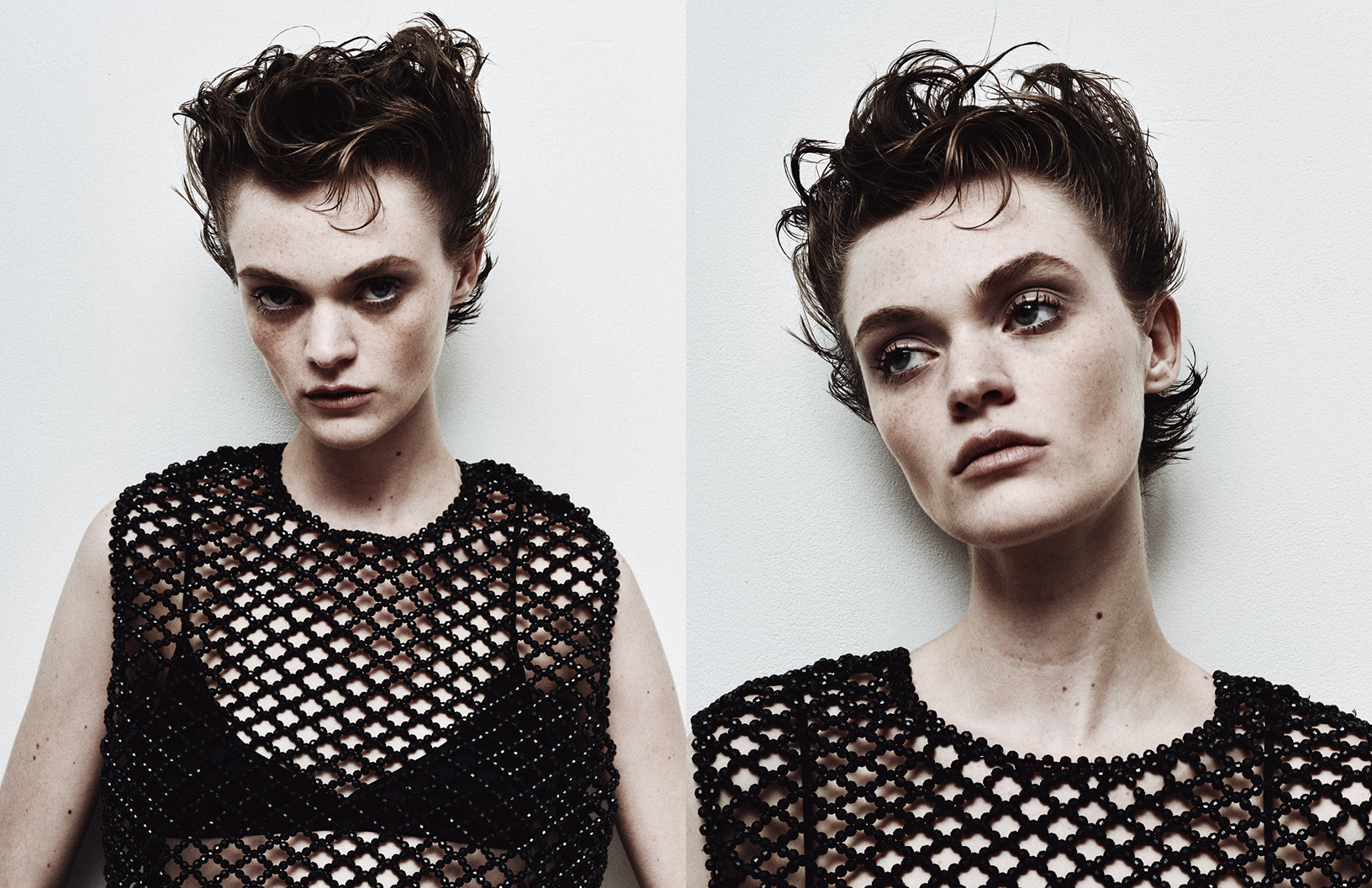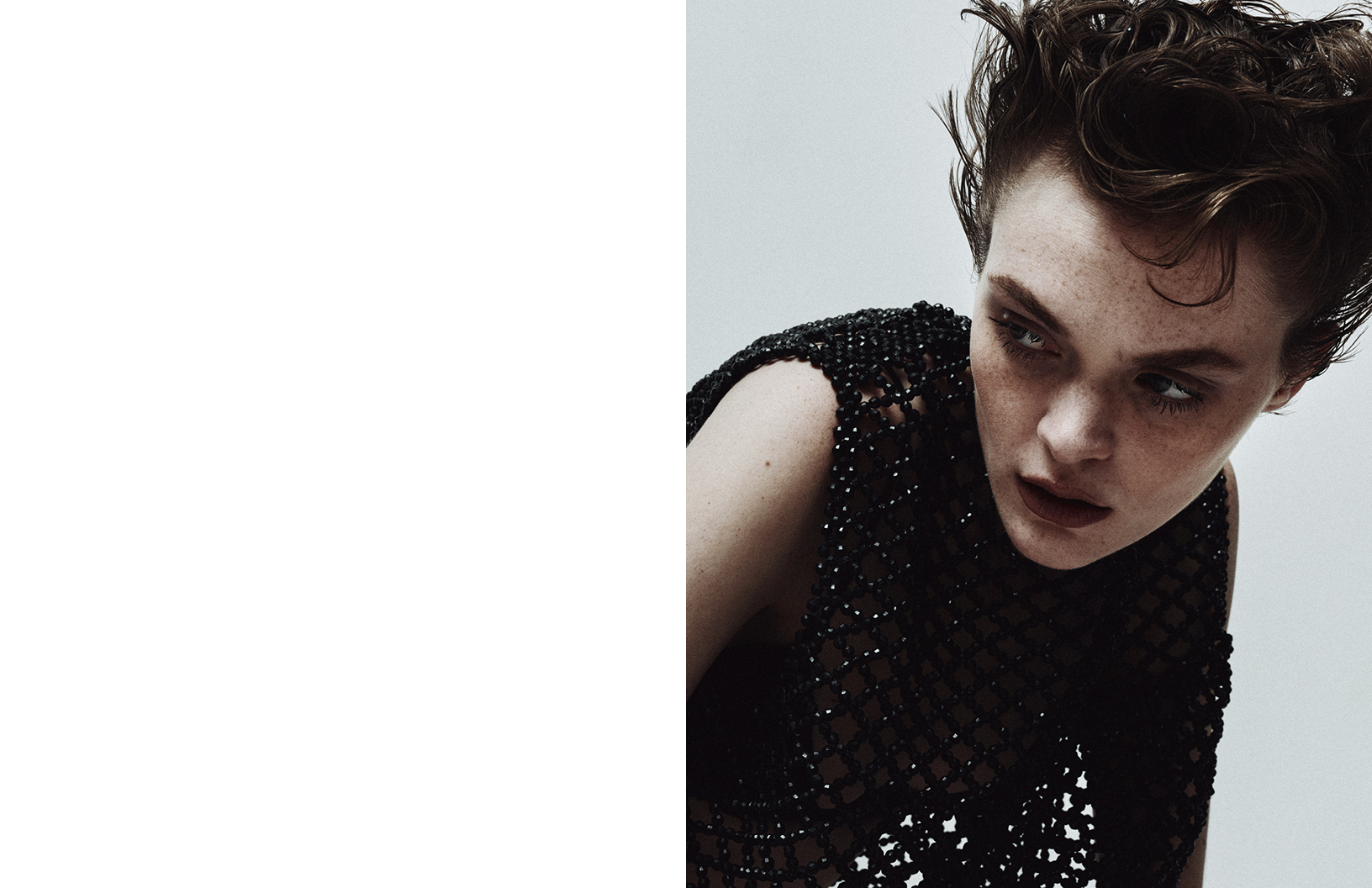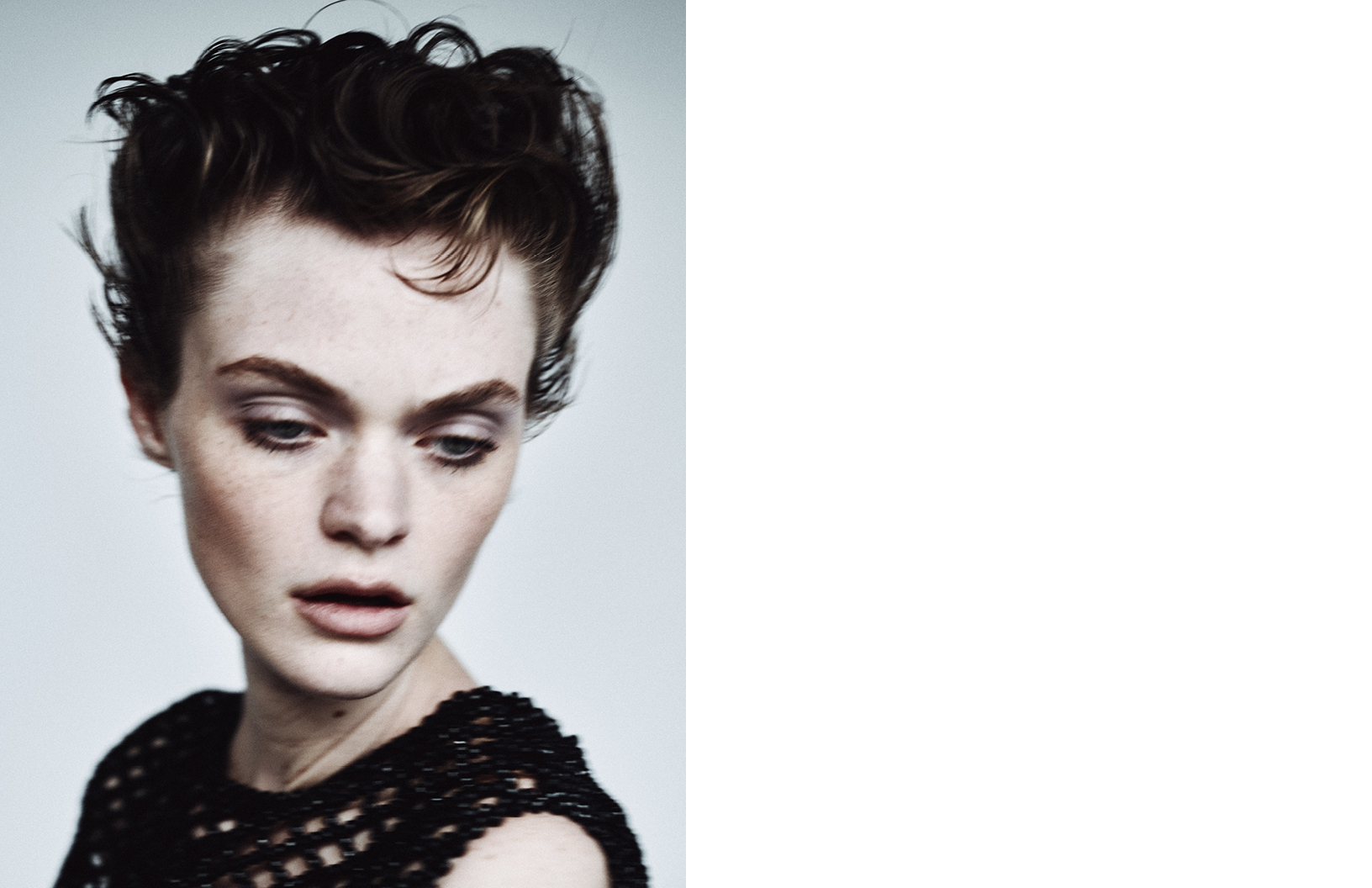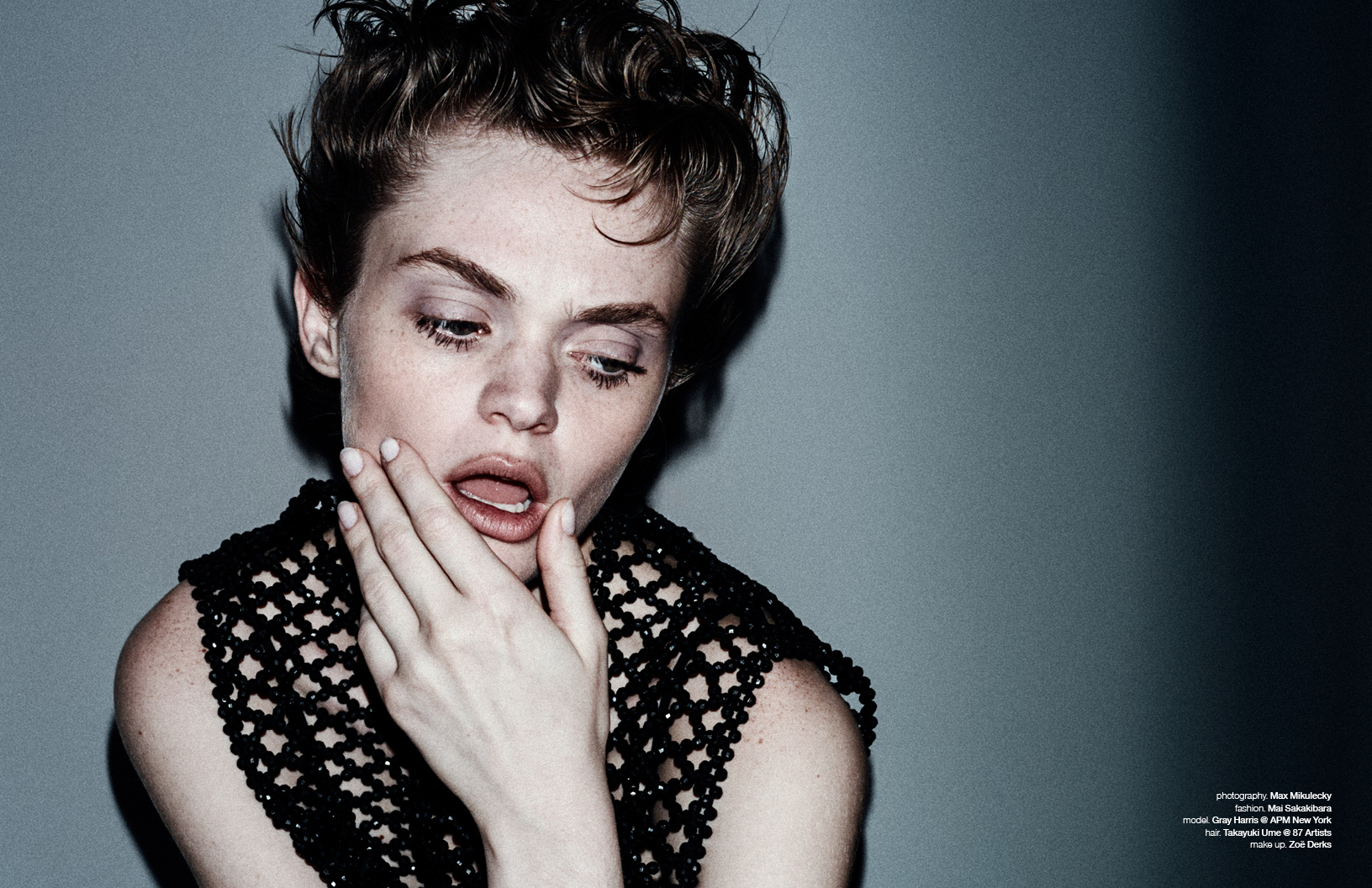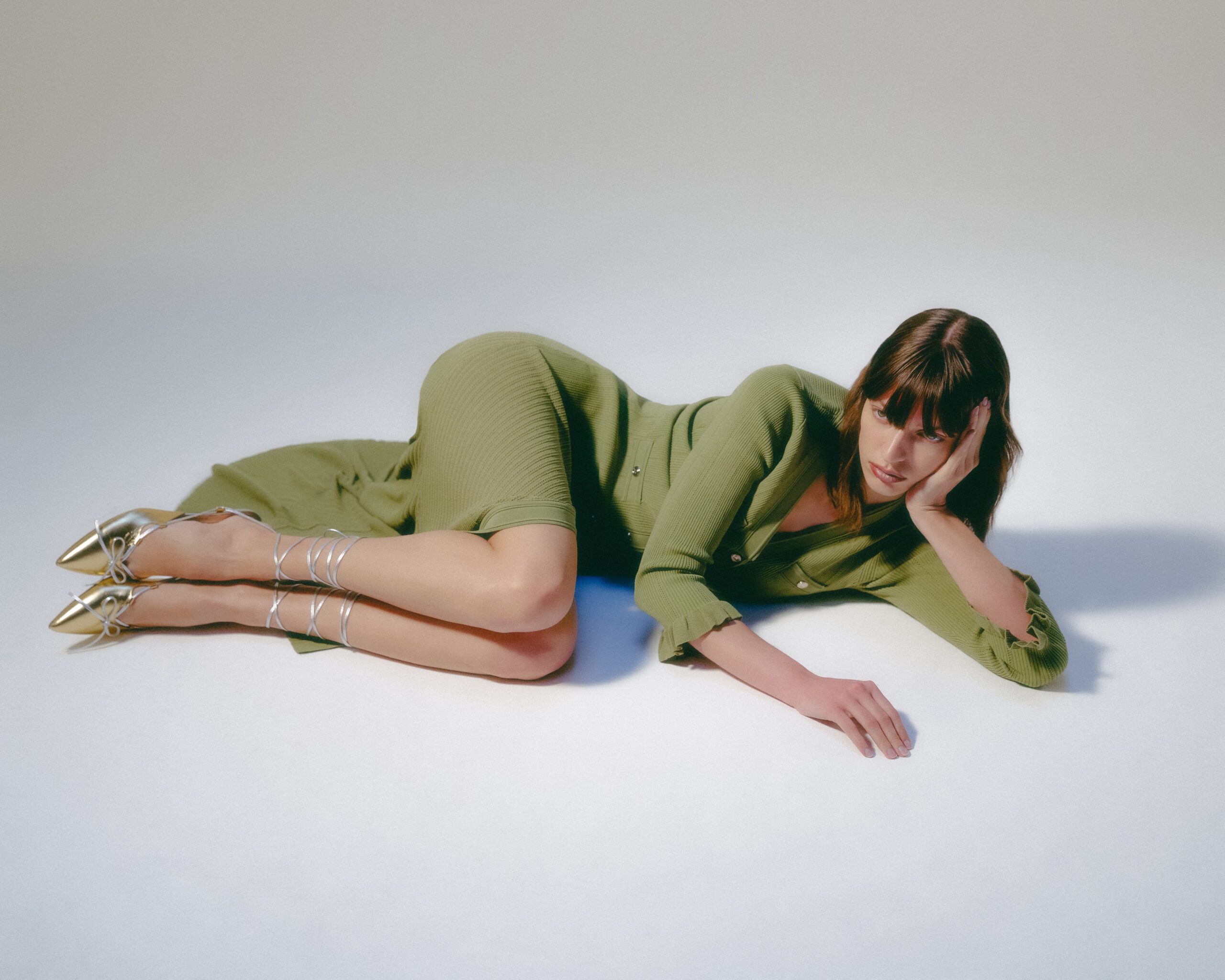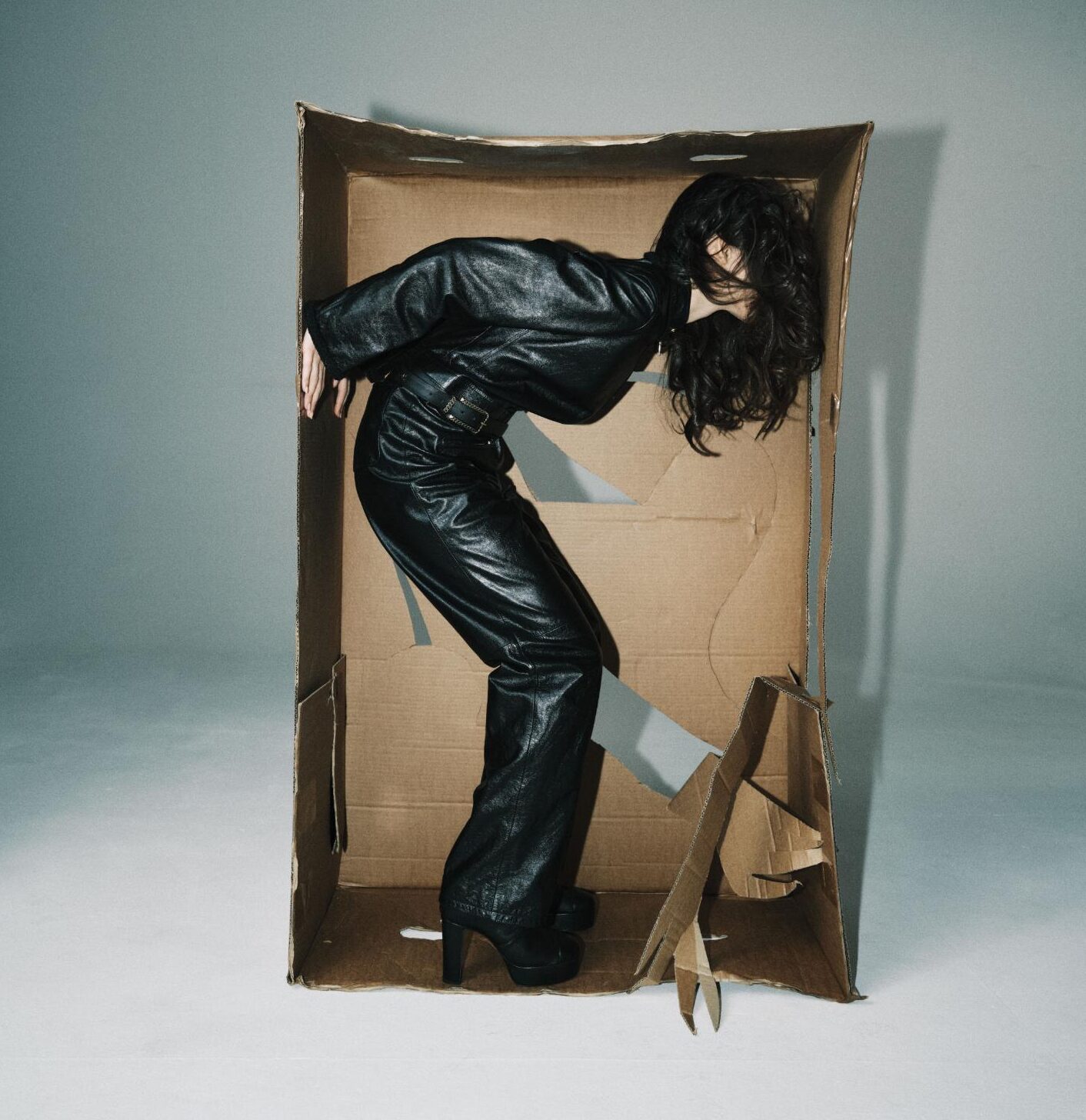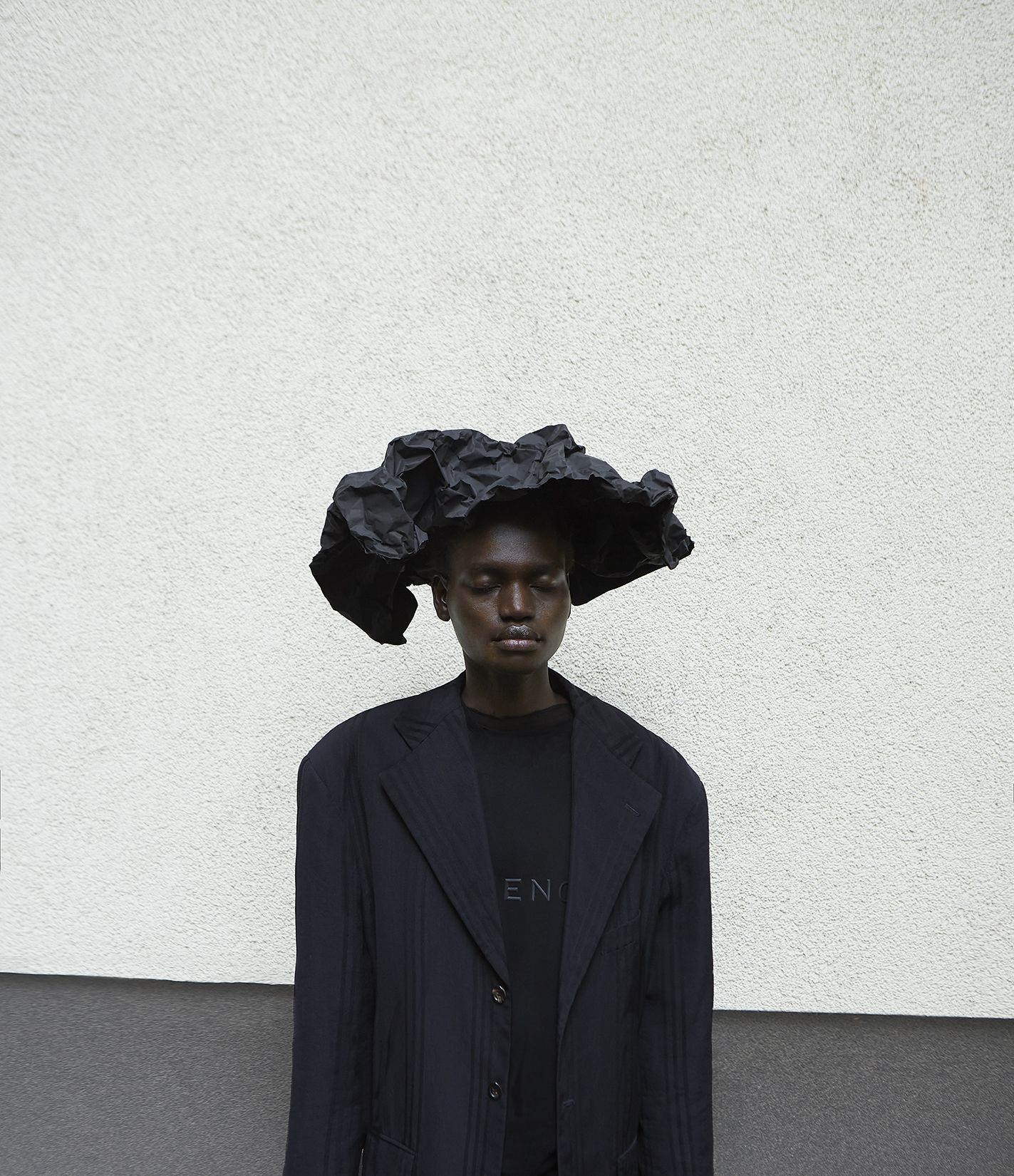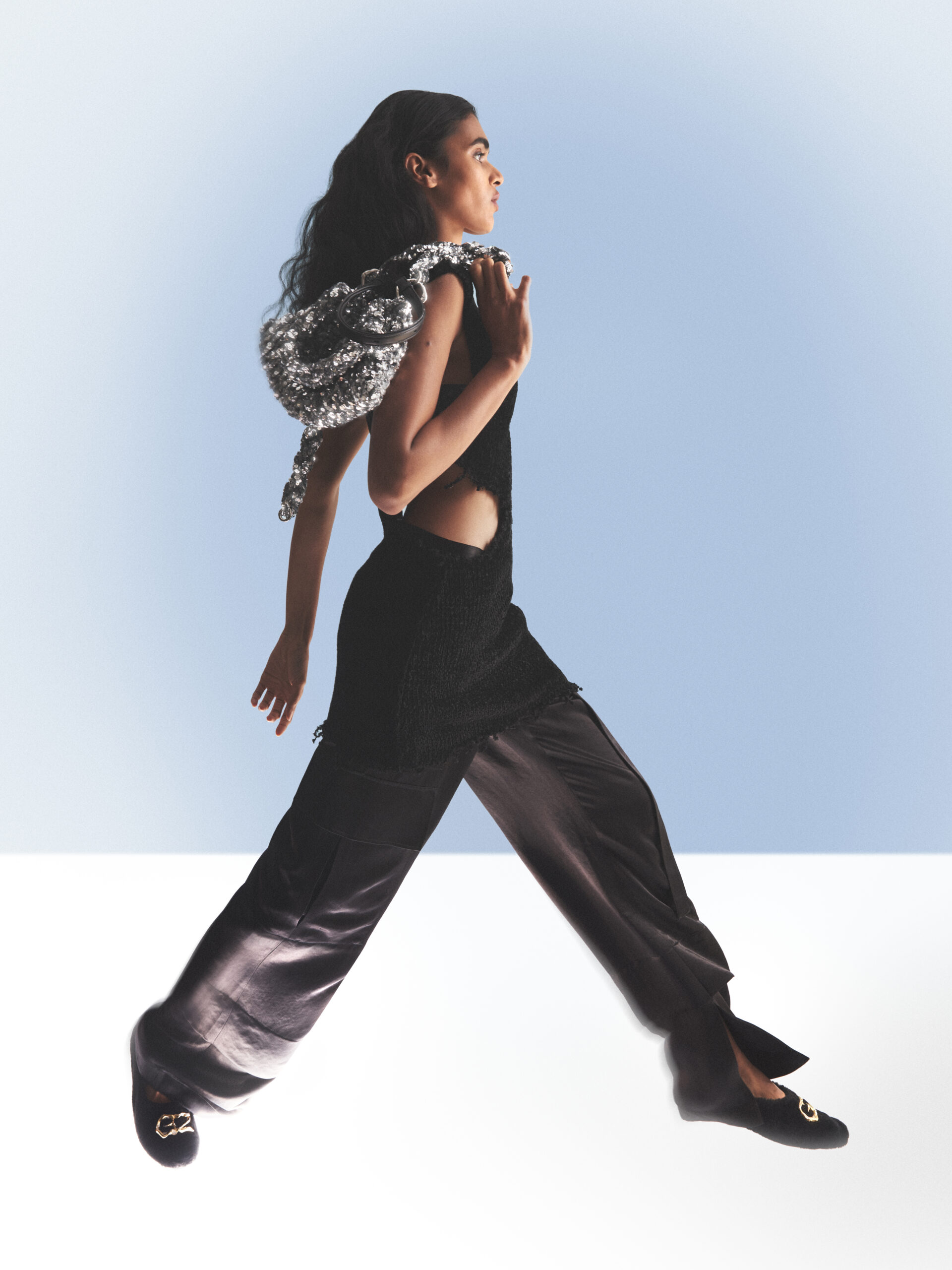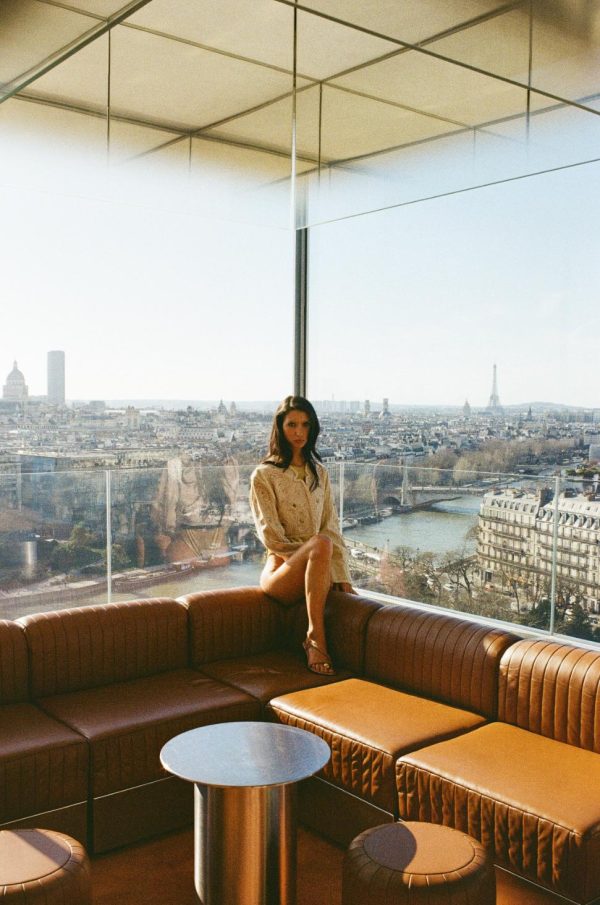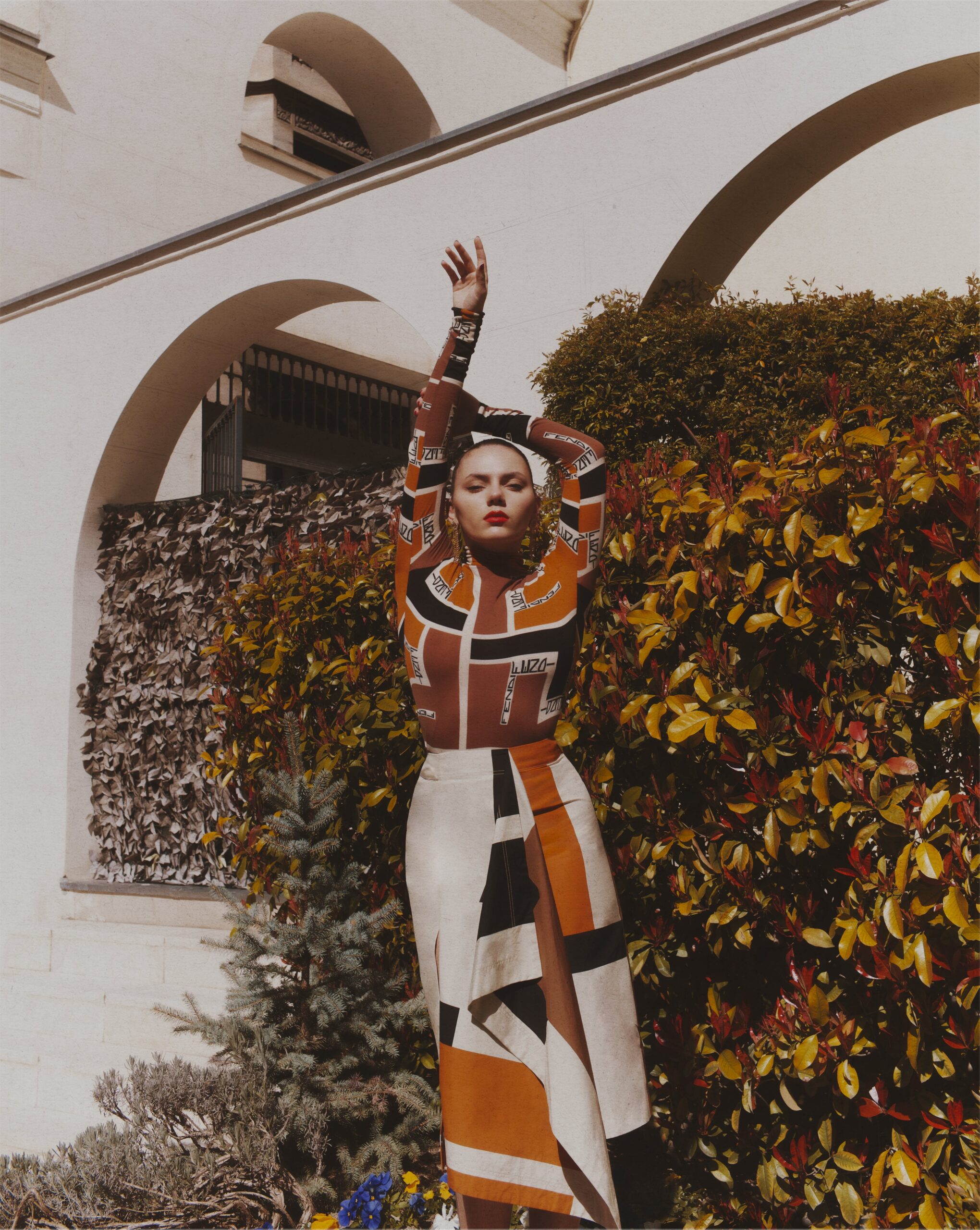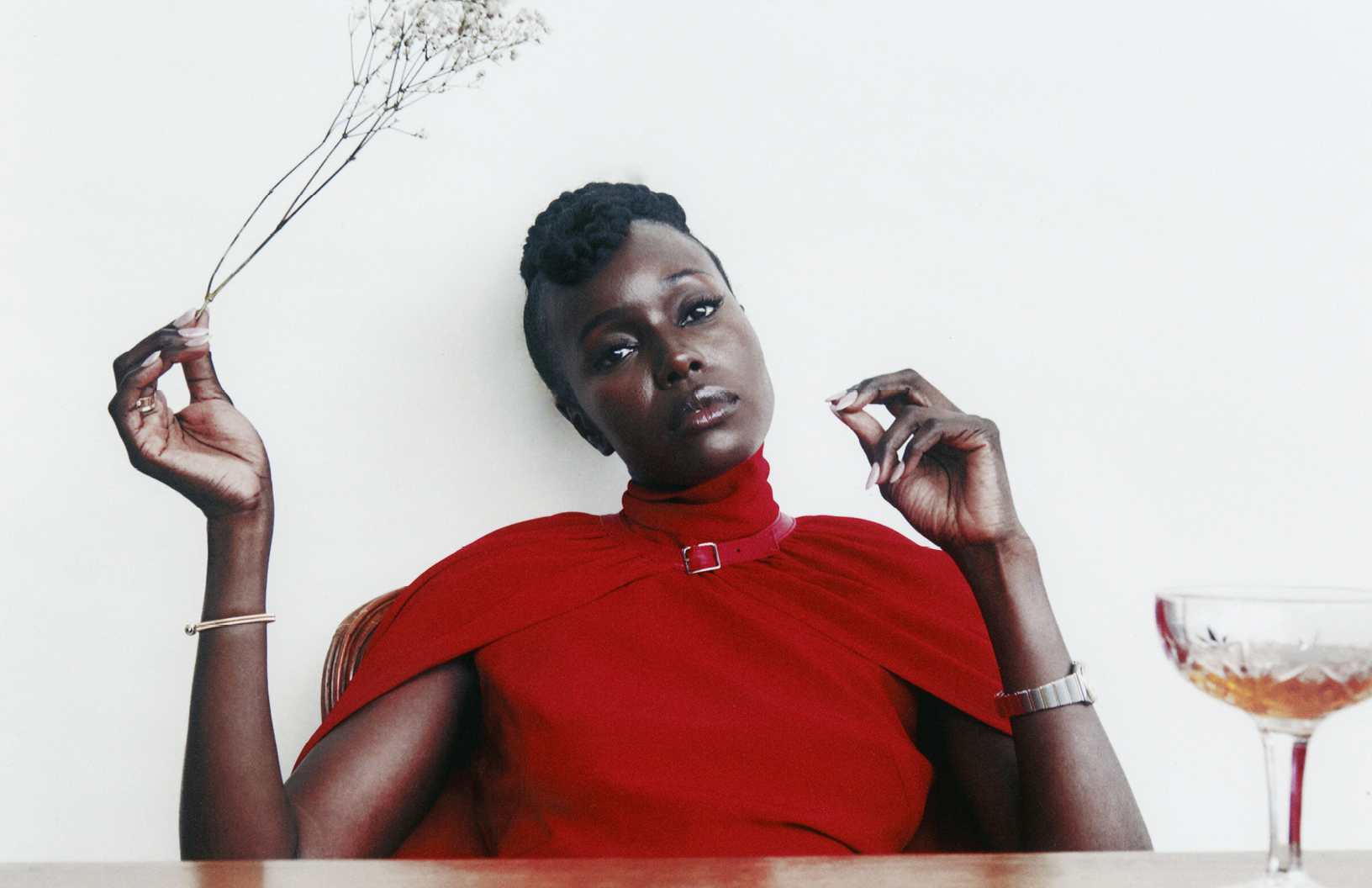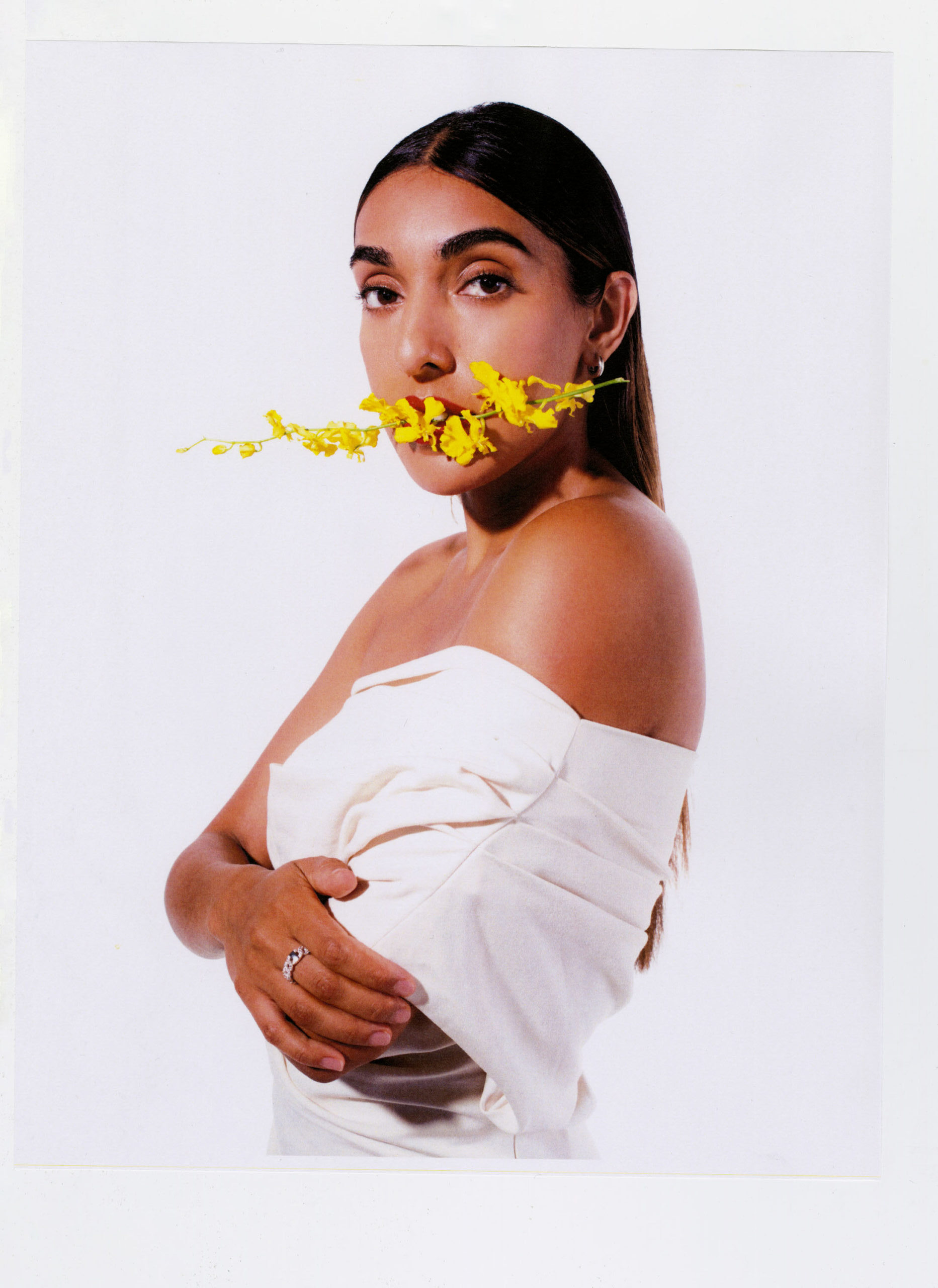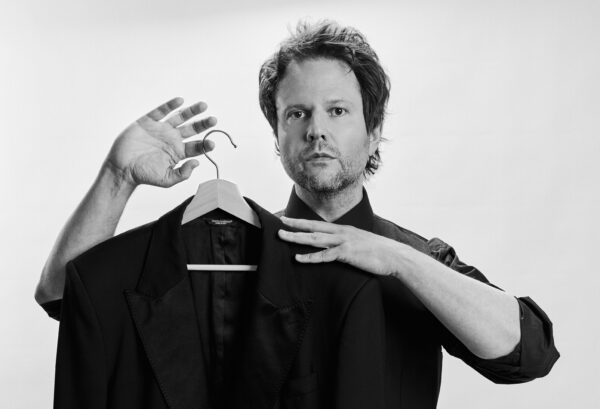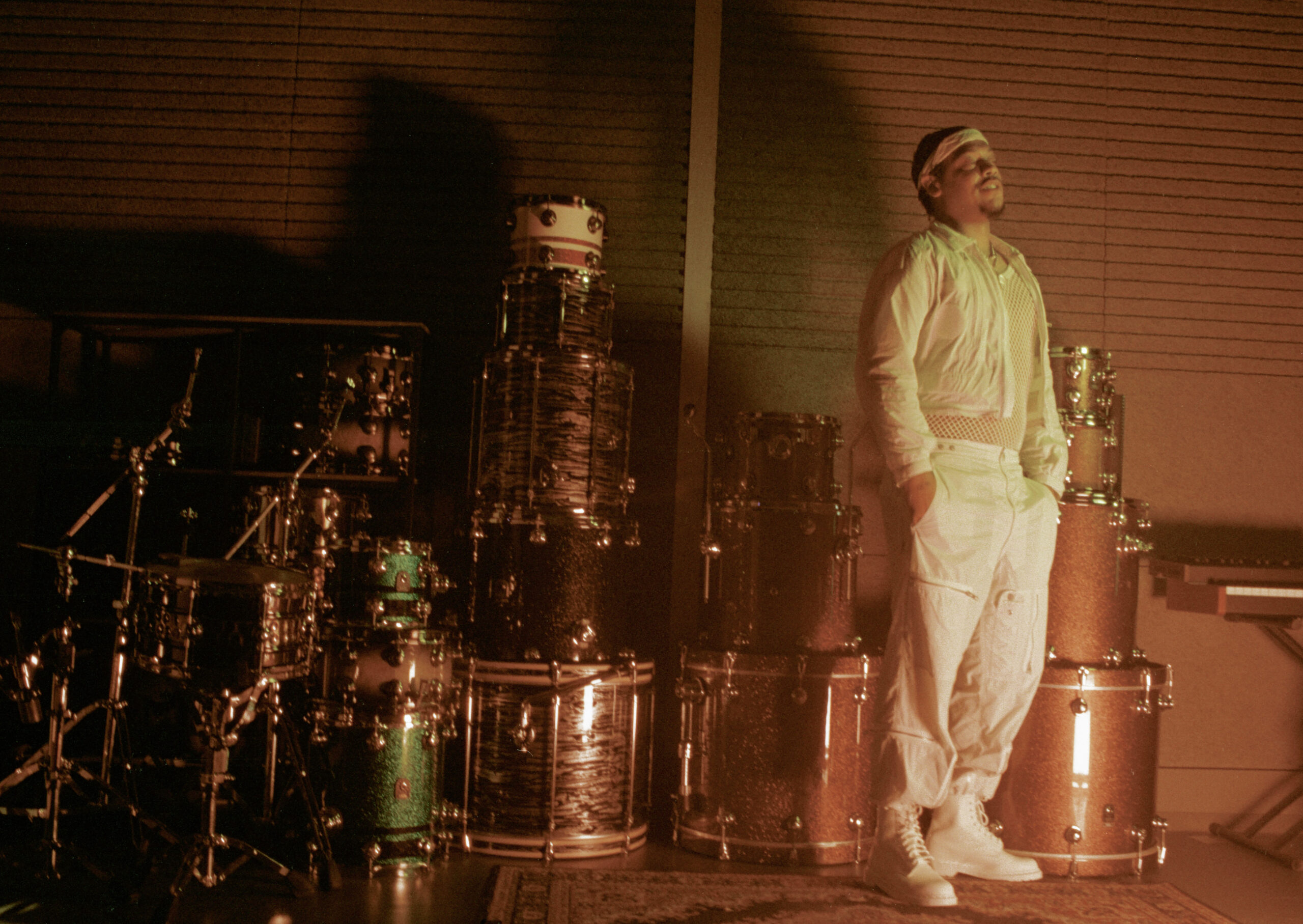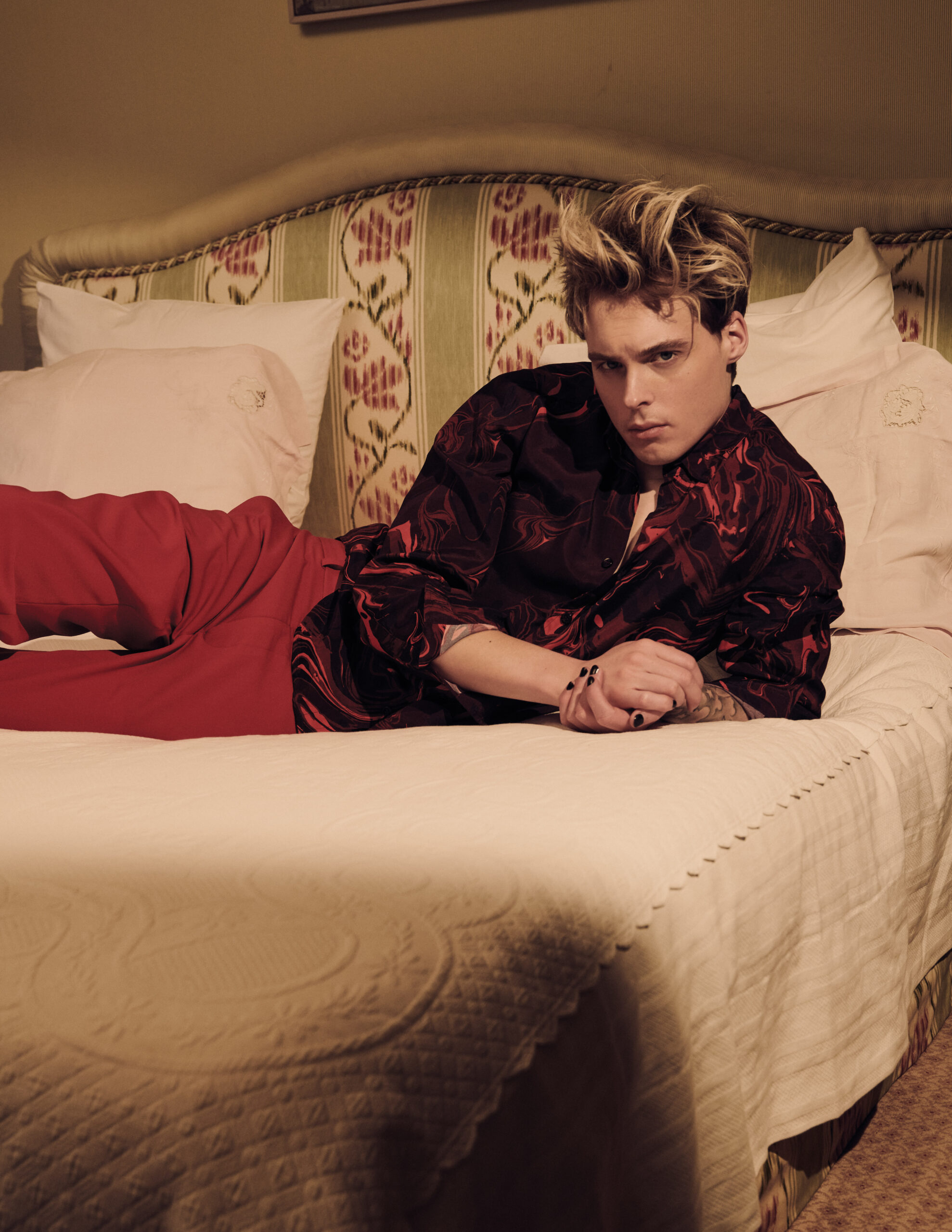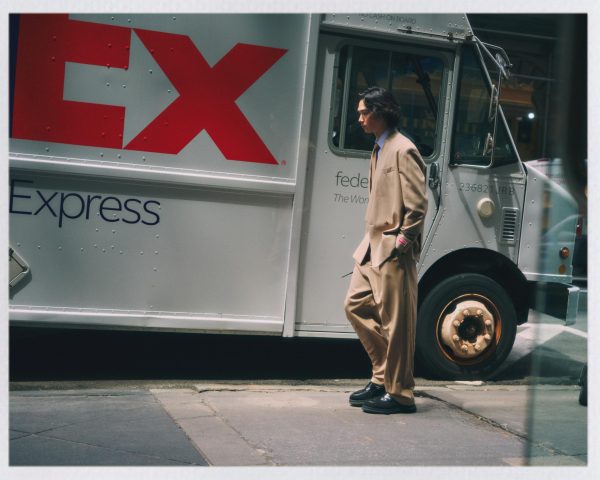Bel Powley tends to find herself orbiting around stories that, at their core, shine a light on female stories. But these are not characters that fall into the stereotypical Strong Female Character trope, checking certain boxes to make ensure just the right amount of diversity. No, the projects that Powley approaches — whether it’s starring in the coming-of-age film The Diary of a Teenage Girl at 19 or the TV adaptation of Dolly Alderton’s beloved memoir Everything I Know About Love — all show the captivating tales of women from all walks of life. And with her latest project A Small Light, she does more than just tell a story — instead, she’s telling a piece of history that not all of us have learned.
In A Small Light, Powley takes on the lead role of Hermine “Miep” Gies, telling the story about the woman who helped shelter Anne Frank and her family during World War II. The miniseries, which marks her first time being the lead of a television show, is one that was seemingly meant for Powley. As a Jewish woman, she understands not only the seriousness of his aspect of our world’s history, but the importance of shining a light on someone on the front lines that a lot of the world doesn’t know much about.
On a surprisingly gloomy day in Los Angeles, Powley speaks with Schön! to discuss the unique preparation she did for the role, what she believes “a small light” means to her, and more.
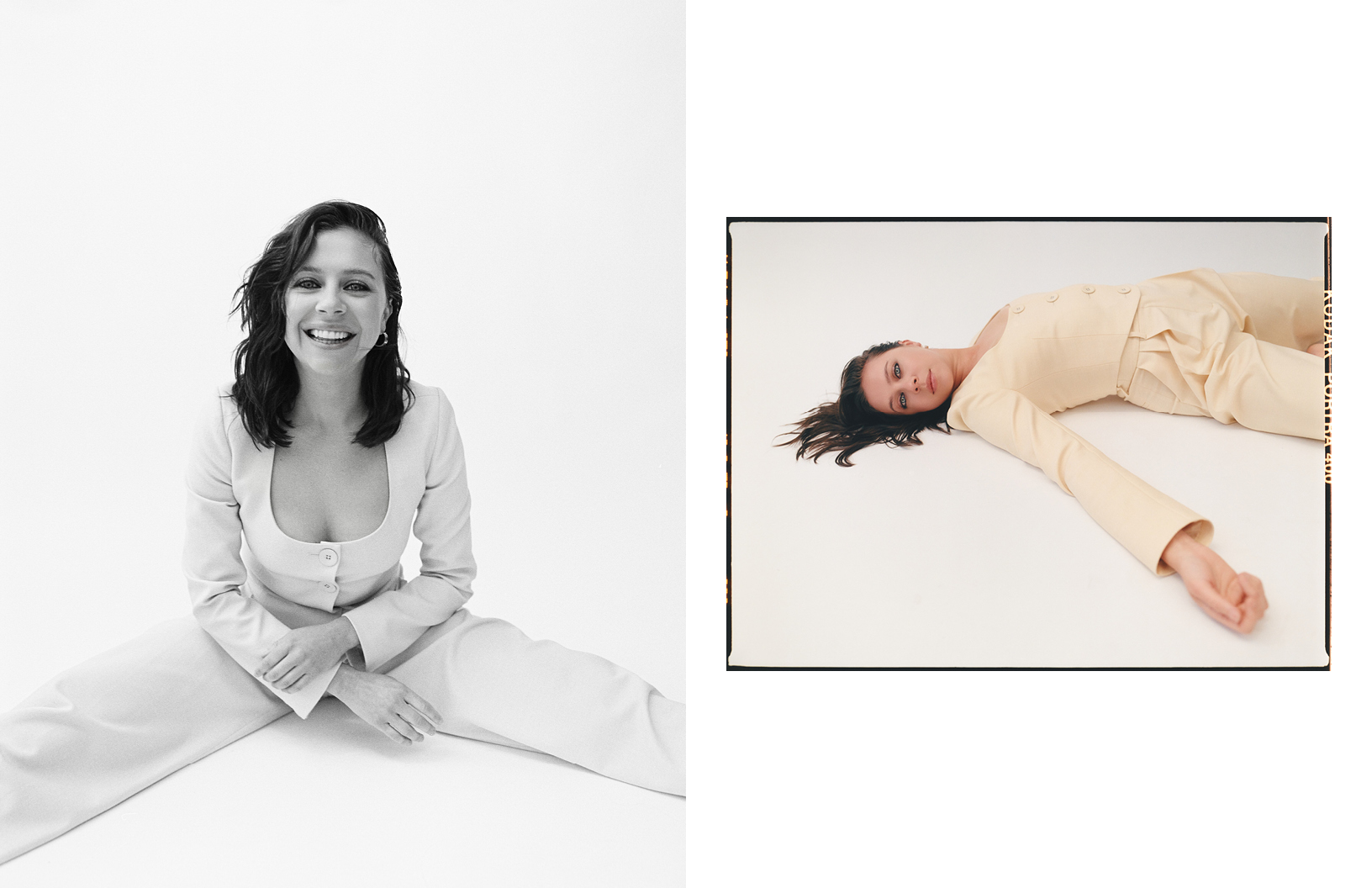
jacket + trousers. Anna Quan
earrings. Cuyana
opposite
jacket + trousers. Anna Quan
earrings. Cuyana
I think it’s quite poetic that, based on my research, you reserved a spot in university to study history but pursued acting instead. Now, you’re in such a powerful show about a part of the Holocaust that not everyone knows about. When you think back between when you first pursued acting and now, how would you describe the way you’ve grown and developed as an actress?
The main way I’ve developed is by learning to trust my gut. Anyone who’s been through their early twenties and has just hit 30 can maybe relate to that in life, but I’ve certainly noticed that I’m being able to connect and link that directly to my job. I think in my early twenties my gut instinct was always there, I was just unsure of myself. I’ve learned to always listen to my gut because I think it is always right. It just takes a while to realize it.
What I love about your work is that all of the stories feel like coming-of-age sagas — we see Miep go from being carefree to hiding Jews from Nazis, I adored your role as Birdy in Everything I Know About Love and in The Diary of a Teenage Girl. What is it about these stories that pull you in?
I do gravitate towards those stories… But I’ve never stopped to consider why. When I shot The Diary of a Teenage Girl, I was only 21. It was mainly me looking back at my teens. I’ve never really stopped to consider why I gravitate to those stories; I think there aren’t as many coming-of-age stories or true explorations of what it’s like being a woman and how that changes and develops, whether it’s in your teens or 20s, 30s, 40s, and 50s. Maybe that’s why I jumped at the chance [to do A Small Light] because it was actually a three-dimensional exploration of humanity rather than the same old shit that I always get.
A Small Light is a great project for that.
Everything with A Small Light and that human aspect of it made me want to be a part of this show. I’m Jewish so I’m a big believer that we need to keep telling stories about the Holocaust and that we need to keep educating so people don’t forget. I also think it needs to be done in an accessible and relatable way because otherwise, what’s the point? We know the overarching facts, we’ve seen countless movies about men in the trenches and men at war which are usually very dark and depressing. We’ve seen that and we know it already. I’ve generally shied away from period dramas because I always feel this disconnect when I’m watching them, it feels like you’re watching something from the olden days.
Similarly to you, I don’t immediately gravitate to projects based on history. I read you can find them quite stuffy and unreachable, but I found A Small Light so attainable and relevant.
I completely agree with you — watching historic dramas feels like you’re watching it through a windowpane or something. It could be because of this flowery formal language or the costumes. I was hesitant when I was offered this because I was afraid it was going to be the same thing again, I had to ask myself whether I was going to feel a disconnect or not. I started reading it and I was like, Whoa, I feel like I’m there. I can feel the humanity, I can relate to these characters. It feels present and modern, but it’s not tipping into that Bridgerton kitschy version of it. It’s a smart way to make people understand their story, learn about this story, and educate and make people connect to it. Miep is a great way to do that. She’s a Gentile; she is a non-Jew doing the right thing and helping Jews, while also being an incredibly contemporary and modern woman for her time.
A lot of Holocaust dramas, films and television series… they are all about the victimisation of the Jews, but there’s so much goodness in this show. A scene that brought me to tears is the one between the dentist and Lottie. Miep’s act of kindness simply keeps his spirits alive by alerting him to listen to their convo. It was a reminder to hold onto the good moments. Do you find this new perspective on this story from history refreshing in a genre that’s quite dark and centred through a male lens?
Absolutely, absolutely. I felt it was refreshing. She was on her version of the frontline. She was risking her life every day; she could have been killed for what she was doing. She was unbelievably brave in her own way and within the parameters of what she could do to help. There are so many incredibly unlikely female heroes coming out of the woodwork now. I feel so lucky that I was able to play her. I’ve been working for 15 years and I’ve been searching for a role like this my entire life.
There’s so much humour and lightness despite the harrowing themes. I loved the line about Jan cheating and Miep responding with “It’s worse, he’s gone to church.” Is there a specific scene that sticks out to you when you look back?
There are more lighthearted scenes throughout and I think the showrunners were so clever and respectful to weave those scenes [all the way] to the end of the series. We shot in blocks, so we did the first three episodes together, then four and five, and finally six, seven, and eight. By the time we’re getting close to the end, I was yearning to go back to episode one when it was really fun and we were dancing. I also loved the first interview with Otto; I think it was hilarious and it was really fun to film. I love everything with Joe [Cole]. It’s so clever of them to keep the lighthearted bits with Joe’s character all the way to episode eight because that’s how life is. We all lived through the pandemic, anyone would be lying if they said they weren’t at home trying to find levity in the situation. I think that is in our human nature, to find the positive and look for the light.
I know you spent time in Amsterdam, you visited the Anne Frank House with Otto’s office below. The scene in episode four where Miep realizes Nazis have come to the office and she’s frantic trying to find them. How did visiting the place where these things happened help shape your performance?
When I took the role, I knew we were shooting in Prague on soundstages so the first thing I did was go to Amsterdam to soak up the city. I just really wanted to immerse myself in that city which still operates in the same way now as it did in the 40s. It’s built on canals and everyone cycles everywhere. For me, being in that iconic place, it was almost a character in the show. I visited the Anne Frank House which I had never been to before. Some of the rooms have been redressed, some look the same. It’s pretty special for me that I’m playing a woman and I can go to the office and sit at the desk she would have sat at. I could look out the window at the canal she would have stared at every day. It was a very invaluable experience.
The Anne Frank House were very generous to us and gave us as many private tours as we wanted. They took us into rooms that aren’t allowed to the public, like Otto [Frank]’s office that the public isn’t allowed in. It pretty much remained intact. His old desk that he used is still there. It’s a very eerie place; the energy in there feels very thick and palpable. The annex is directly above it, so when you’re in there, tourists are walking around the annex. You can hear people’s conversation so it does kind of bring home how quiet these people have to be.
Visiting the house must’ve informed how you approached your character in such a unique way.
Oh, yeah, we were so conscious to make sure we did everything as it would have been done. It’s such a subtle thing and probably no one has noticed, but every time my character walks into the annex I take my shoes off. You can’t walk around with shoes on because people below the annex could hear. It took a while to get used to it because when it was out of office hours, the family could speak at more of a normal level, they could use the toilet, and just be more normal. If you’re shooting out of order, sometimes you’d have to ask what time it was to make sure you were speaking at the right volume because as soon as the office opens at 8:30, you have to be hush-hush.
I adore Eleanor Tomlinson’s work who was the only made-up character in the show, but I’m positive Miep had friends that were like her — passive and confused by Miep’s anger towards the war when it’s not directly impacting them. I also think the creation of that character is something people can relate to — there are a lot of passive people turning a blind eye to situations that we deal with in the present day. Did you guys have discussions as a cast about the creation of the character and what it meant?
I think it was so smart to create that character and show that when you’re faced with the music — as in you’re in Amsterdam and the Nazi occupation is upon you and Hitler is rampaging around Europe killing Jews — there are only two options if you’re a non-Jew. You are either actively doing something or you’re a passive bystander. I think it was really smart of our showrunners and also, as you said, is unbelievably relatable to what’s going on in the world today. Hopefully it will make people kind of look up from their phones and just think about what’s going on outside of their bubble, which I’m probably guilty of, too. I think Eleanor did so well, it’s a very tough role to play because you need to be invested in them as a friendship.
The title for the show, to me, defines not only who Miep was but describes everyone’s hope at a time when it was hard to find. Miep said she didn’t like to be called a hero, that you can be ordinary and still turn on a small light in a dark room. What lessons from Miep and the show do you plan on carrying with you, as your version of “a small light”?
Ever since I read the first 10 pages of the pilot, I’ve been thinking every day, what would I do in this situation? I hope it makes everyone else think that, too. I think that Miep wanted us to think [when saying that quote] and I think that it’s true. We are all hardwired to know what the right thing is to do. I think we all do and we all have that good inside of us. What Miep had that maybe we don’t all have is this unwavering sense of right and wrong and this immediate response to do the right thing. I think that’s maybe what I and all of us can learn from her. I think we know what the right thing to do is: it’s about being brave enough to do it without hesitation.
A Small Light is streaming now on Disney+ UK.
photography. Jon Stars @ Alyssa Pizer Management
fashion. Lucy Warren @ The Only Agency
talent. Bel Powley
hair. Lisa-Marie Powell @ Art Department using R&Co Bleu
make up. Cedric Jolivet @ The Wall Group using Armani Beauty
production. Clara La Rosa
interview. Kelsey Barnes




